THE INTERNATIONAL
LIVE ASTROPOETRY SPECTACLE
AT THE INTERNATIONAL METEOR CONFERENCE 2011
“I hate the Astropoetry Show,
but why do I participate at it…?”
-Arnold Tukkers (Holland)-
Valentin Grigore (IMC 2011 chief organizer) obtained for
the international spectacle of the Astropoetry Show,
a few months before the IMC 2011,
the most beautiful ever hall for a section of this conference,
a hall filled with history, right in ASTRA Palace,
the “sacred” place of the Romanian cultural emancipation in Transylvania
in former times
of the Habsburg Empire.
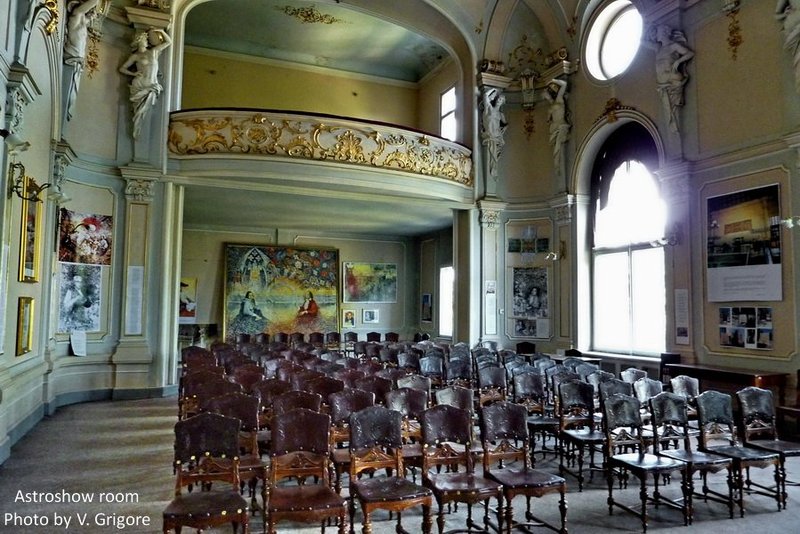
But just during the time of the IMC
the Palace was in renovation.
However, the administrators (director Silviu Bors and his team)
made a kind effort to keep the hall
in good conditions for the spectacle.
To stimulate the courage of the IMC participants
for their hardest ascension in the history of this conference,
Andrei Dorian Gheorghe (Astropoetry Show director)
and Florinela Anca Vasilescu (from ASTRA Library)
conceived a poetic text at the entrance in the ASTRA Palace.
Photos by Andrei Matache (Romania, 2, 4, 8),
Victor Chifelea (Romania, 3, 5), Bernd Brinkmann (Germany, 1, 6, 7, 9):
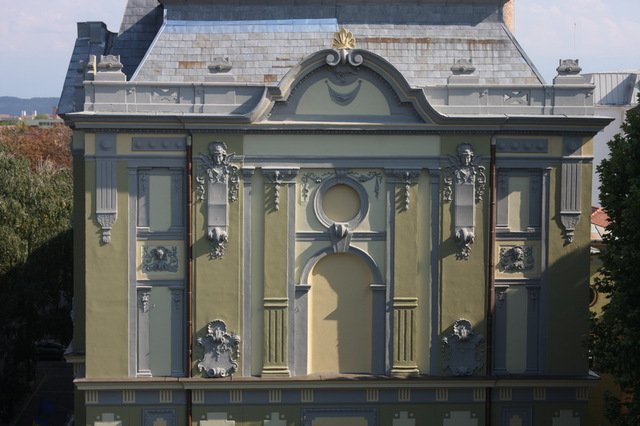
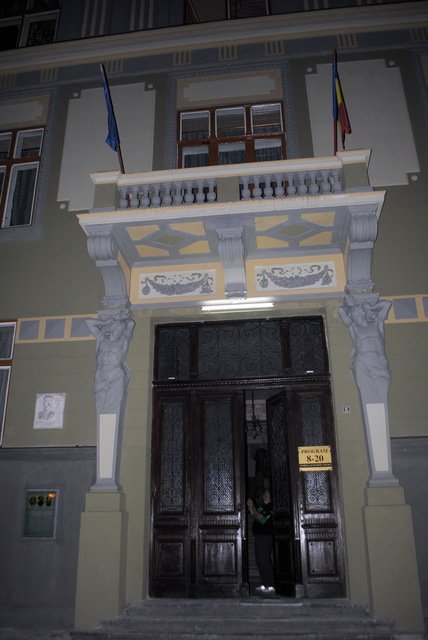
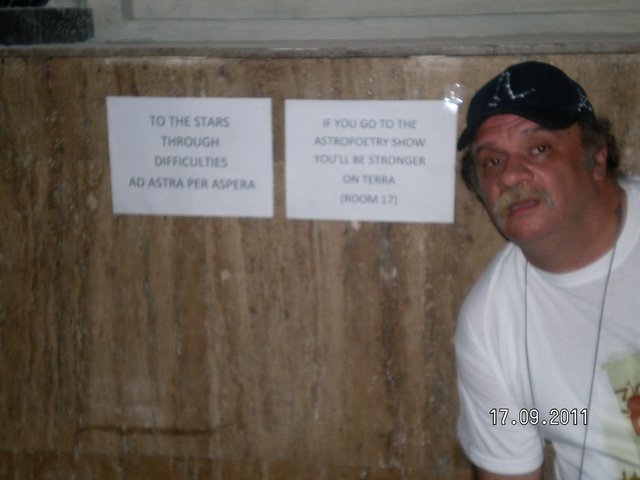
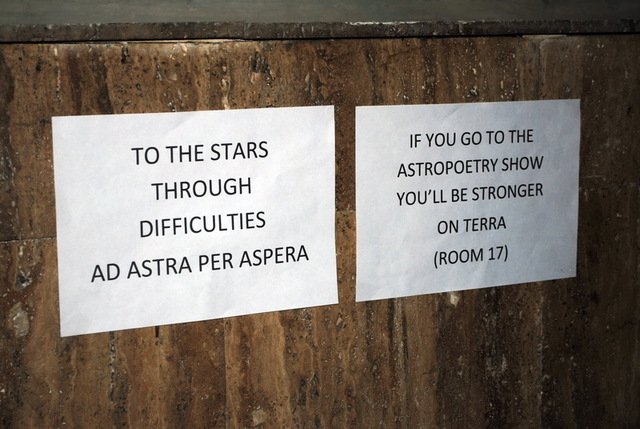
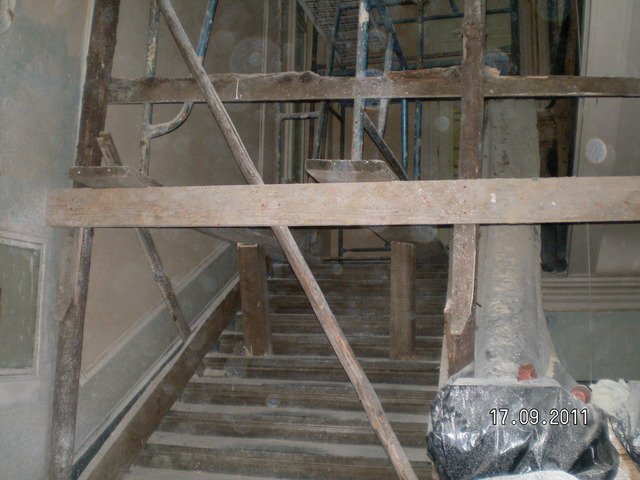
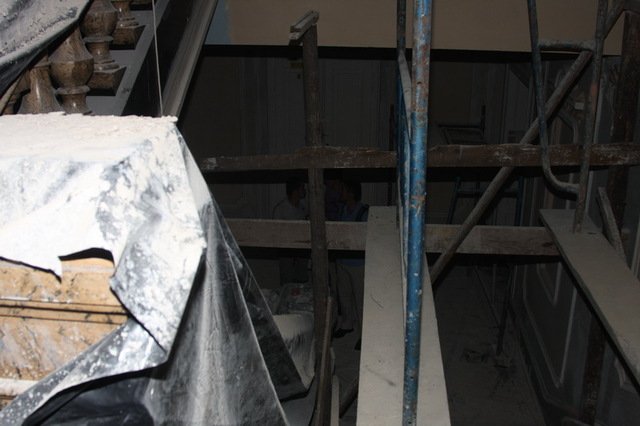
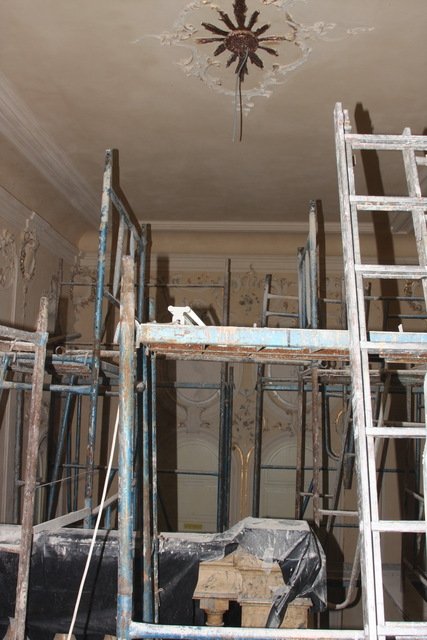
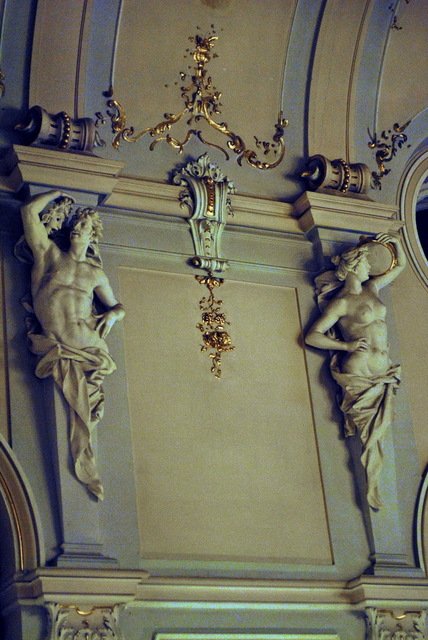
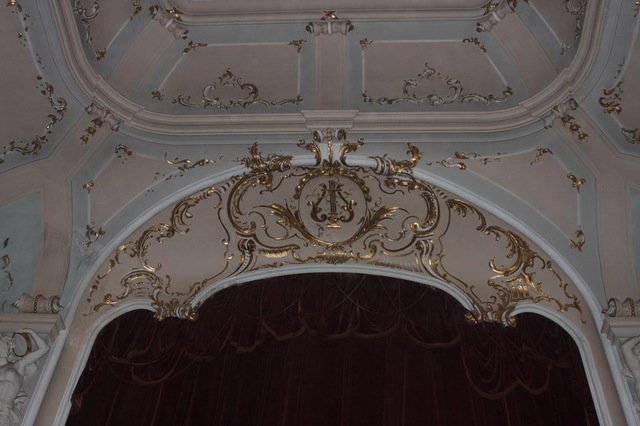
Fortunately, the hall was OK for the event…
Photos by Pompiliu Alexandru (Romania):
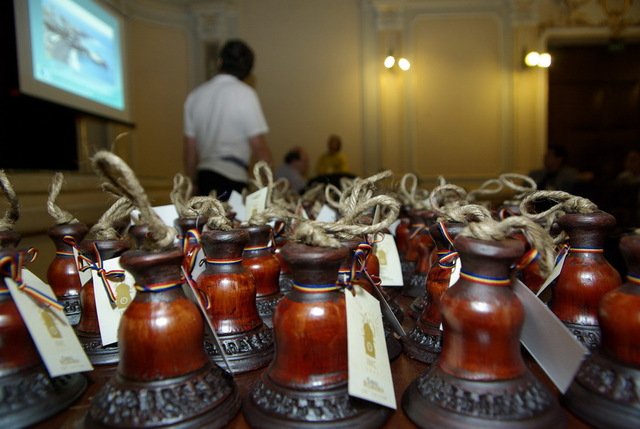
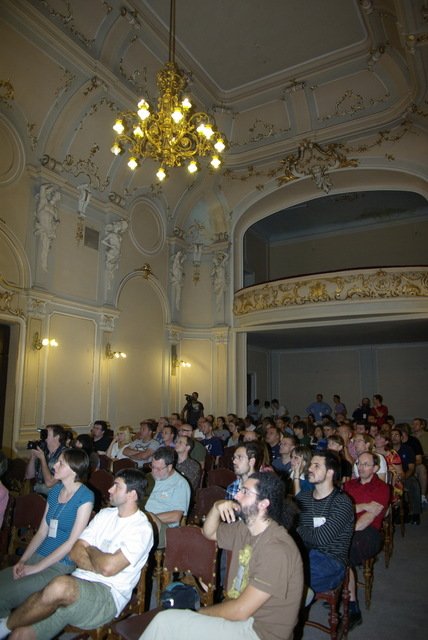
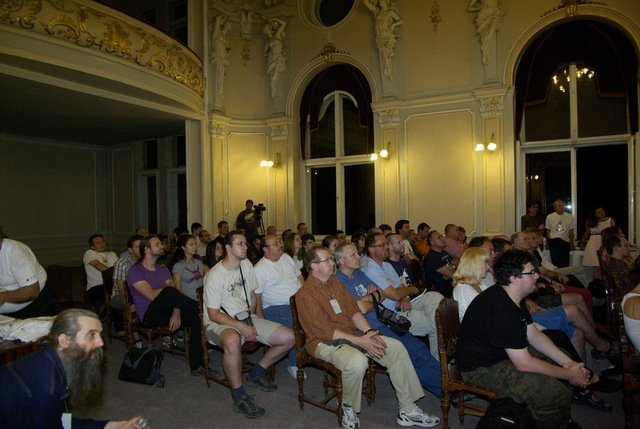
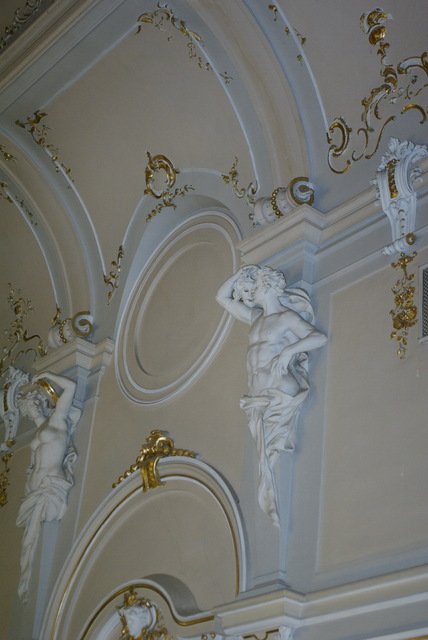
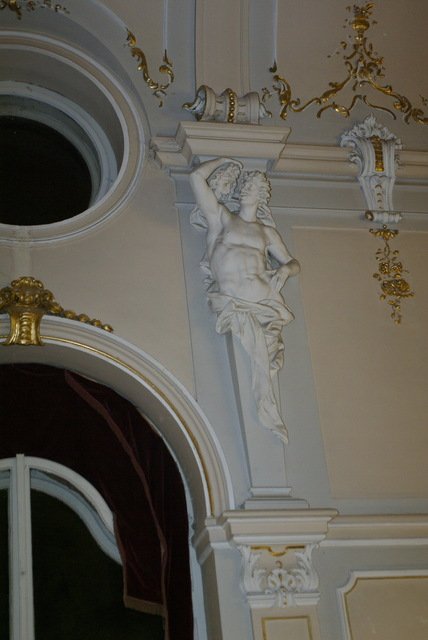
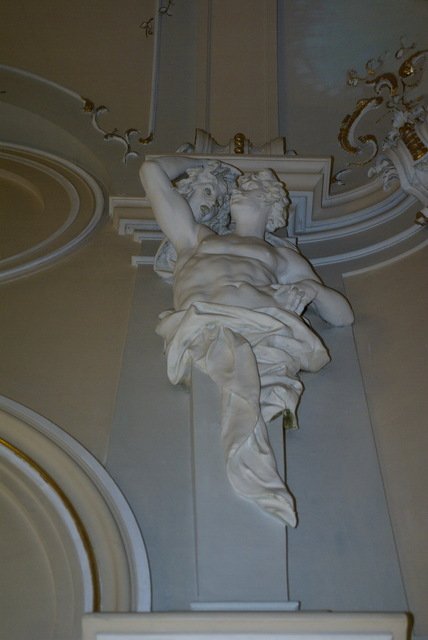
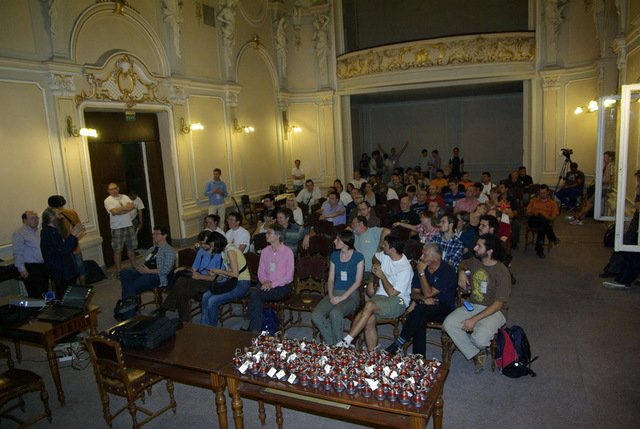
At 21:35 Andrei Dorian Gheorghe climbed on stage
(with two bells in his hands)
to announce the start of the spectacle
(which was video-recorded by Nicu Stoica from Columna TV-Targoviste).
Video capture:
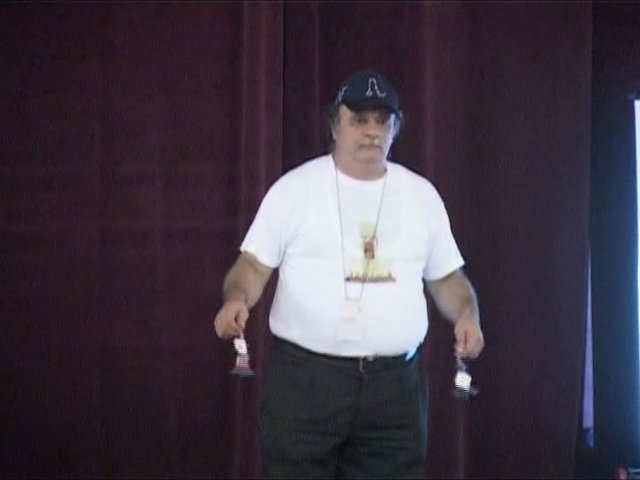
And a photo by Bernd Brinkmann:
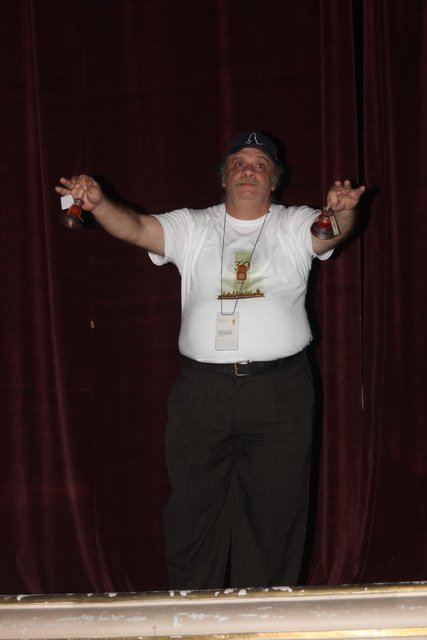
But before starting,
he had a moment of uncertainty in his mind:
“In the past I frequently remembered the words of
Dr. Harald Alexandrescu (1945-2005),
former coordinator of Bucharest Municipal Observatory,
who radically said that only a crazy man can put astropoetry
in opposition with astronomy.
And I was certain that the Astropoetry Show comes to fill
the spiritual need for culture and creativity of the sky lovers.
But today I feel so exhausted after 14 previous Astropoetry Shows at the IMC
and the efforts to prepare the 15th
that I doubt of all.
Yes, today I have to democratically assume
that for some believers in serious astronomy,
the Astropoetry Show can be just a monstrosity
which threatens the solemnity of pure science.
And I am the gruesome Astro-Buffoon!”
Then, confused, Andrei said:
“I’m thinking that through its expansion in the last years,
the Astropoetry Show provokes problems to the organizers of every IMC.
So I propose to eliminate the Astropoetry Show
from the program of the next IMCs.
But till then, you have to support another one…”
Video capture:
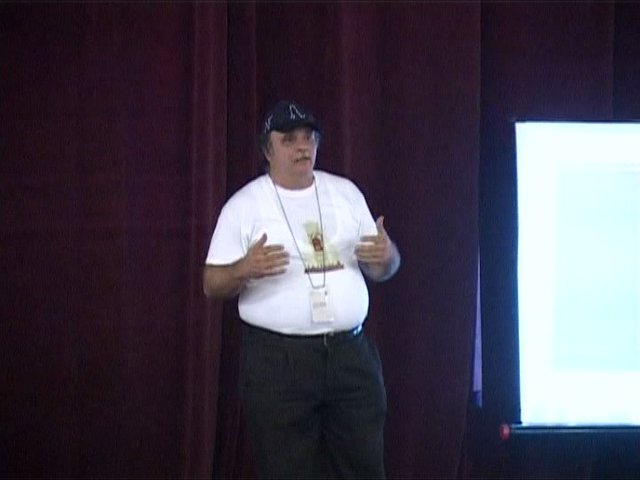
And a photo by Valentin Grigore:
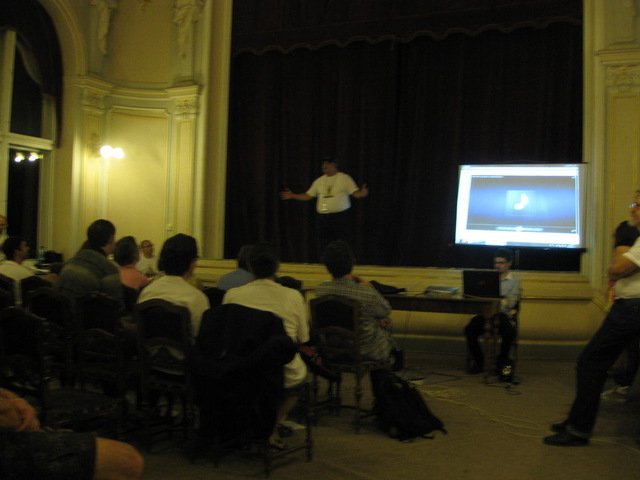
But the reaction of the audience was general amusement,
so Andrei began the spectacle (for which technical operators were
Florin Stancu and Alexandru Sebastian Grigore)
on the recording of one of the most beautiful Romanian songs,
Rustic Dance by Constantin Dimitrescu (1847-1928).
Madalina Stancu (Secretary General of SARM)
and Florin Stancu (web master of SARM) appeared as meteors,
Andrei came after them with a few ballet movements,
and then he made a poetic introduction:
“AT ASTRA
The first book in the Romanian language,
a religious one,
was published in Sibiu in 1544.
In 1861, also in Sibiu,
the Transylvanian Association for Romanian Literature and Culture
was founded,
its abbreviation being ASTRA,
and its mission being the emancipation of the Romanians
in the Habsburg Empire.
Between 1906 and 1916,
this association edited in Sibiu a literary magazine named
The Evening Star.
So ASTRA…
A name recalling the famous Latin expression
“ad astra per aspera”,
which means
“to the stars through difficulties”.
Now we are right in the theatre hall of the ASTRA historical palace,
in the beginning of the 15th Astropoetry Show,
at the 30th International Meteor Conference.
So I think we have to say:
on astronomical wings of poetry and arts,
at ASTRA,
“ad astra”!”
(Andrei Dorian Gheorghe)
And finally, all three said at the same time:
“To the stars!!!”
Video captures:
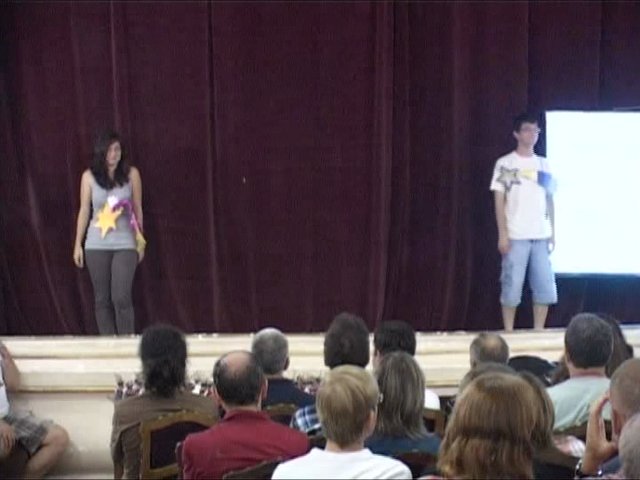
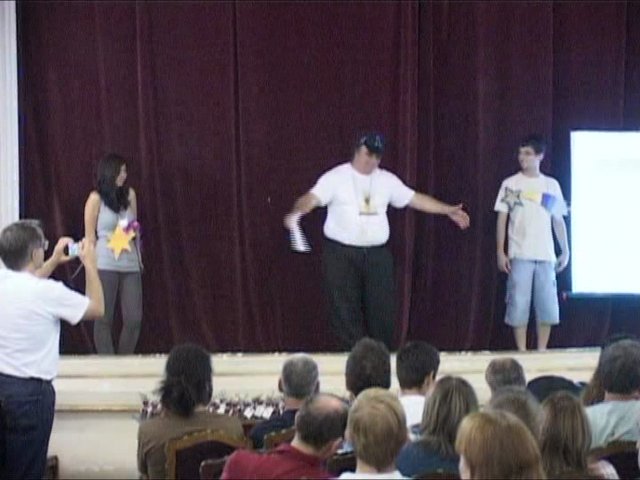
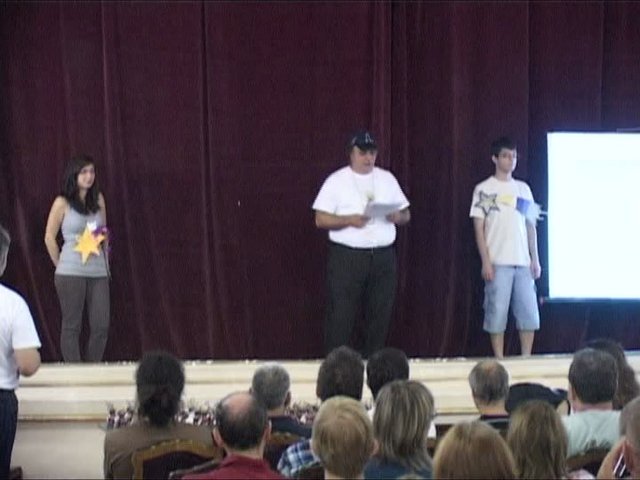
And photos by Valentin Grigore (1), Bernd Brinkmann (2, 3, 5),
Pompiliu Alexandru (4, 6, 7):
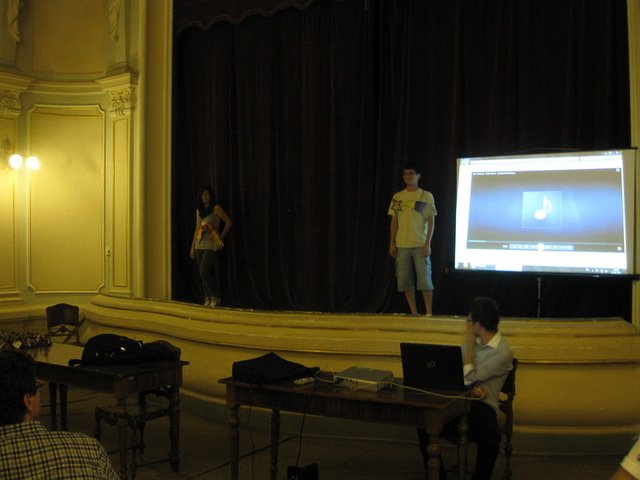
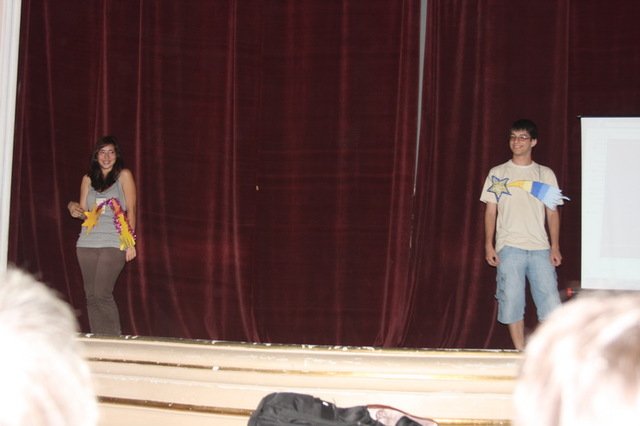
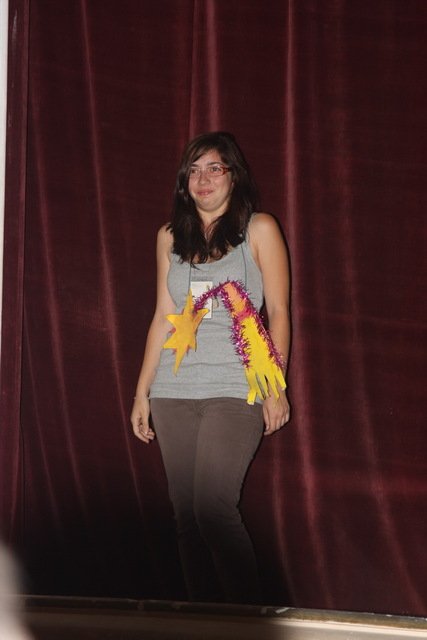
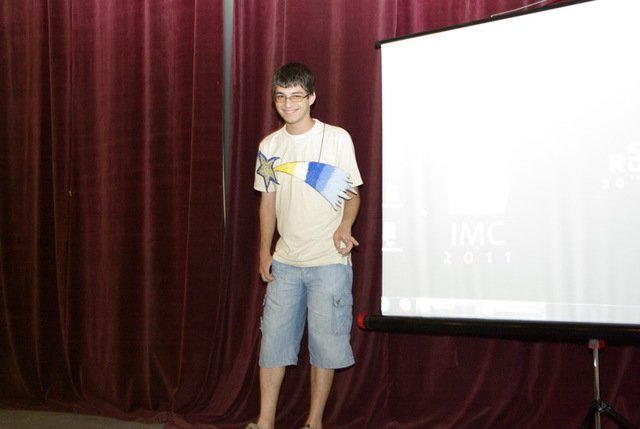
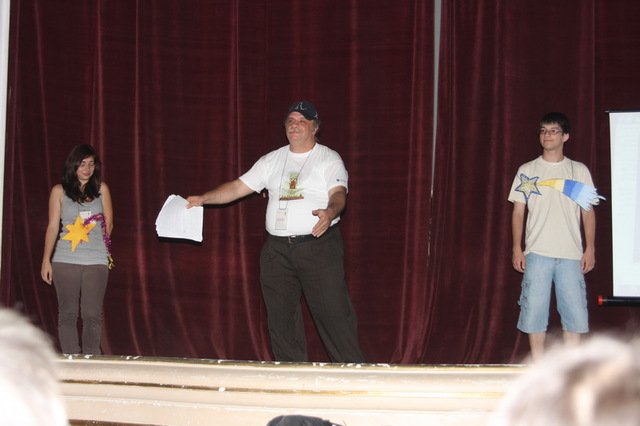
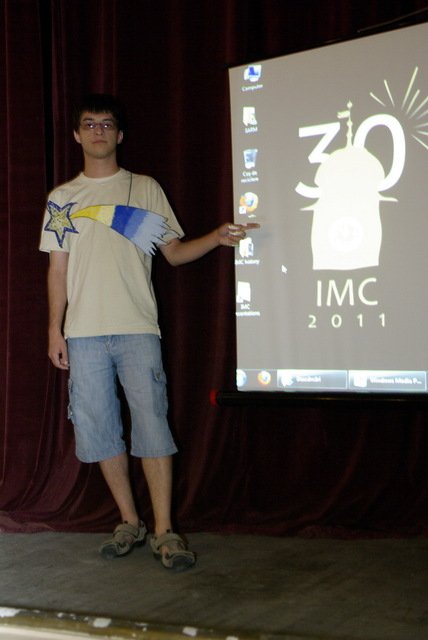
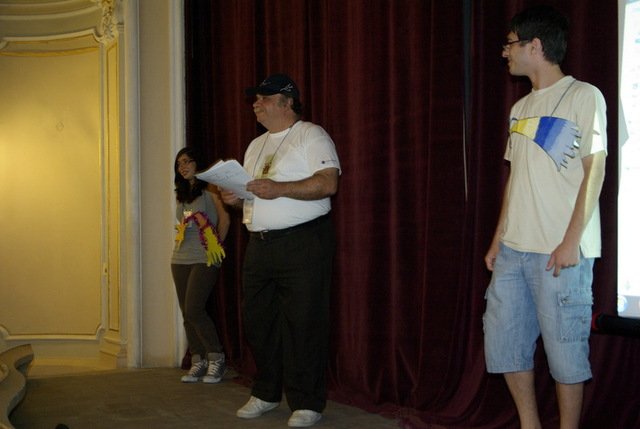
The second act belonged to the youngest astropoet in the history of this spectacle,
Ana Georgescu (Romania, age 13), who read her astropoem
“PERSEIDS 2011
Night. Tranquility. Infinite sky.
Great Perseus’ coat is burning
in diamond flames.
From time to time
a chip flies and scratches the sky,
which bleeds light.
Oh I’d like so much to hang a dream
on that chip of horizon,
to be carried far away,
through other worlds,
over other borders.
Transient lights.”
(Ana Georgescu)
Video captures:
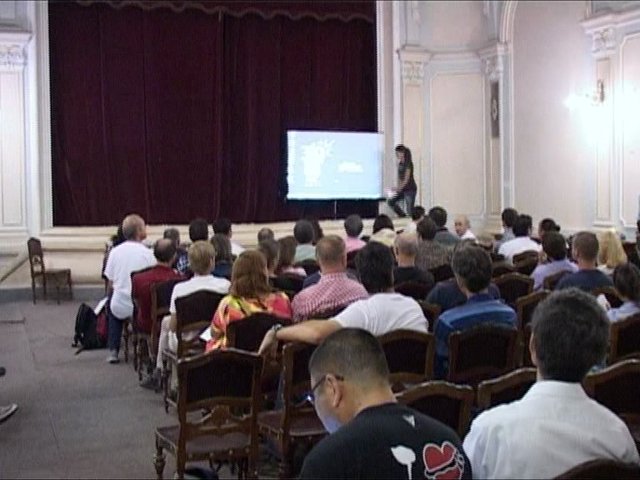
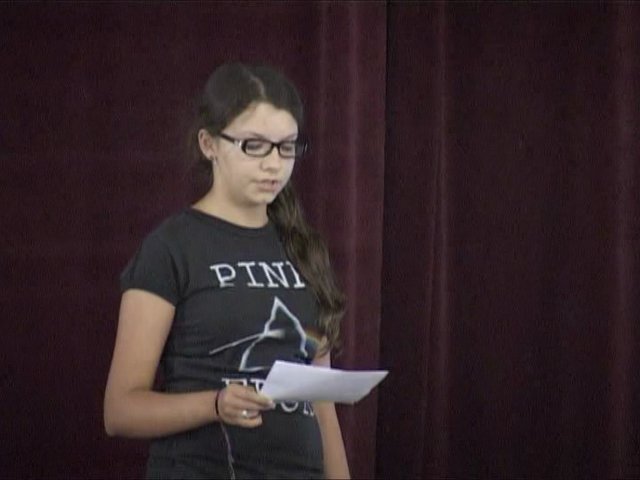
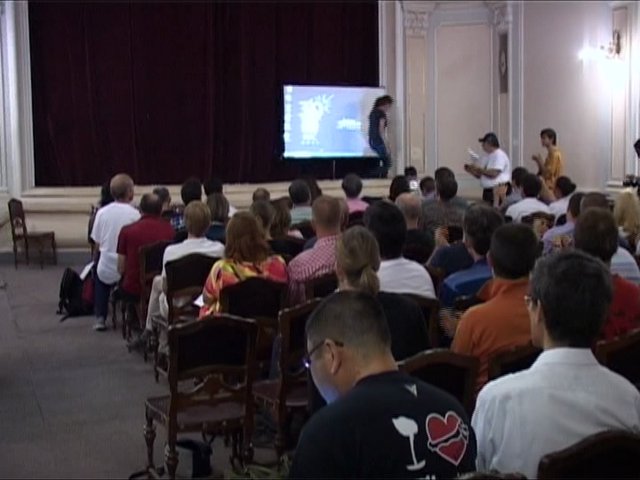
And photos by Pompiliu Alexandru, Andrei Matache,
Bernd Brinkmann:
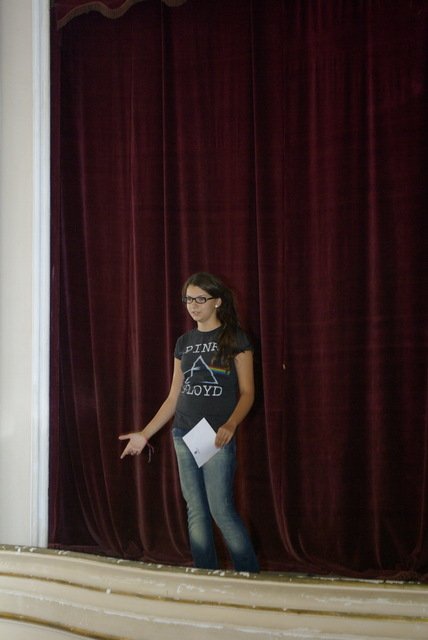
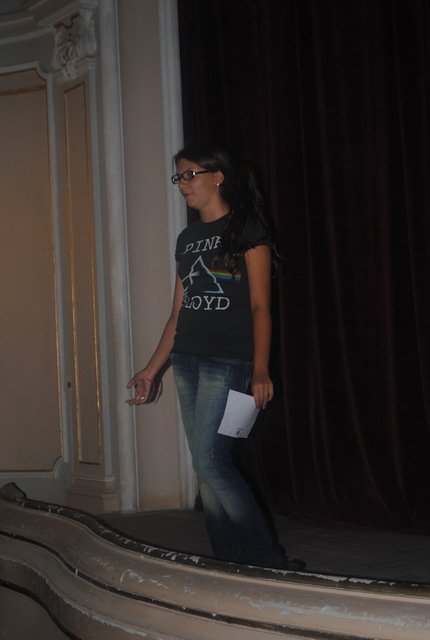
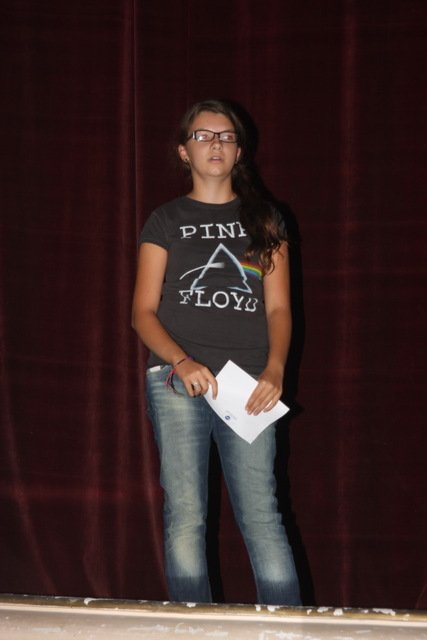
For the next act, following the suggestion
of the former vice-president of IMO, Alastair McBeath (UK),
Andrei Dorian Gheorghe tried a choreography on a song
from an album edited in 2005,
Year of Meteors by the American singer-songwriter Laura Veirs.
An album of concept, in which this song, Fire Snakes, suggests a terrestrial waiting
for a meteor shower through sea waves and a lava stream.
During this act, Andrei, using “confetti” as a meteor shower
and lighters as fireballs,
expressed a few significant words by Laura Veirs:
“Year of Meteors!”
“Stars fill up my eyes!”
“Fire Snakes!”
and ended with:
“Through the glow!”
Video captures:
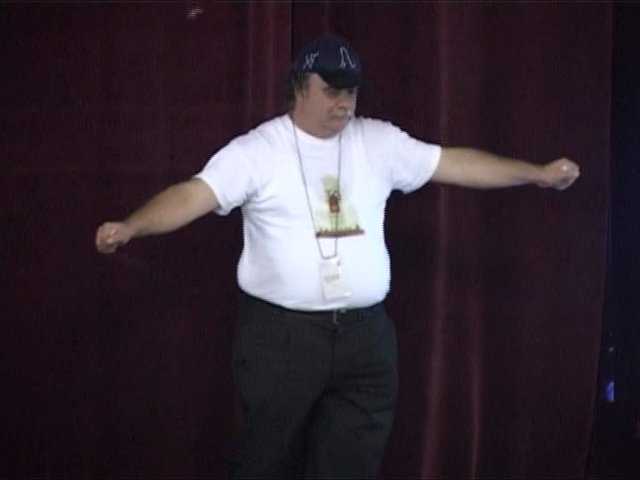
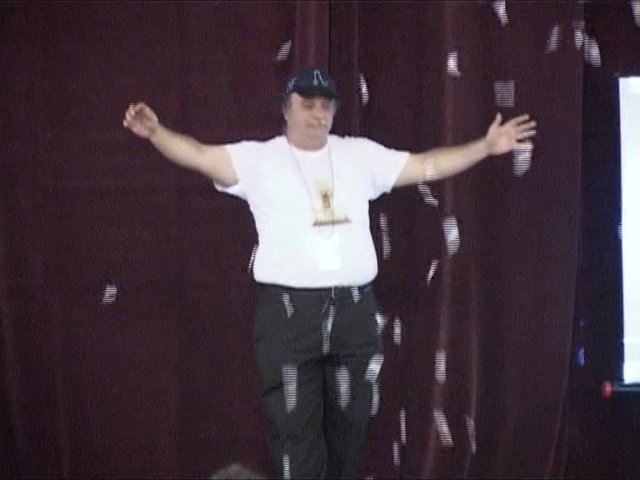
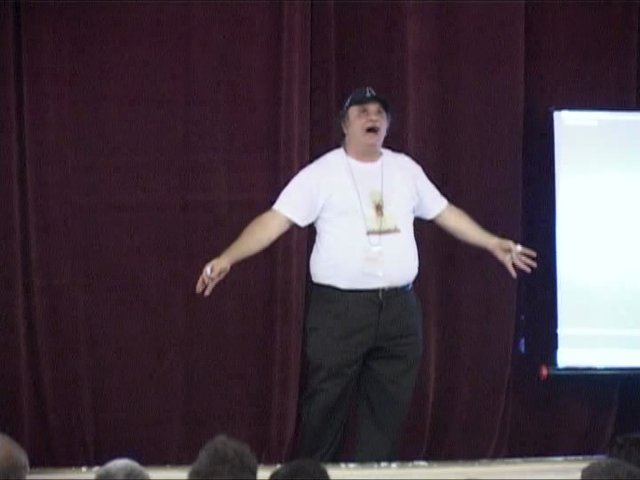
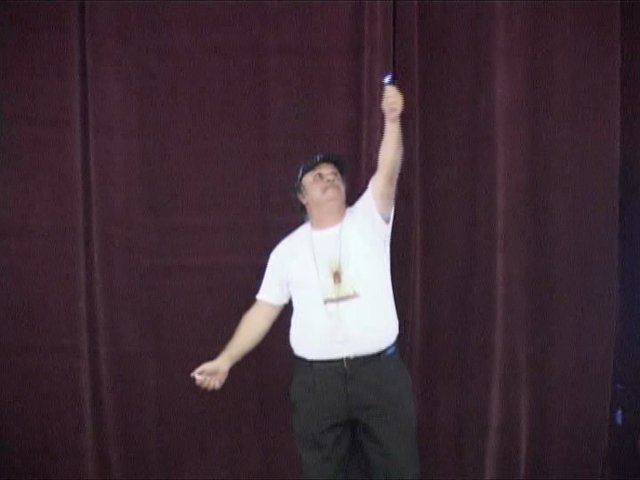
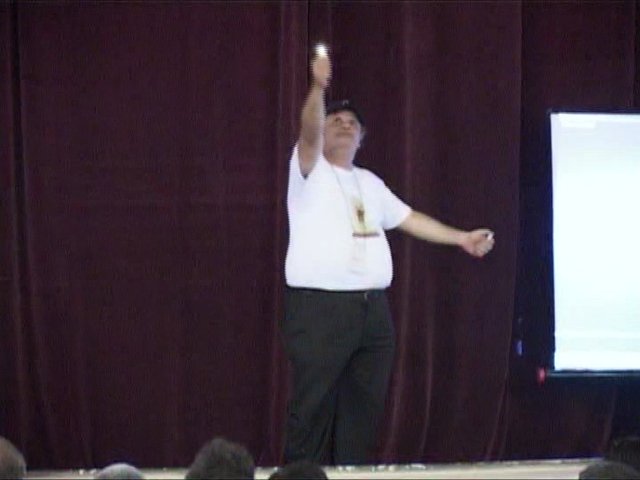
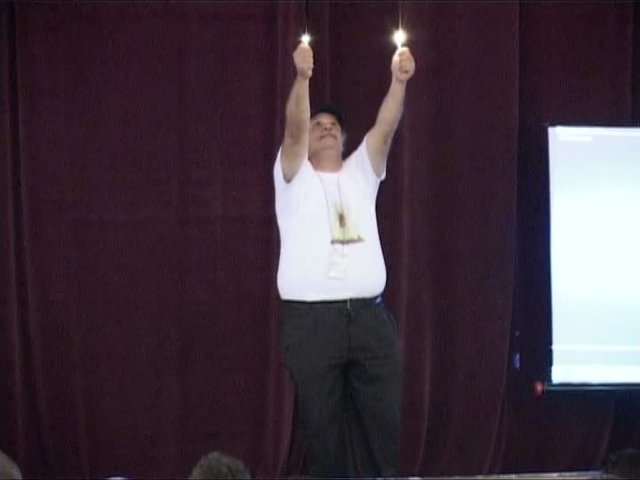
And photos by Bernd Brinkmann (1-3, 5, 6)
and Pompiliu Alexandru (4):
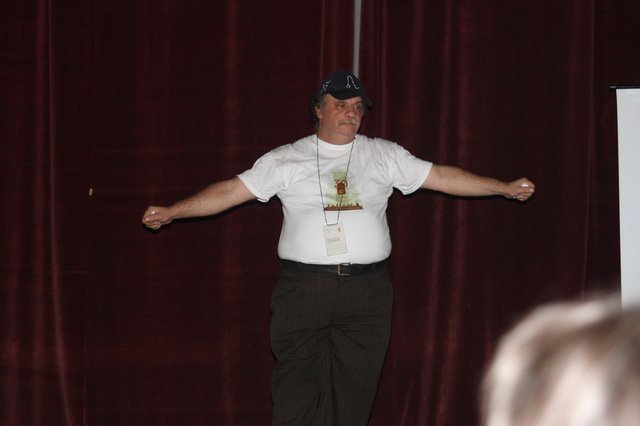
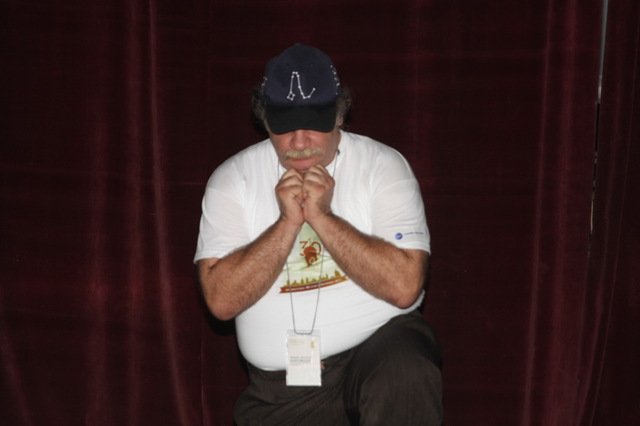
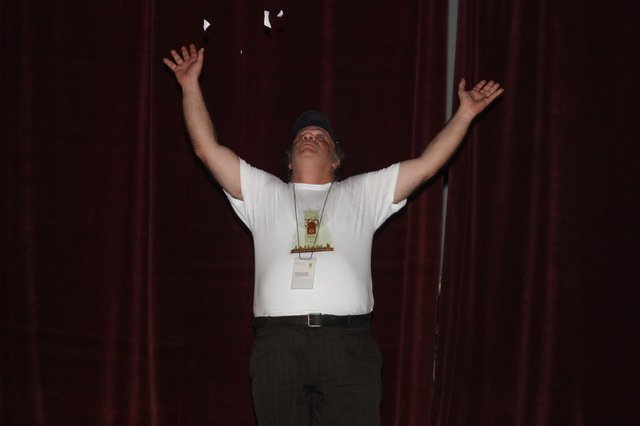
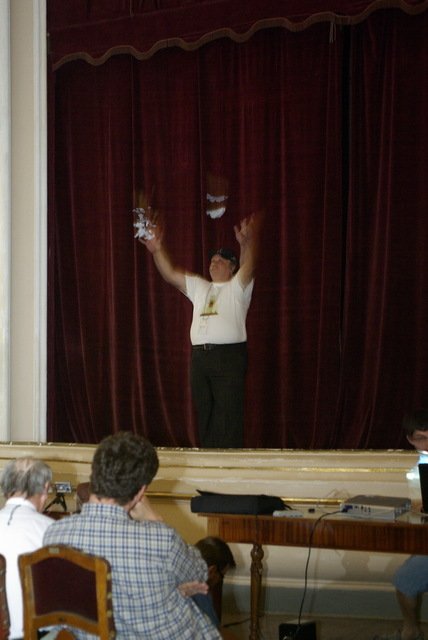
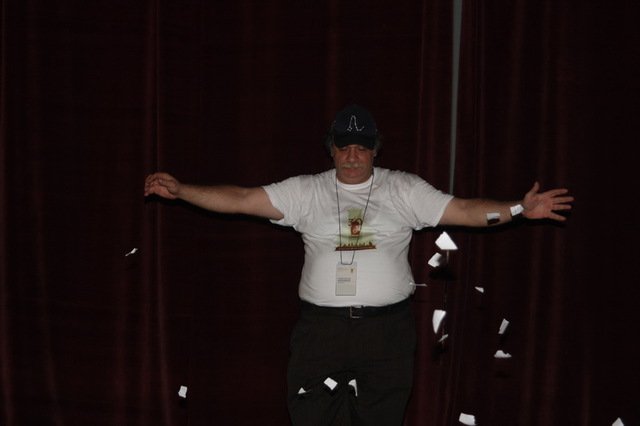
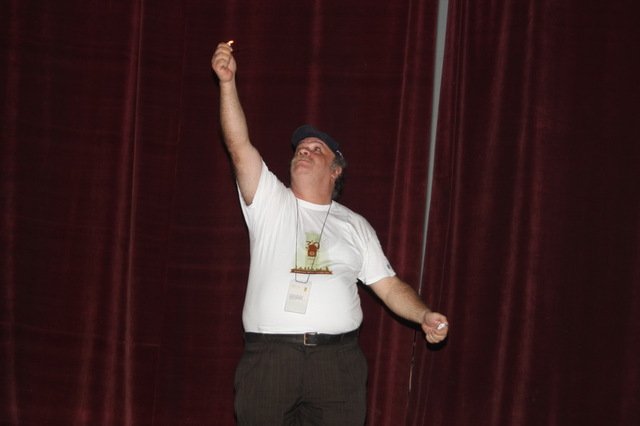
Then one of the most respected Romanian astronomers,
Dimitrie Olenici from Suceava Planetarium,
the organizer of an annual Perseid festival for juniors,
presented with the help of teacher Gabriela Leseanu
a tragicomic happening he had lived in the past:
“THE LEONIDS AND THE CLEANER
Once in a cold night in the beginning of the 2000s
I was with a car, together with some friends,
somewhere out of the city of Suceava to observe the Leonid meteor shower.
After a few hours of observations
we remarked a small intensification of the meteoric activity
and we thought that it was the maximum.
Disappointed and frozen, we decided to come back home.
Next day at the Suceava planetarium (where I work since the 1980s),
our cleaner, Lenutza, who was a commuter from a closer village,
told us how, when she awaited the bus in the morning,
she saw a superb rain of falling stars.
More, catching along time some astronomical knowledge
from the staff of the planetarium,
she explained to other citizens who awaited the bus
that the rain of falling stars is in fact a meteor shower,
named the Leonid because it seems to come from the constellation Leo.
I listened to her with attention, admiration and envy.
I understood that not all the time you can base on meteor predictions,
and if you are not persevering in observations,
even a cleaner can outclass you.”
(Dimitrie Olenici)
Video captures:
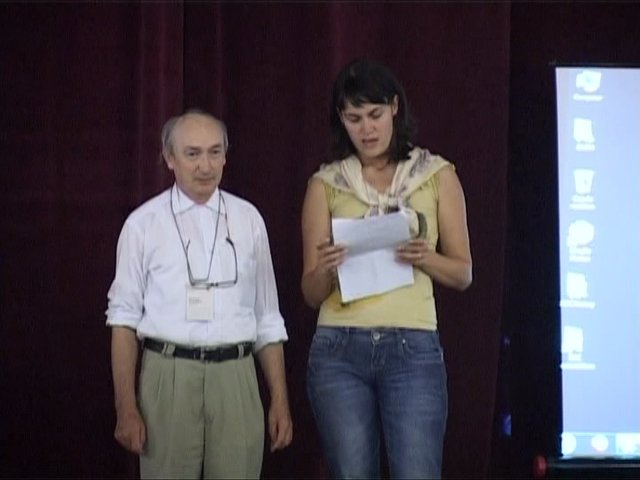
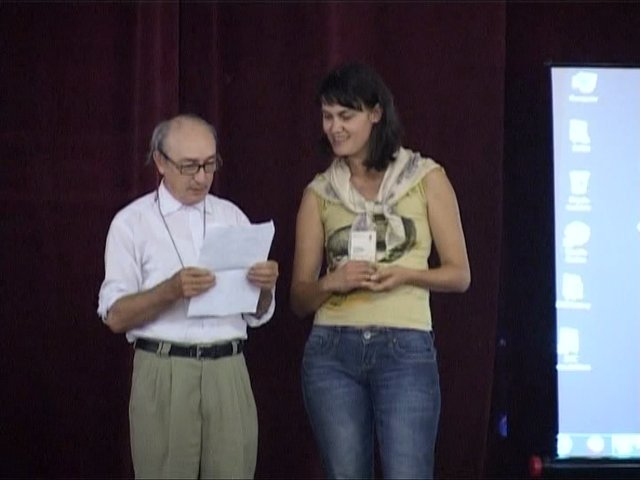
And photos by Pompiliu Alexandru (1)
and Bernd Brinkmann (2):
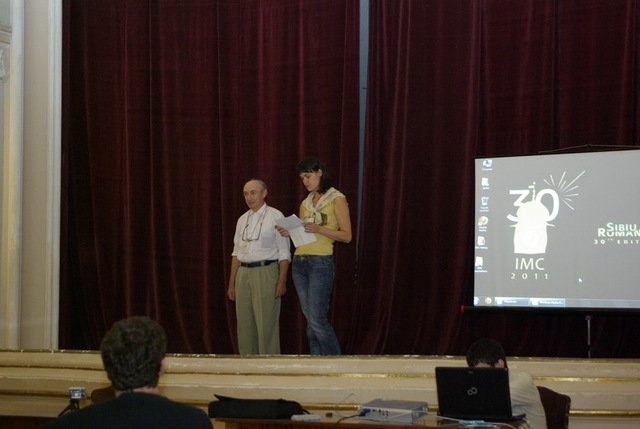
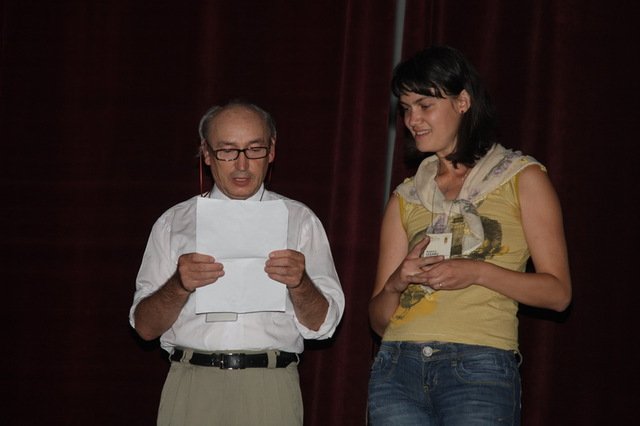
The next act was a humorous sketch
by the main creator of the International Meteor Organization,
Paul Roggemans (Belgium),
based on a real happening from when he tried to unite
meteor lovers from all over the world in a unique group.
Paul played himself, and other astroactors in this sketch were
the current vice-president of IMO, Cis Verbeeck (Belgium)
as an employee in a French astronomical observatory,
and the Romanian teacher Adriana Nicolae
as the manager of the same observatory:
“WHAT HAPPENS IF A BELGIAN CALLS TO FRANCE
TO AN OBSERVATORY
-part I-
Paul:
Alo, Paul Roggemans is calling.
Can I speak with the manager of the observatory please?
Employee:
She is not here.
Paul:
But who are you?
Employee:
I am an employee.
Paul:
Well, can you just tell her that I called her
and I asked her to call me back please?
Employee:
What’s your name?
Paul:
Paul Roggemans.
Employee:
What? I don’t understand.
Paul:
No problem.
I will spell my name.
You can write please Paul and I will spell:
Roger, Omer, double George, Eric, Marcel, Allan, Nestor and Sylvain.
You’ve got it?
Employee (shocked):
Are you sure?
Paul:
Yes, that’s my name.
Just live the message, if you can.
OK?
Employee (after writing all the names):
Yes, I’ll tell her you called her.
Paul:
Thank you… bye!”
Video captures:
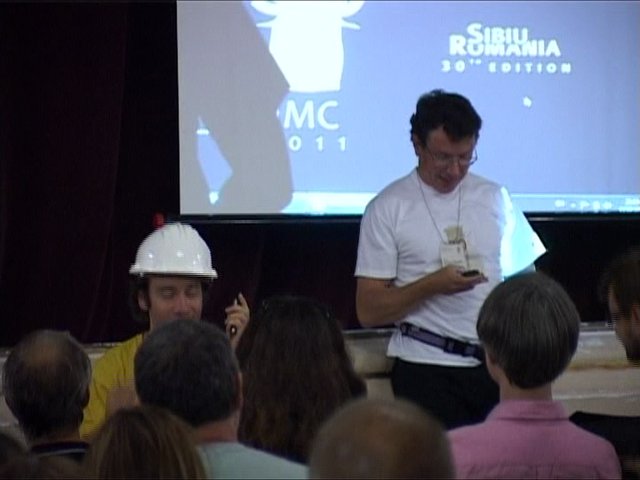
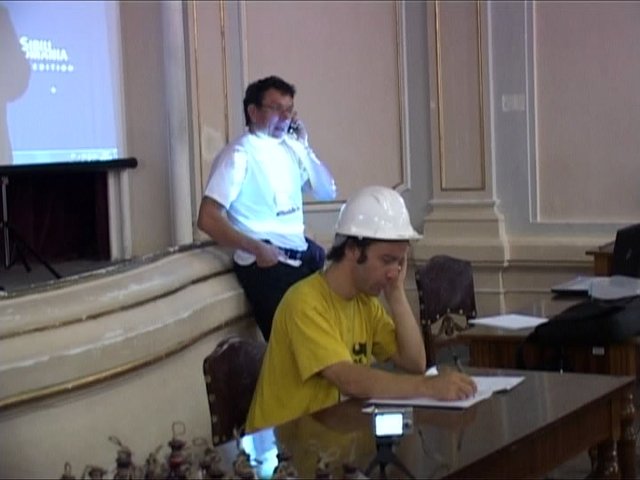
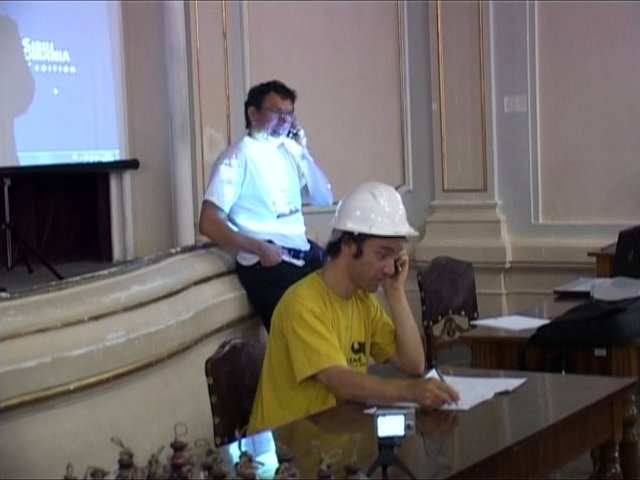
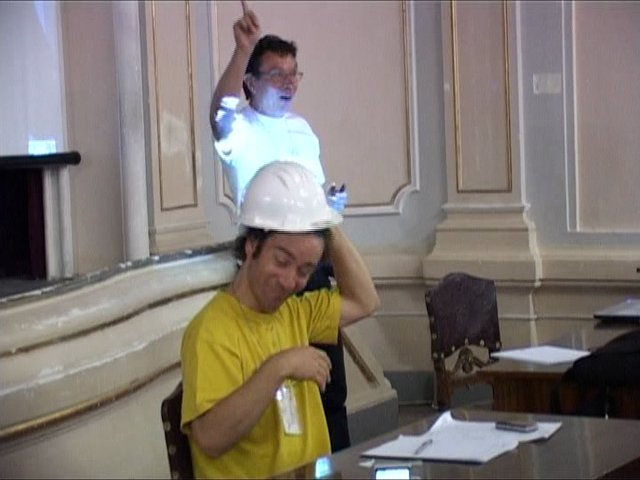
-part II-
“After a while, the manager of the observatory came
and watched the file written by Employee.
Observatory Manager:
What is this?
Employee:
A stupid Belgian with many names called you.
Observatory Manager (watches the file again):
Yes indeed,
it’s quite stupid.”
Video capture:
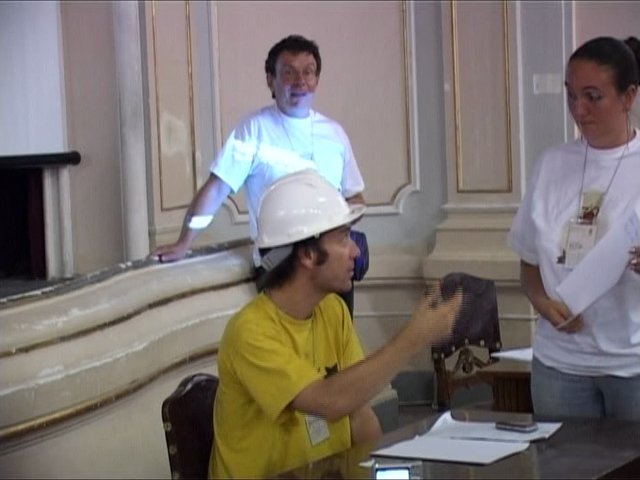
And photos (from the Belgian act) by Francisco Ocana (Spain, 1),
Bernd Brinkmann (2, 4, 6), Pompiliu Alexandru (3), Anna Kartashova (Russia, 5):
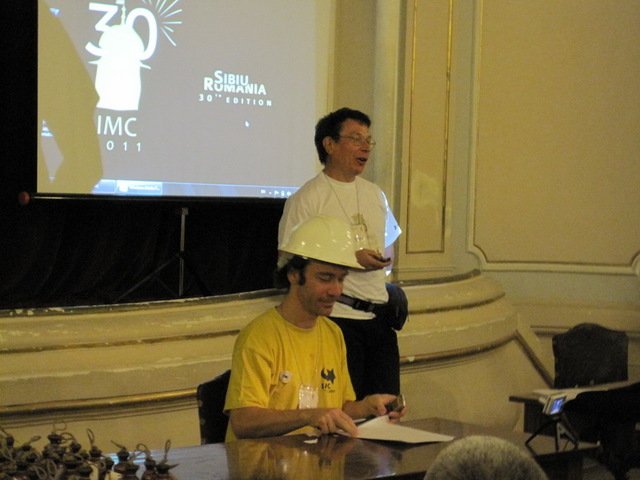
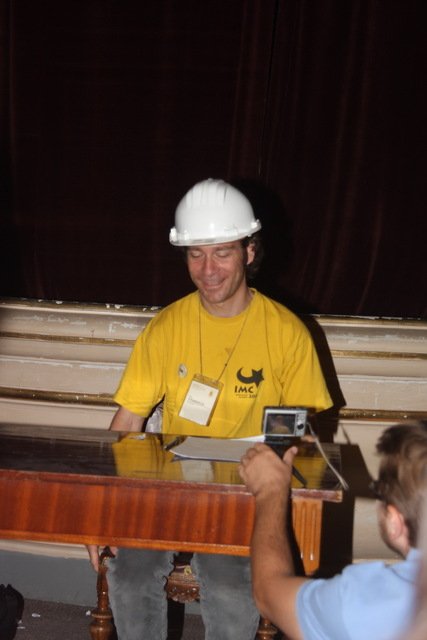
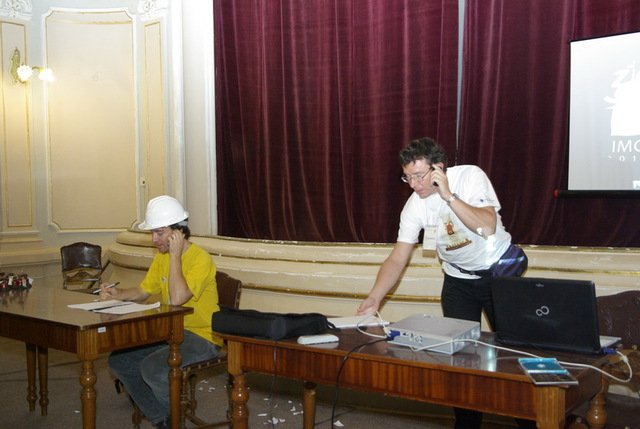
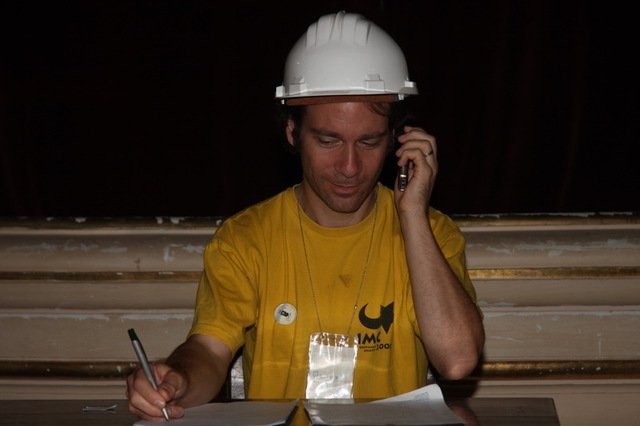
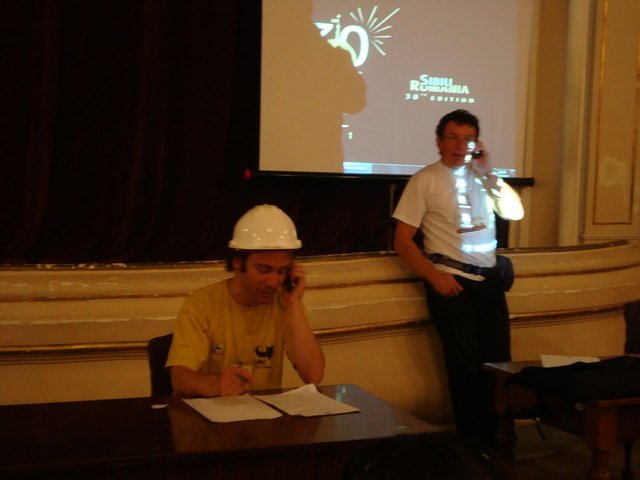
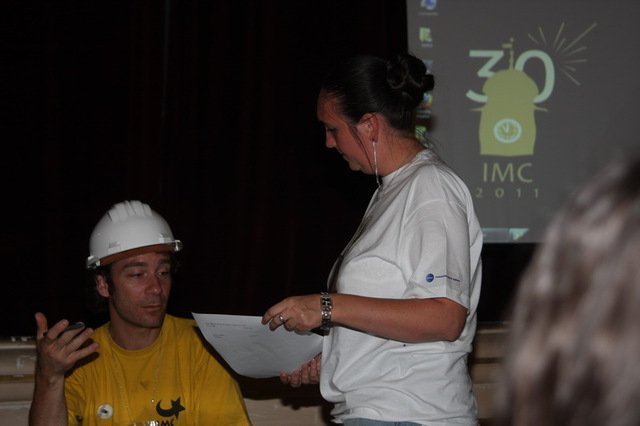
As a philosophical moral of this sketch,
even a French man from the audience,
Jeremie Vaubaillon,
completed for fun:
“The fresh news,
an apathy!”
Video capture:
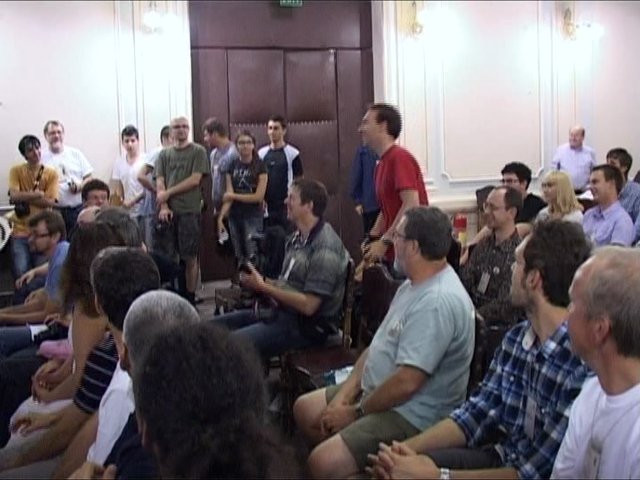
Then Andrei Dorian Gheorghe announced
“an occasion for a French revenge”…
Video capture:
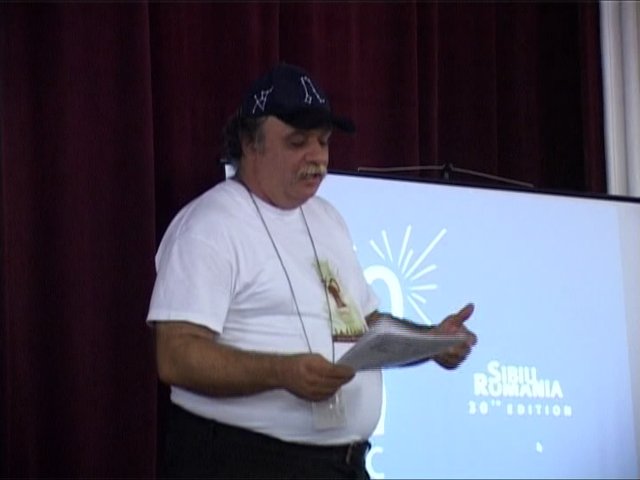
…and the French professional astronomers
Jeremie Vaubaillon (the best meteor shower predictor in the last years)
and Sylvain Bouley
came to play the new version of the Song of the IMC
(7 years after Jeremie had launched the first variant at the IMC 2004
in Varna, Bulgaria)
with allusions to a Romanian beer called Ursus
and to the next IMC (2012) in the Canary Islands.
(It is to note that two laborious members of the IMC 2011 organizing team,
Florentina Ilesan and Catalin Stan, brought 3 guitars for the spectacle!)
“THE SONG OF THE IMC 2011
On the first day of IMC
We're happy to see the local committee
In the city hall of Sibiu
I'm just falling in love with you
You’re very welcome…
You’re very welcome to the IMC!
On the second day of IMC
We go for sightseeing in the city
After listening to every talk
We're up and ready for a sky walk
You’re very welcome…
You’re very welcome to the IMC!
On the third day of IMC
Your belly is full of “Ursus”
It is time to take the autobus
Cause tonight is astropoetry
You’re very welcome…
You’re very welcome to the IMC!
I can guarantee even in your dream
You can t imagine the Romanian team
Just for the show of astropoetry
You don t want to leave the IMC
You’re very welcome…
You’re very welcome to the IMC!
On the last day of all IMC's
Everyone depart with good memories
We said goodbye to Romania
And already think of Canaria
You’re very welcome…
You’re very welcome to the IMC!”
(Jeremie Vaubaillon and Sylvain Bouley)
Video captures:
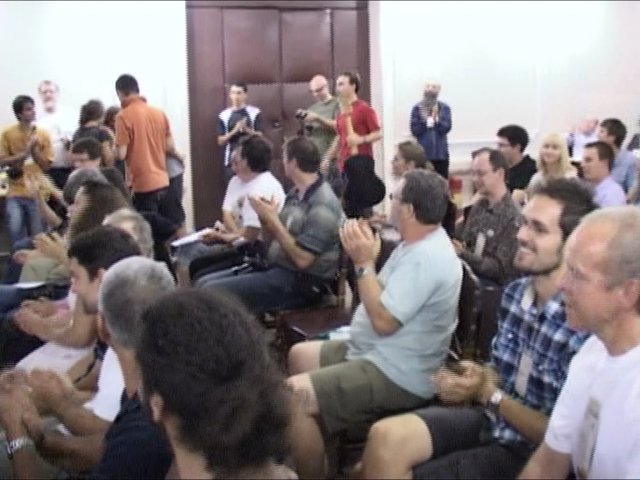
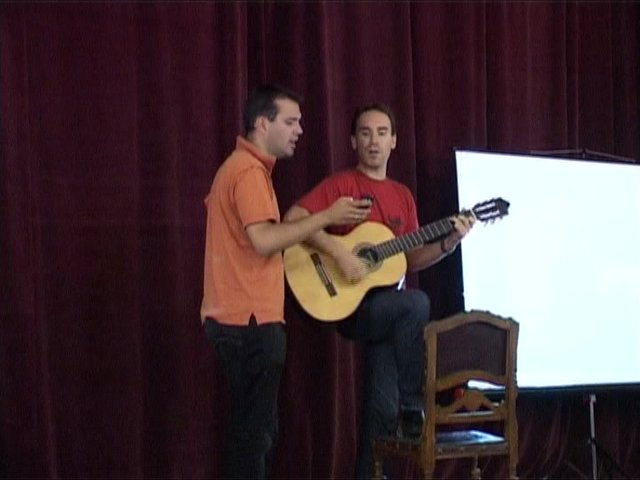
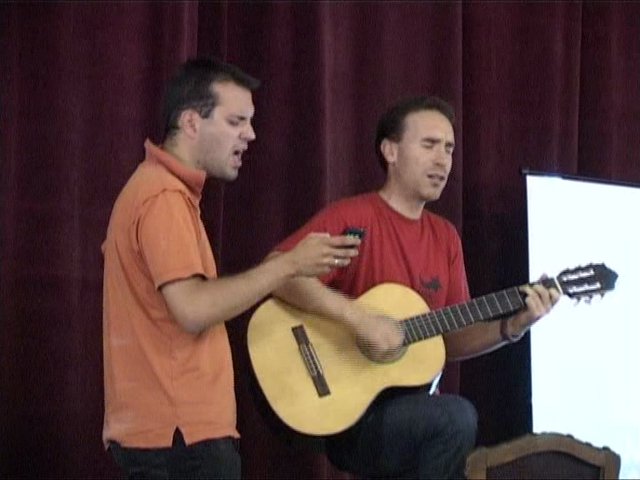
Then the French team, bigger with three other persons
(Jean-Louis Rault, Arnaud Leroy and Guillaume Dubois)
and led by the same Jeremie Vaubaillon,
created an exceptional act on the tune of a famous French canon
(“Frere Jacques, Frere Jacques,/ Dormez vous, dormez vous?/
Sonnez les matines, sonnez les matines,/ Din-din-don, din-din-don.”)
by replacing the original words with a fine synthesis
of the predicted close outburst of the Draconid meteor shower (October 12th),
which comes from Comet Giacobini-Zimmer:
“Giacobini, Giacobini,
Draconids, Draconids,
Let’s go to the party, let’s go to the party,
Whoosh, whoosh, whoosh! Whoosh, whoosh, whoosh!”
the last line being accented by hand movements.
It was quite impressive that, following Jeremie’s call,
the entire audience participated at this act.
Video captures:
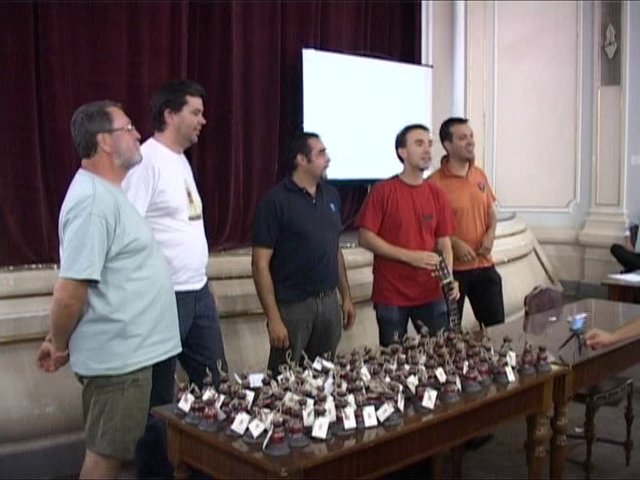
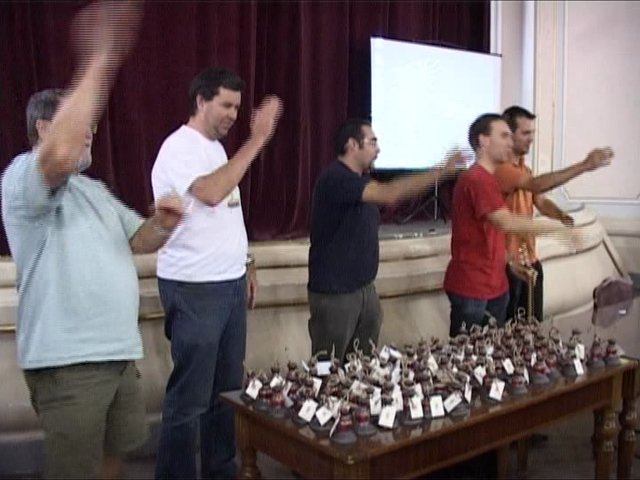
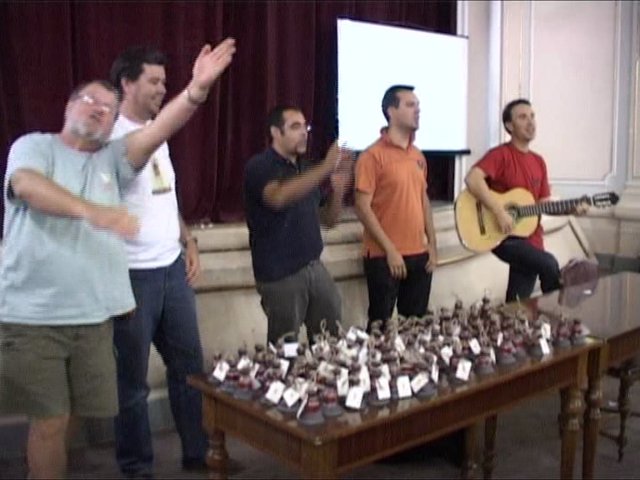
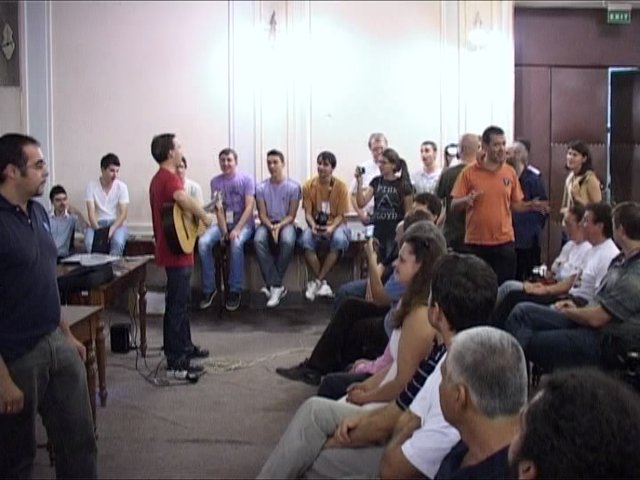
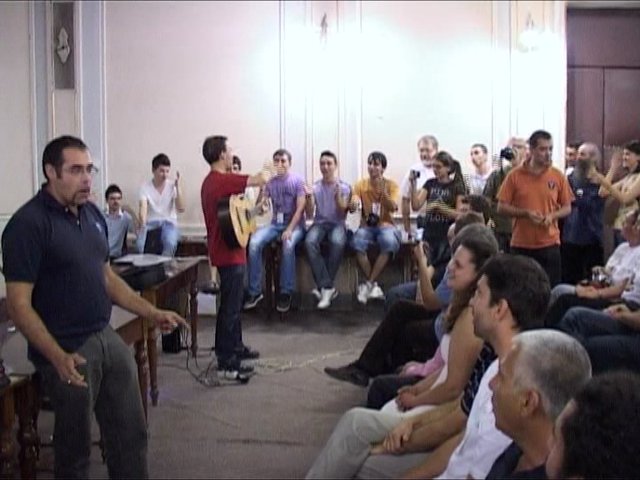
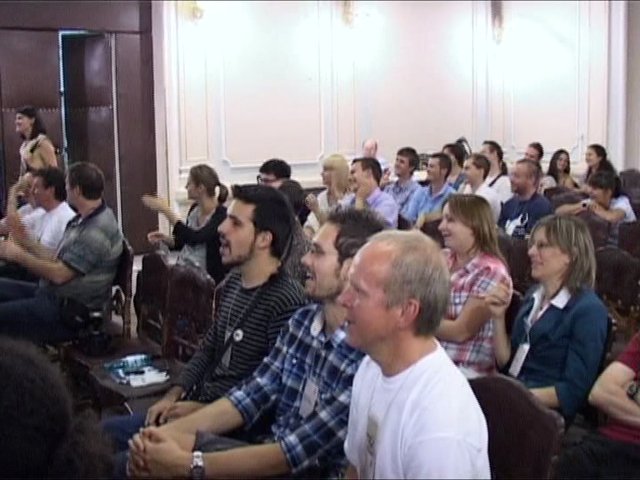
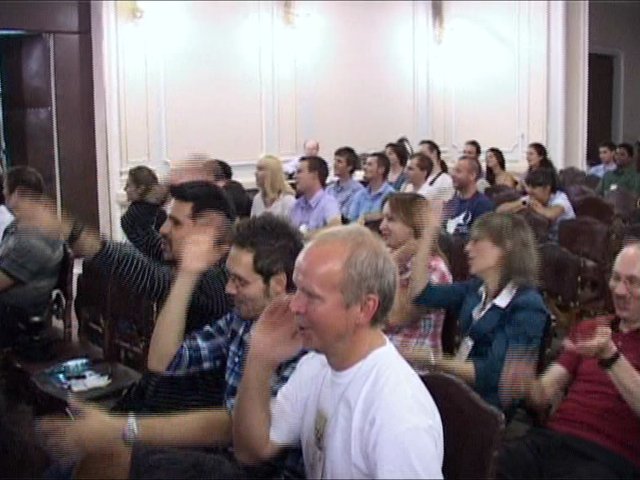
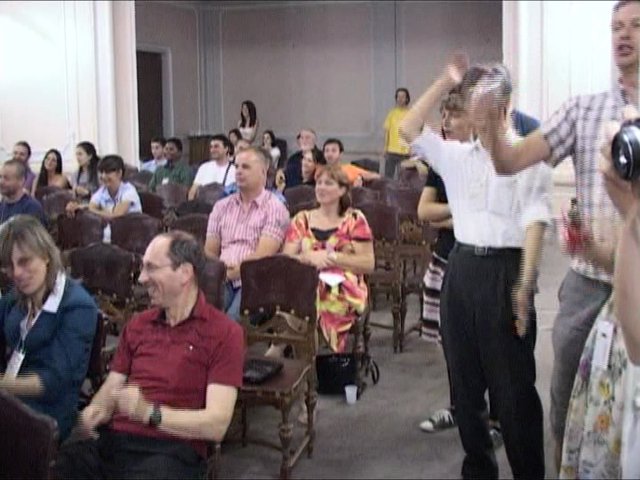
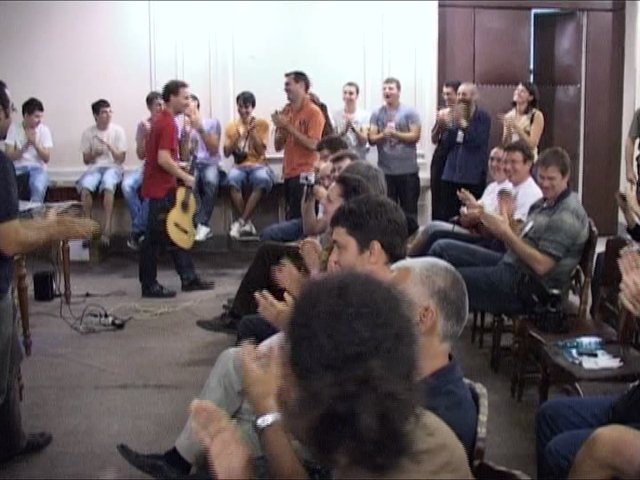
And photos (from the French acts) by Bernd Brinkmann (1, 2, 3, 5, 6, 8),
Casper ter Kuile (Holland, 4), Andrei Matache (7, 9):
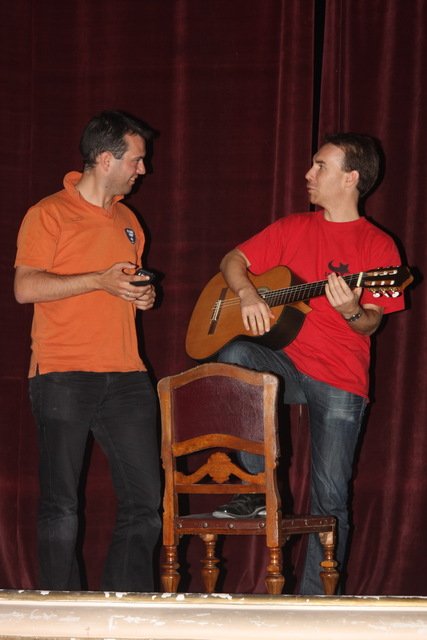
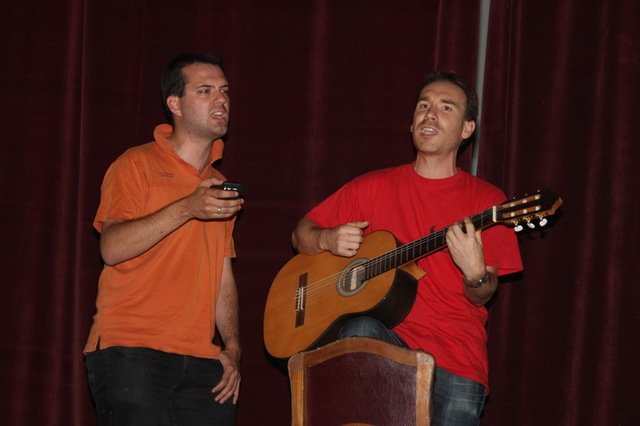
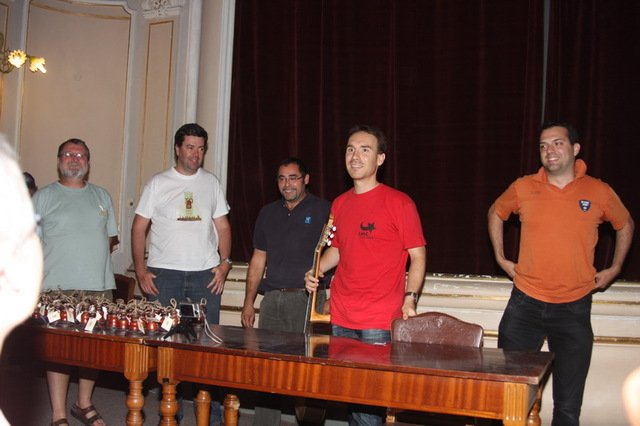
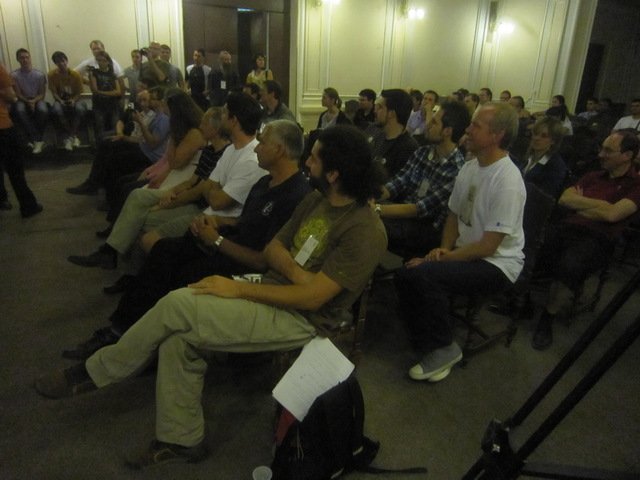
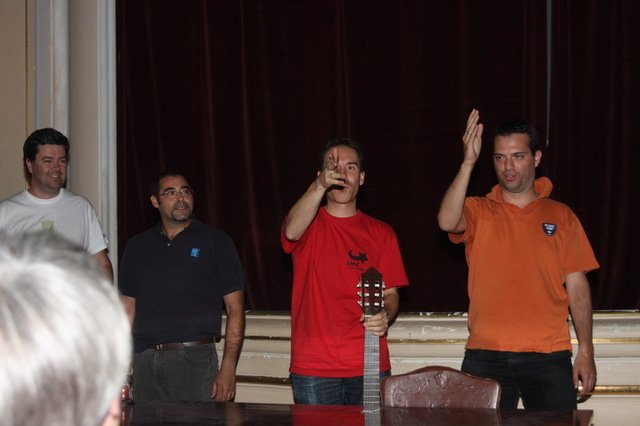
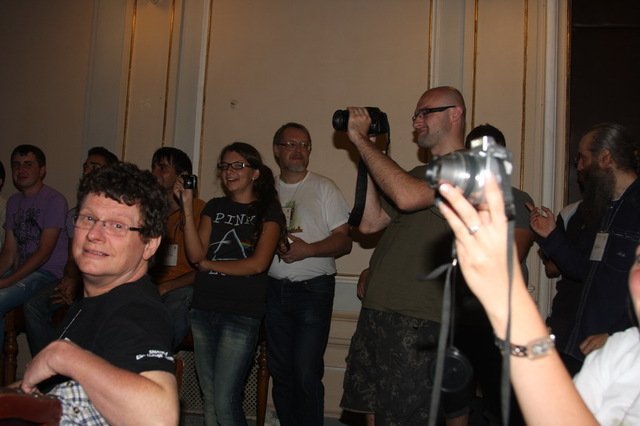
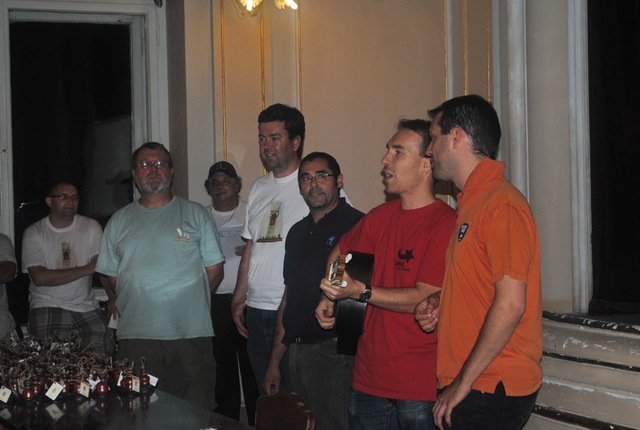
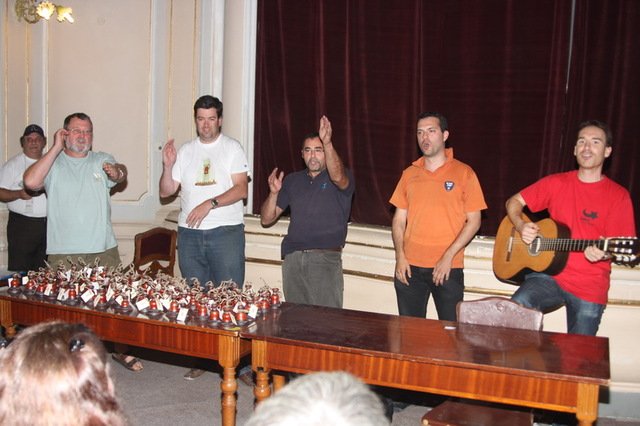
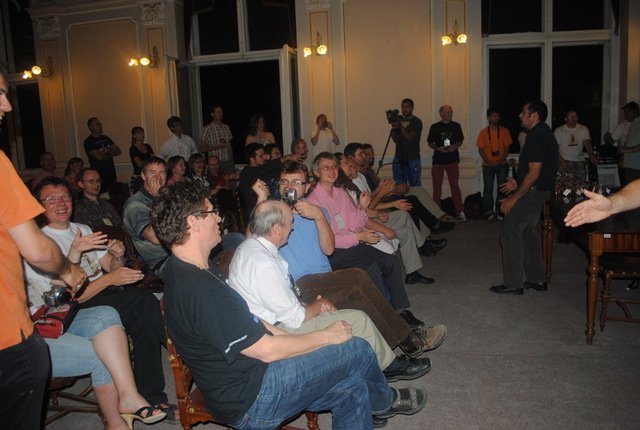
Andrei Dorian Gheorghe continued with a special presentation:
“I have the honour to present you the first AstroCube in the world.
You know the principle of this game,
now it is adapted for some planets and satellites.
It was made by the Romanian astronomer Stefan Berinde
(yesterday he visited this IMC!)
in cooperation with a Swiss friend,
and you can find more about it on the Internet.
I put it next to the stage
to be the talisman of this Astropoetry Show!”
Video captures:
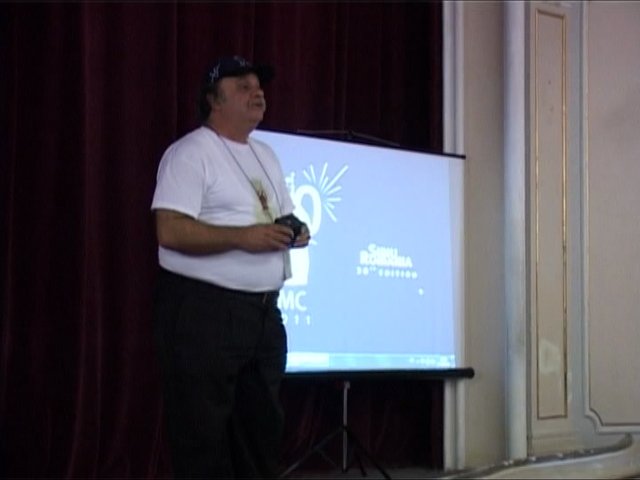
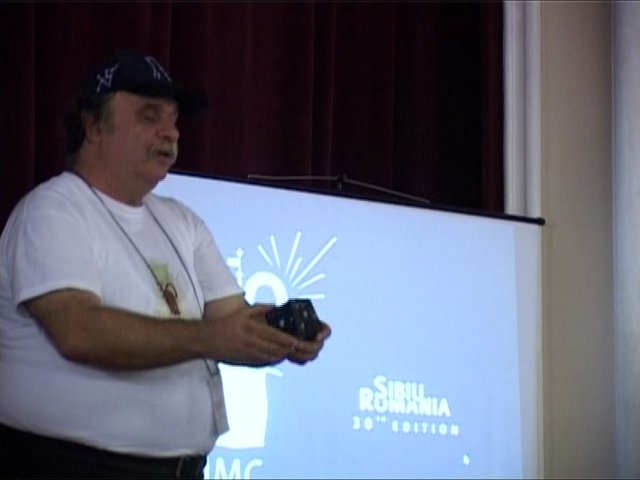
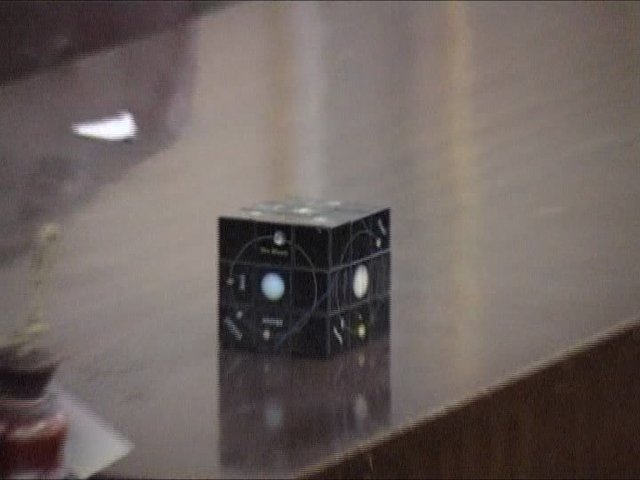
And a photo by Bernd Brinkmann:
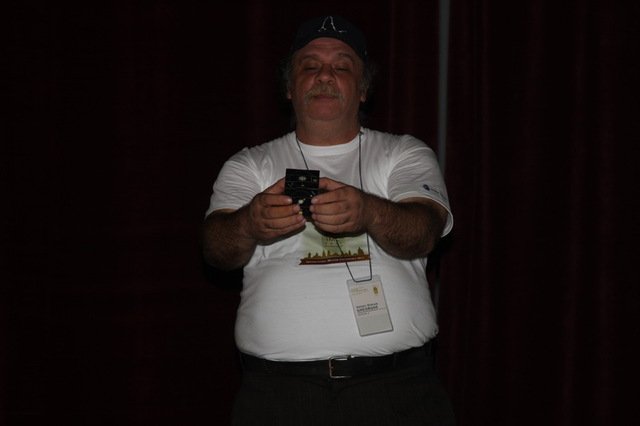
The next act was dedicated to the beloved Japanese literary species
called haiku.
For this, Andrei was happy to invite two former leading members of SARM.
Video capture:
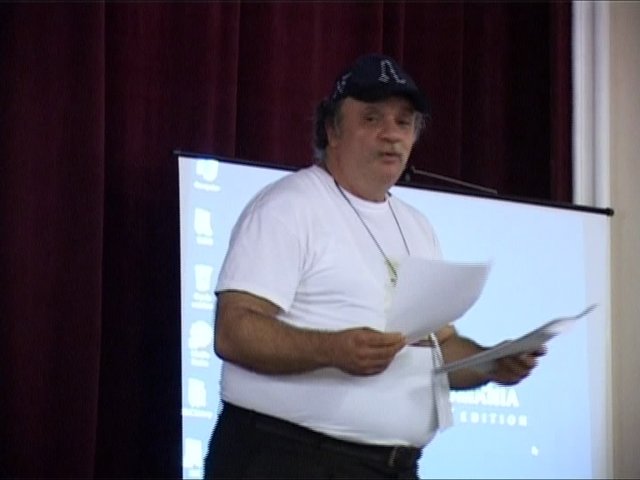
The first of them was just Gelu Claudiu Radu,
Andrei’s main partner in preparing the first seven Astropoetry Shows at the IMC,
who read:
“METEORS
Comet evidence
for the next generations.
The time travellers.”
(Gelu Claudiu Radu)
Video capture:
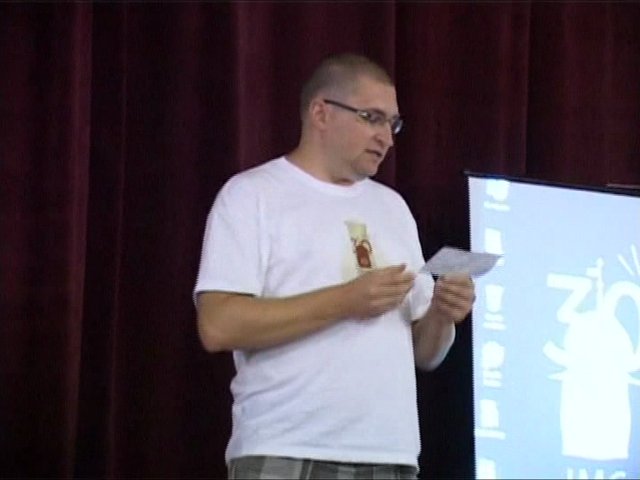
And a photo by Bernd Brinkmann:
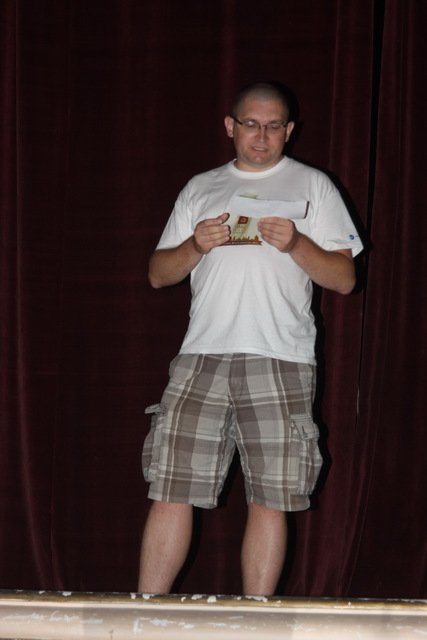
The second was Diana Maria Ogescu,
a former vice-president of SARM,
who read:
“STATE OF METEORS
Perseids -
special guests at the party
of sky goddesses.”
(Diana Maria Ogescu)
Video capture:
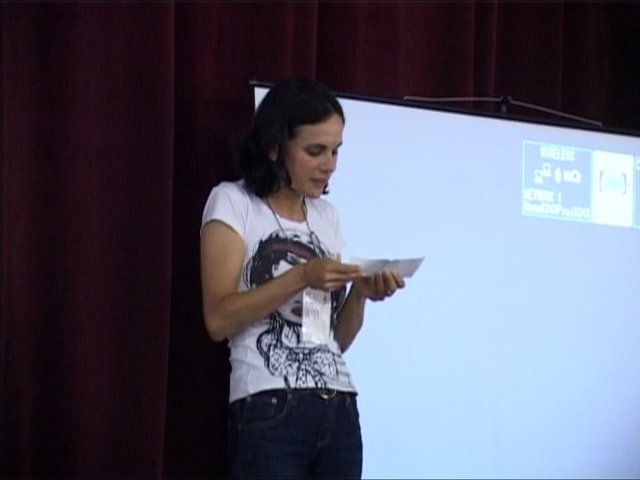
And a photo by Bernd Brinkmann:
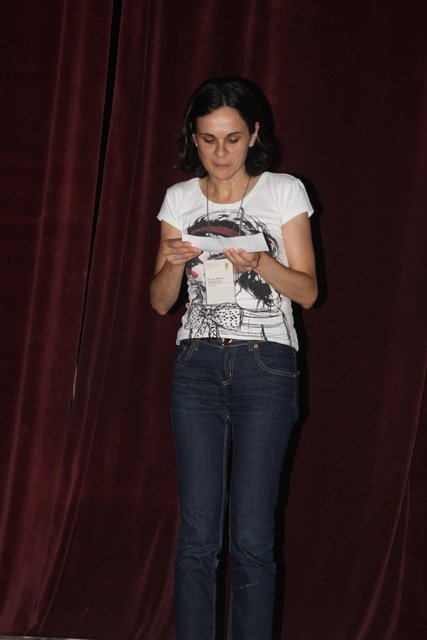
Then, right from the country of the haiku,
the two Japanese participants at the IMC made a wonderful cultural demonstration.
Nagatoshi Nogami recommended his compatriot Yasuhiro Tonomura
(who came just from Fukushima, the zone of a recent terrible earthquake
followed by a nuclear accident)
as a “black belt” in judo and also as a “black belt” in Japanese calligraphy,
and called a volunteer in the person of Miruna Popescu
from Armagh Observatory (Northern Ireland).
After that, Tonomura exemplified the art of kanji by drawing
their guest’s name (“the sound as meaning” - explained Nogami)
and her characteristics.
The result was also explained by Nogami:
“Tonomura wrote “mi-do-la”.
“Mi” means beauty.
“Do” means a colour, light to yellow.
“La” means flower.
So totally beautiful - light to yellow - flower.
This is her name.”
Video captures:
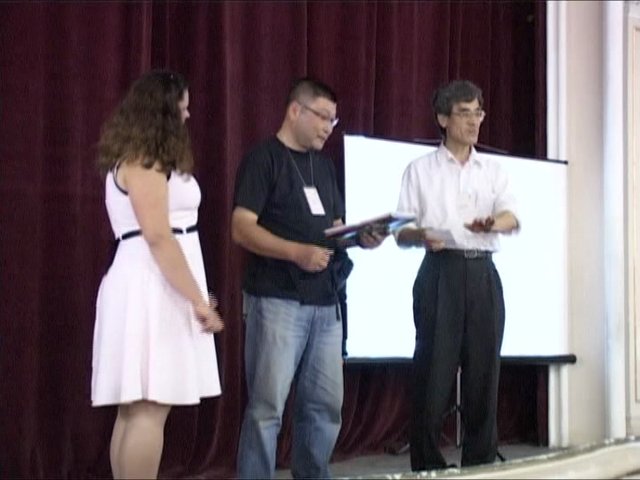
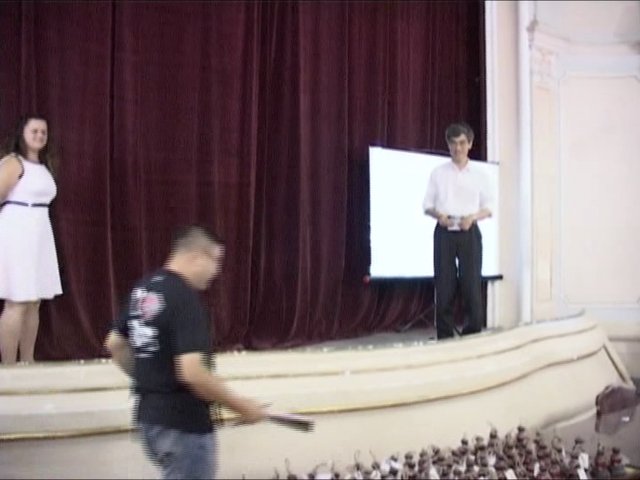
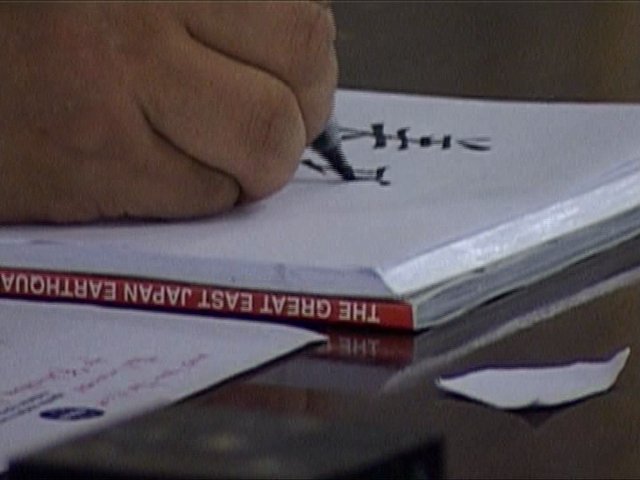
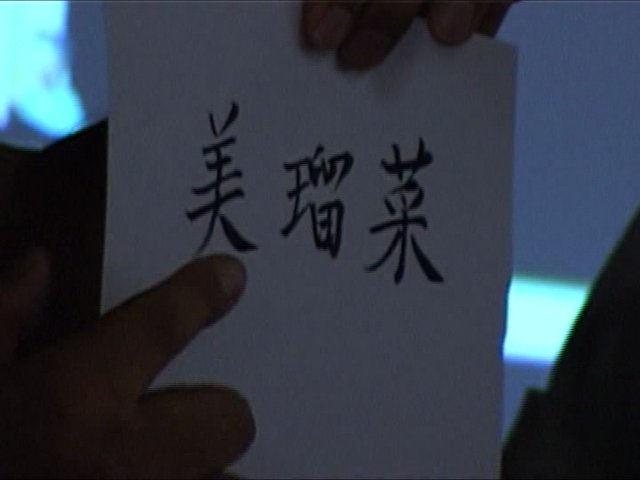
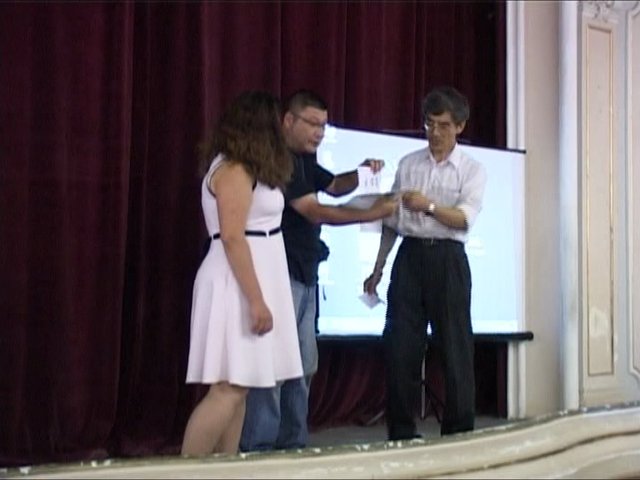
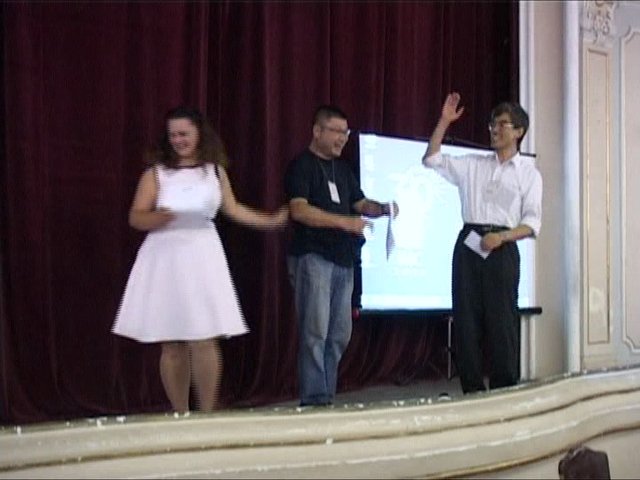
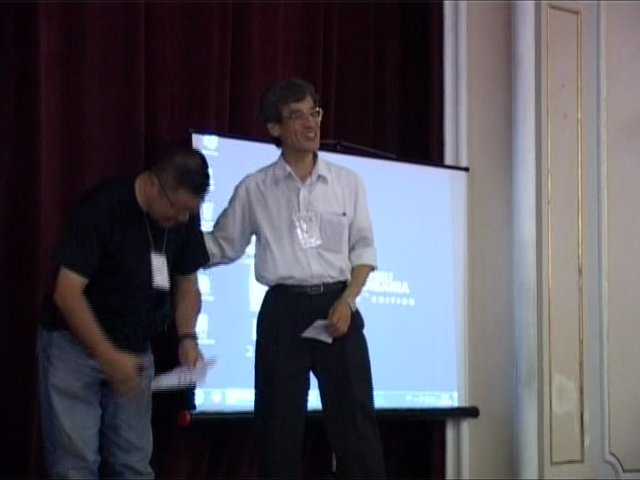
And of course, Nogami continued by reading two haikus
(in Japanese and in English)
about the wonderful and comfortable atmosphere at the IMC:
“Wonderful taste of drinks
with wonderful mates
in September again rotated.”
“Happy voice calls you out
after long long two years
not to see each other.”
(Nagatoshi Nogami)
Video captures:
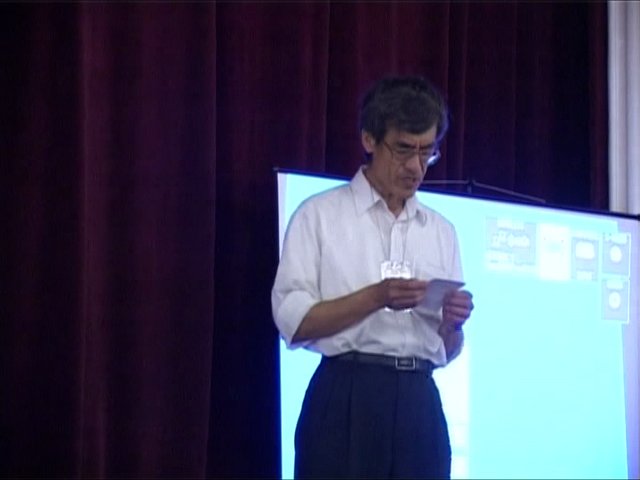
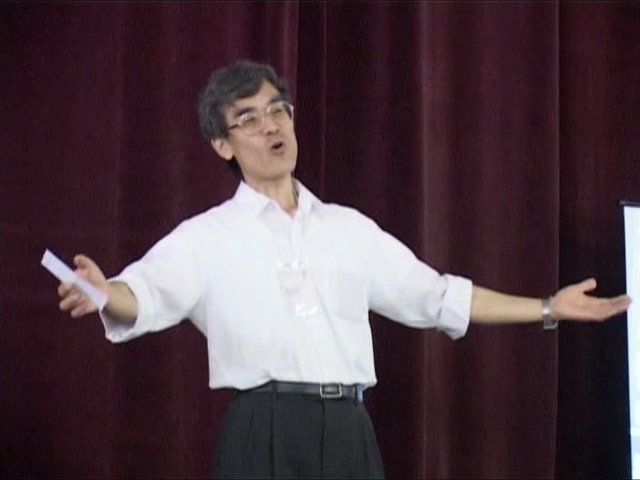
And photos (from the Japanese acts) by Bernd Brinkmann (1, 4-9),
Casper ter Kuile (2), Valentin Grigore (3):
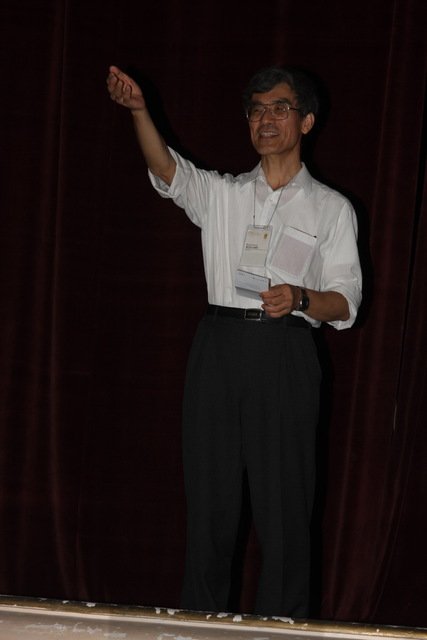
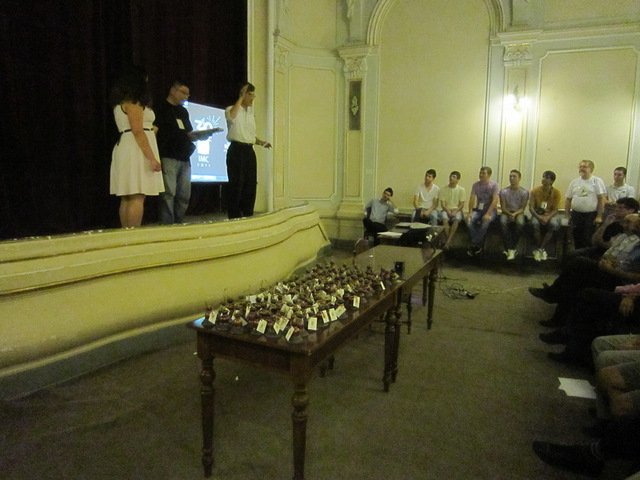
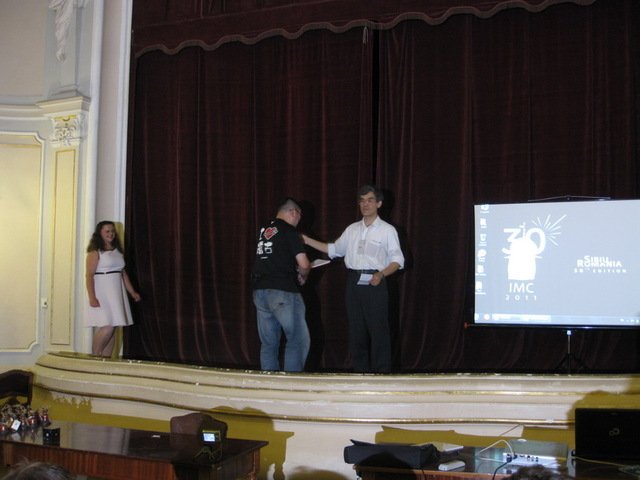
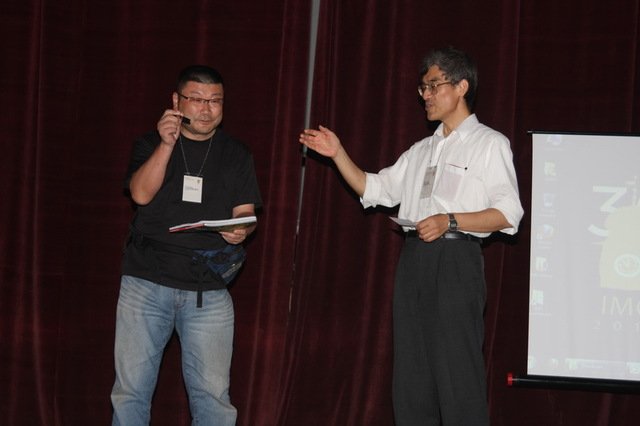
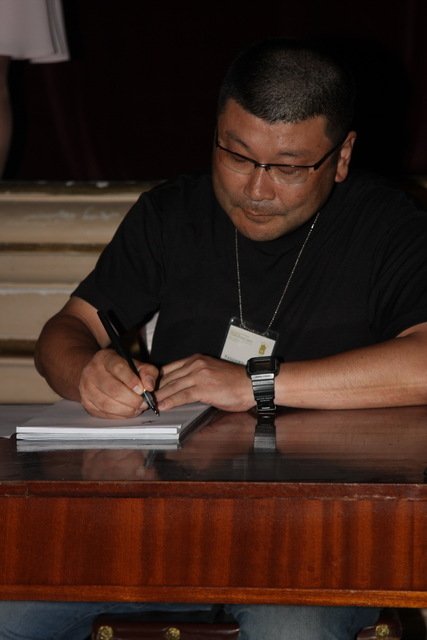
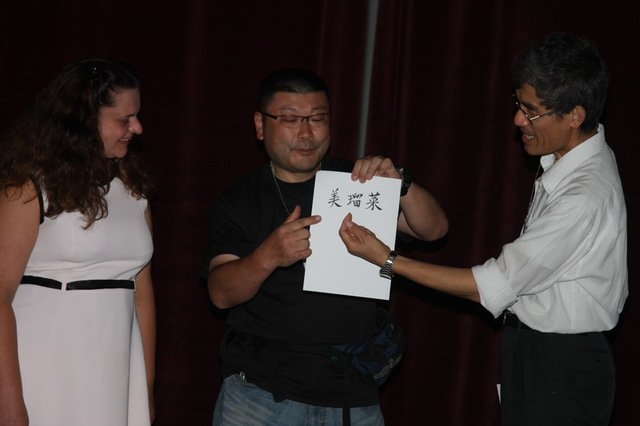
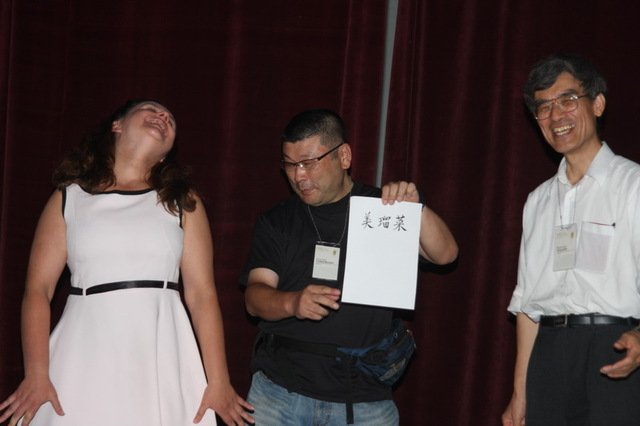
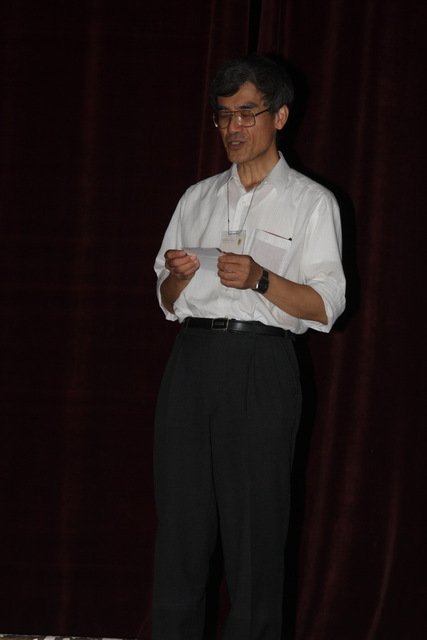
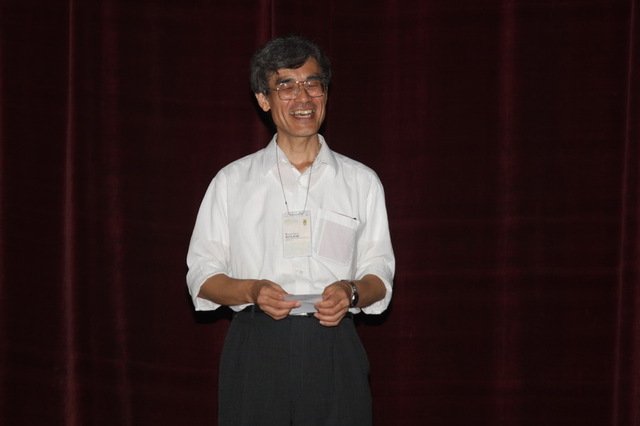
A quite special act was the return to the IMC, after 11 years,
of the founder of astrofolk music in Romania and of meteor folk music at the IMC,
the great Romanian astropoet and astroartist Dan Mitrut.
It was a musical astrodrama on Dan Mitrut’s verses,
in which Gelu Claudiu Radu was the Meteor,
Andrei Dorian Gheorghe was the Teller
and Dan Mitrut started by playing the guitar background.
After that he sang the most beautiful three meteor songs listened at the IMCs.
“METEOR’S MESSAGE
Meteor:
I don’t know how many lives you have
I don’t care of the golden iron from the core of fire
I am the demon of your angel
and on earth
you will find only the crazy world.
Teller (about Meteor)
He plunges, sunk in the aurora, intoxicated with blue.
Meteor:
I’m living on the throat
broken by the craziness of light
all the dreams play
I am the demon of your angel
and on earth
you have a warm nest in your heart
cub of clay”
(Dan Mitrut)
Video captures:
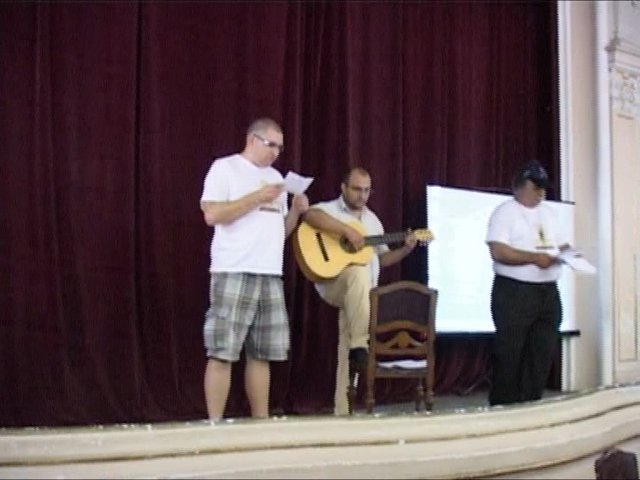
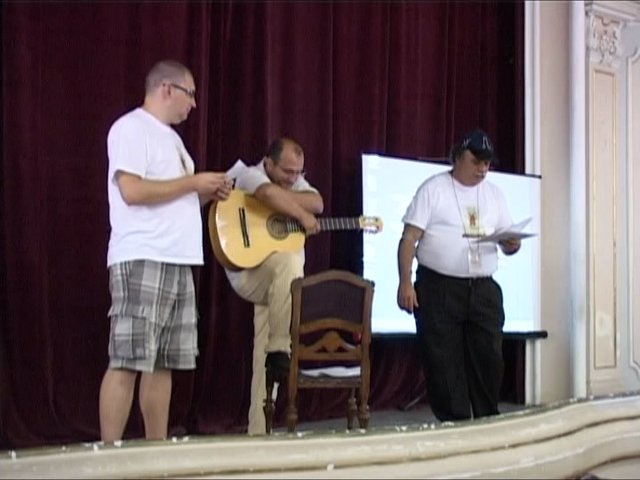
Teller (recited from Rain of Stars):
“It’s raining stars, young slave.
It’s raining stars over the blind Earth.
It’s raining stars bathed in milk.
Chains of night rattle in the sky.”
And Dan Mitrut sang Rain of Stars in Romanian,
a song which had been first listened at the IMC in 1997 as an audio recording
in the opening of the first Astropoetry Show.
This time Rain of Stars impressed especially
the two French “astrosingers” from Paris Observatory
and “Miss IMC 2011” Rhiannon Blaauw from NASA.
Video captures:
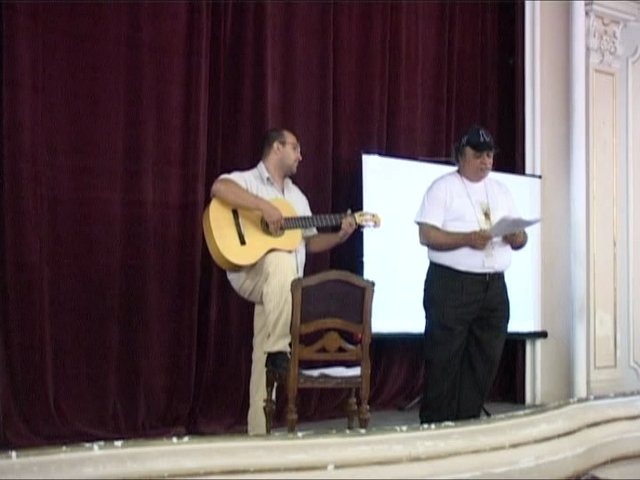
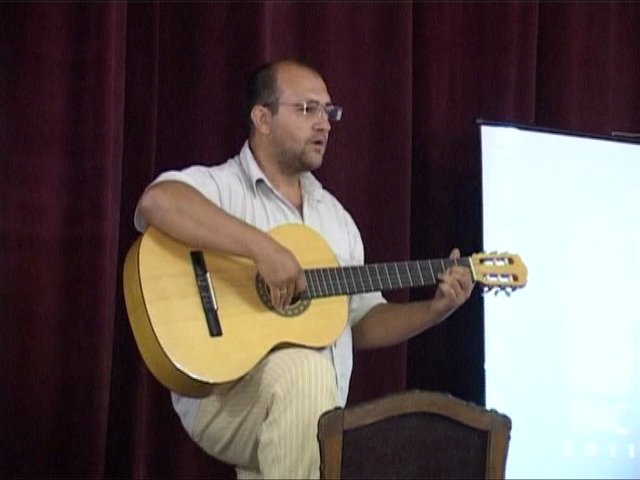
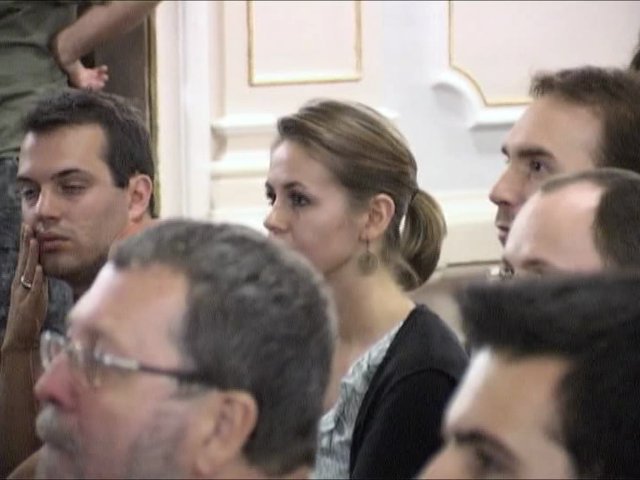
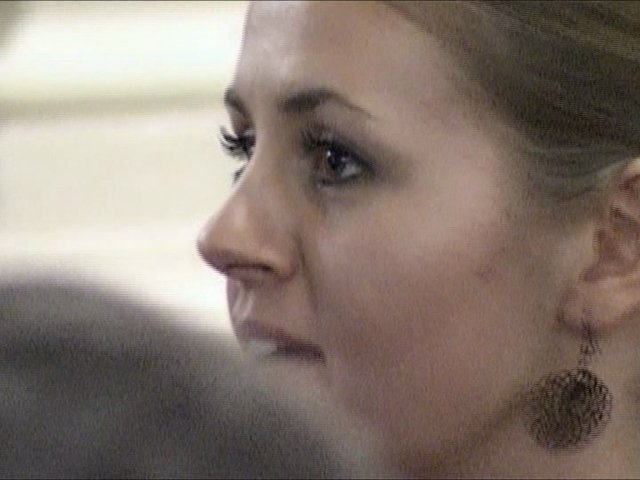
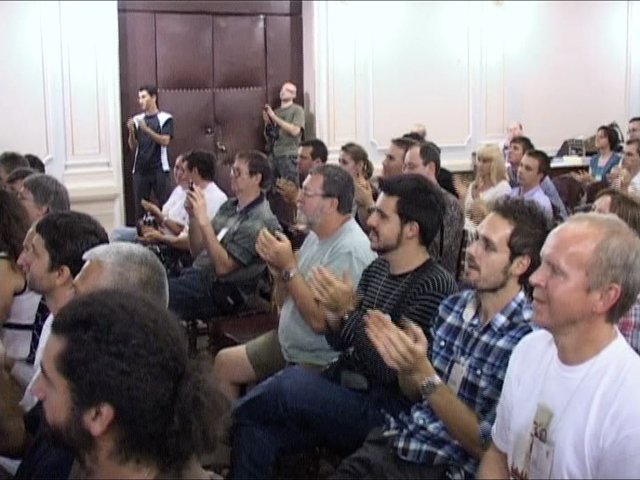
Teller (recited from Meteor - Destiny of Flight):
“From abysses,
From other worlds,
Without wings,
The jump is easy,
Meteor,
Destiny of flight.”
And Dan Mitrut sang Meteor Destiny of Flight in Romanian.
Video captures:
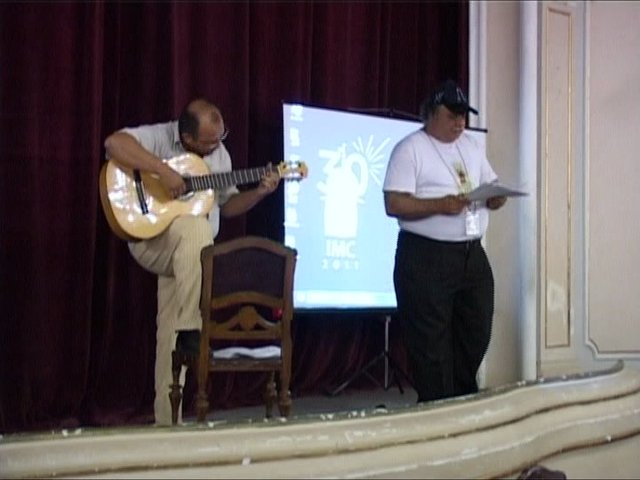
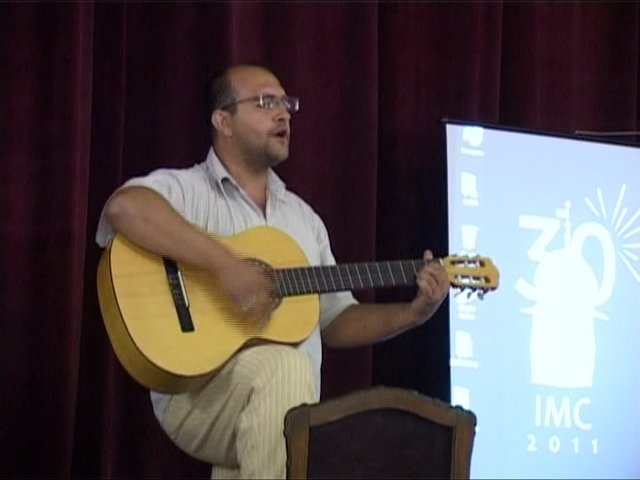
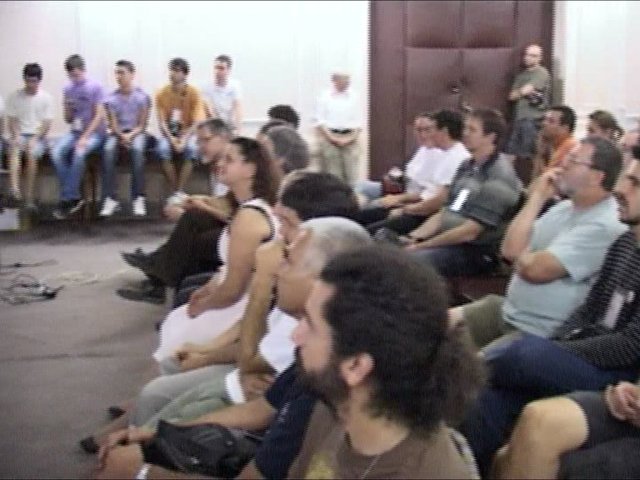
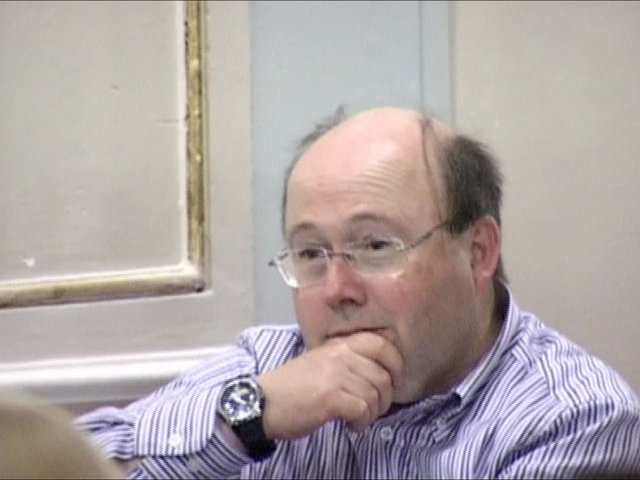
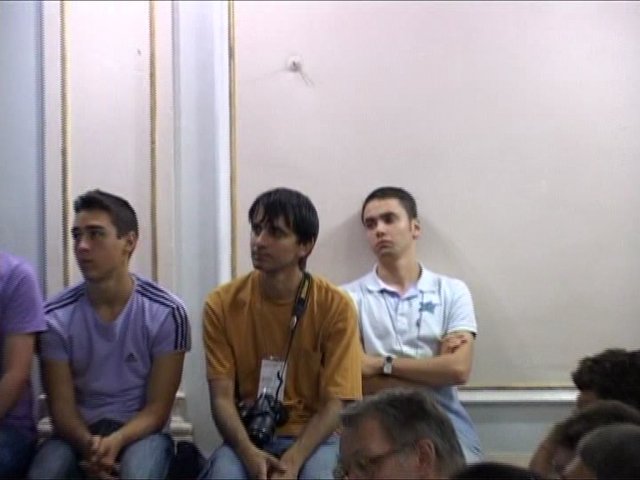
Teller (recited from The Ballad of a Meteor Fallen in Love):
“Close to the stars I was born,
Close to the stars I fell down,
But when I arrived on Earth
My beloved star
Was just a beacon in the night.
And all the Universe cried
My despair.”
And Dan Mitrut sang The Ballad of a Meteor Fallen in Love in Romanian.”
Video captures:
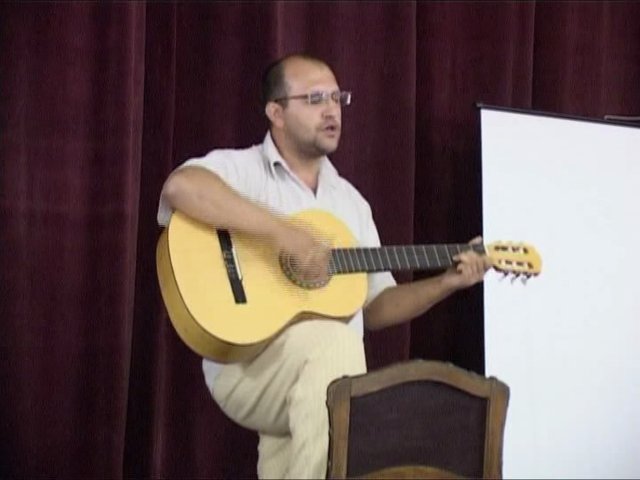
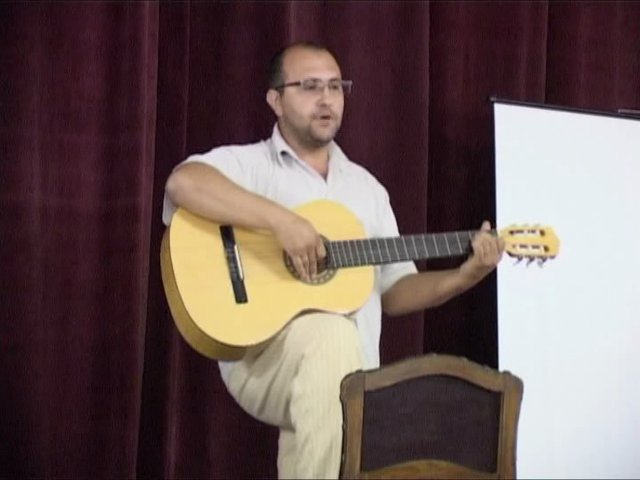
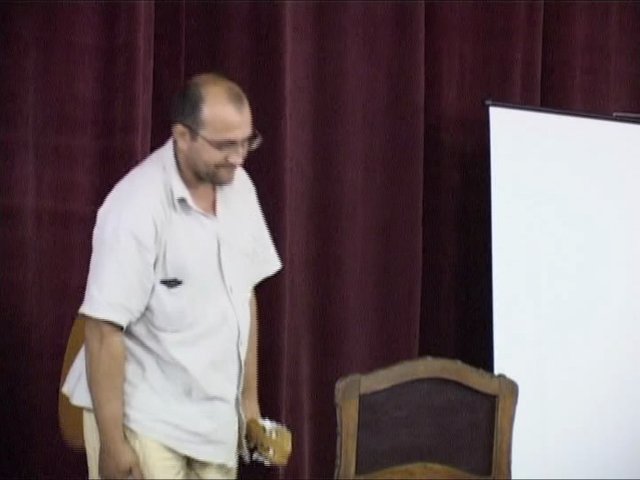
And photos (from the Romanian act) by Bernd Brinkmann (1, 3, 7),
Casper ter Kuile (2), Andrei Matache (4), Valentin Grigore (5, 6):
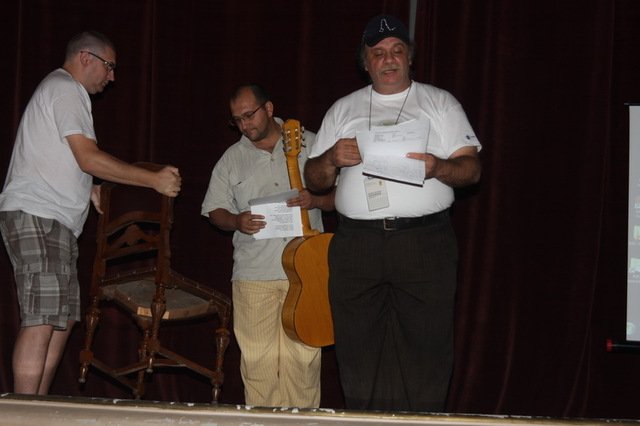
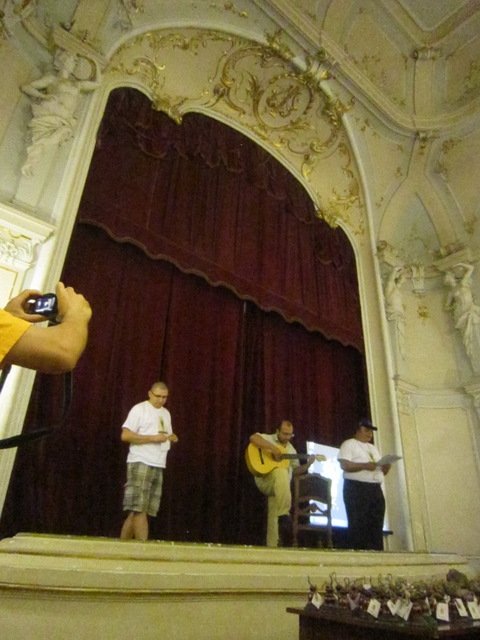
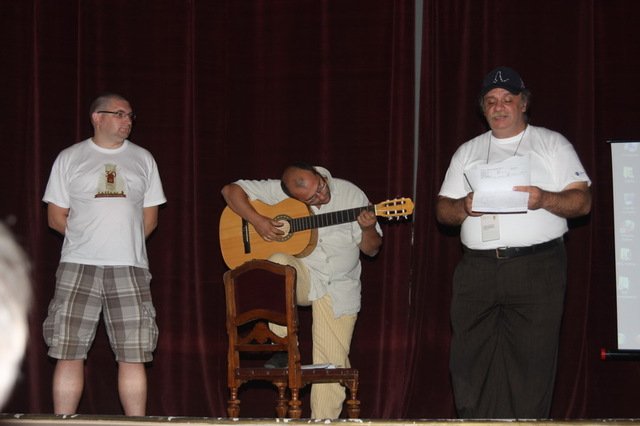
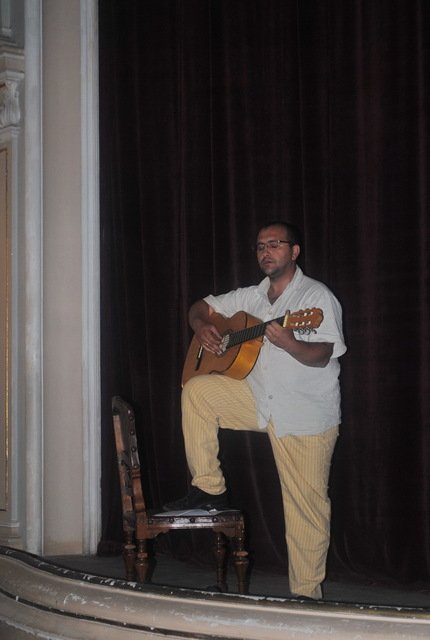
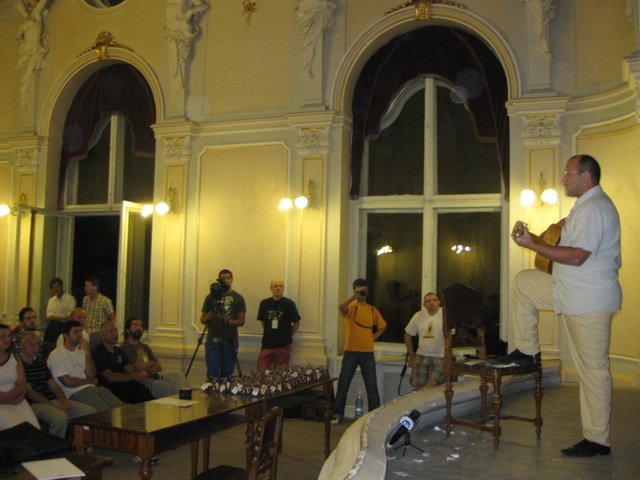
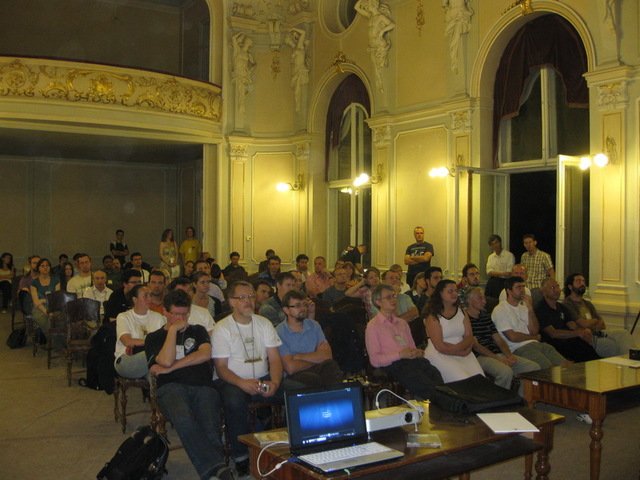
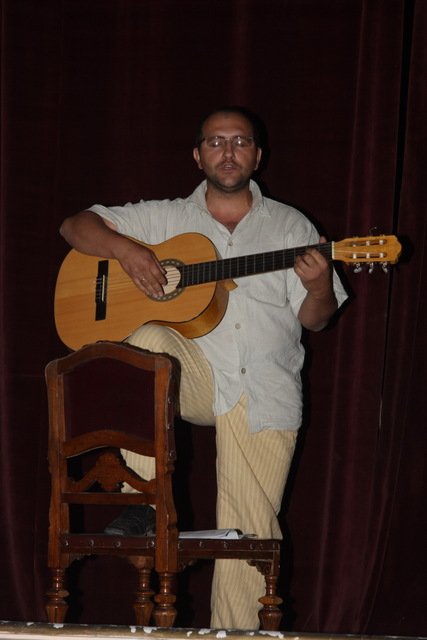
Then another Romanian special act.
The oldest participant at the IMC 2011, Dominic Diamant
(age 76, Petre Vlad on his real name;
he was a political prisoner under the communist regime in Romania,
published poems in many Romanian literary magazines,
and was the author of 10 books of poetry and prose)
read in Romanian his superb Ballad of the Falling Star
(which had been first published in 1972 in Literary Romania,
the most famous cultural magazine in this country).
He was “flanked” by Victor Chifelea (who read the same poem in English)
and Andrei Dorian Gheorghe (the translator of the English version).
Here is the Romanian/English alternation of the poem
as it was presented at the IMC 2011:
“BALADA STELEI CAZATOARE
THE BALLAD OF THE FALLING STAR
Trec printre lucruri arzand ca o stea cazatoare
Straniu furata de drumu-i in noapte pierdut
Lumea din mine, adanc mistuita, ma doare,
Trecerea ei in lumina abia a-nceput
I pass among the things, burning like a falling star
Strangely stolen by its road lost in the night
My deeply consumed inner world aches,
My assault begins through the light
Spatiul canta-ndelung tulburat, dupa mine,
Timpul tresare-mboldit de un tainic fior
Zarile-atinse de zboru-mi incep sa lumine,
Umbrele noptii se zbat in convulsii si mor
Space sings for long, perturbed after me,
Time shivers, spurred by a strange thrill in the sky,
The horizon touched by my flight starts lightening,
The nocturnal shadows convulsively toss and die
Stingerea mea peste culmi de mistere rasuna
-Dulce cadere in bratele somnului lin-
Visele lumii adanci dirijeaza pe luna
Tainele cosmicei nopti catre zorii ce vin
My extinction resounds over summits of mysteries,
A sweet fall into the arms of the gentle sleep-pawn,
Dreams of the deep world conduct on the moon
Secrets of the cosmic night to the coming dawn
Stea cazatoare, in pulsul genezei m-oi pierde
Ca un fior absorbit de un cant necuprins,
Nemaistiind, in explozia lumilor verde,
De-am disparut sau in freamat inalt m-am aprins
Falling star I’ll be lost in the pulse of genesis
Like a quiver absorbed by an infinite song
And I don’t know if, in the worlds’ explosion,
I’ve disappeared or I’m a high fire rustle before long”
(Dominic Diamant)
Finally Dominic Diamant himself read in English a recent
“METEOR STANZA
I deeply vibrate with every falling star,
and every luminous fireball
flashes me and hurts me.”
(Dominic Diamant)
Video captures:
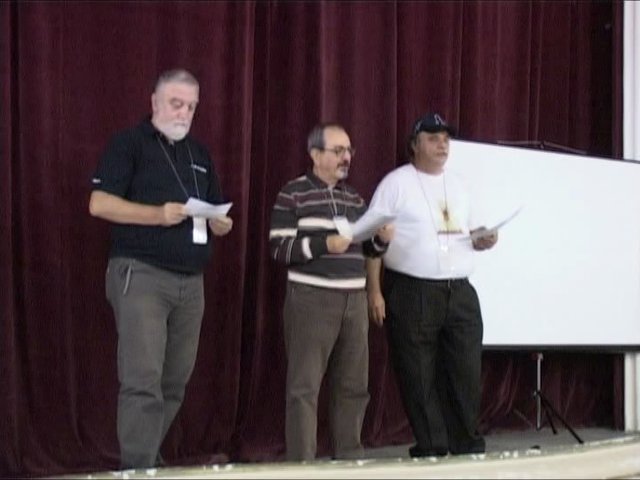
Photos by Valentin Grigore, Casper ter Kuile,
Bernd Brinkmann:
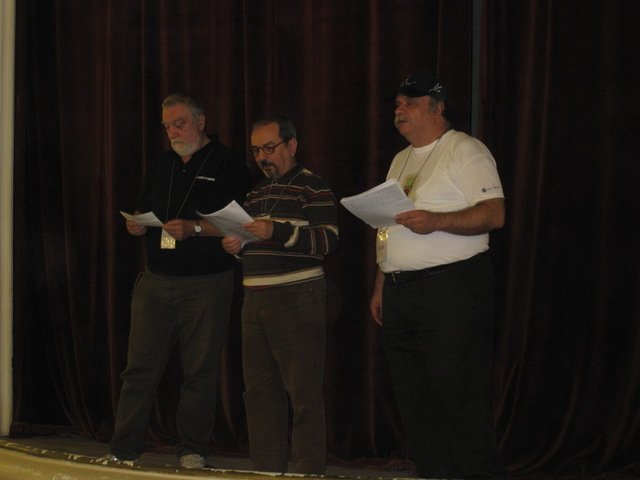
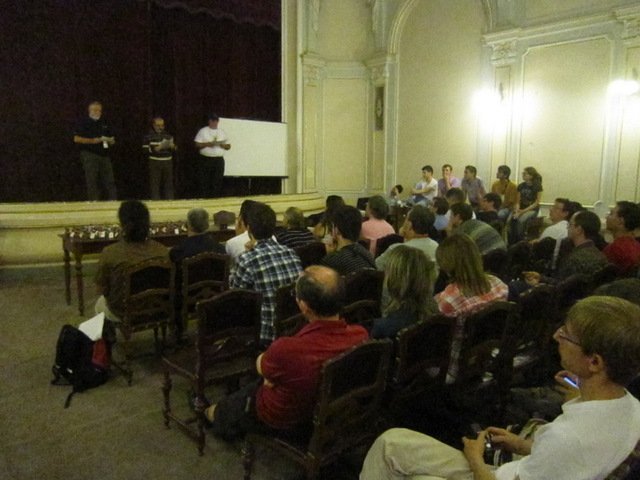
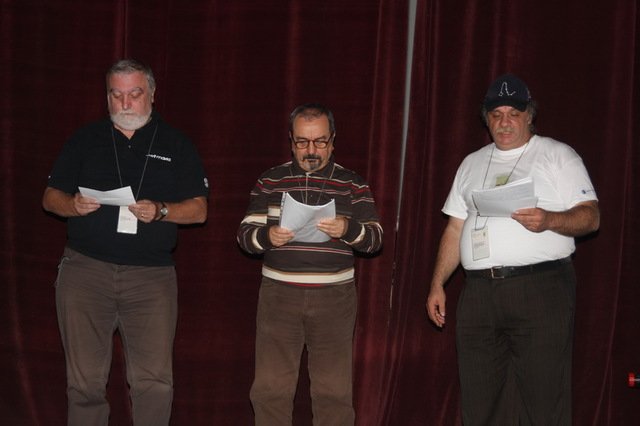
And a video capture again:
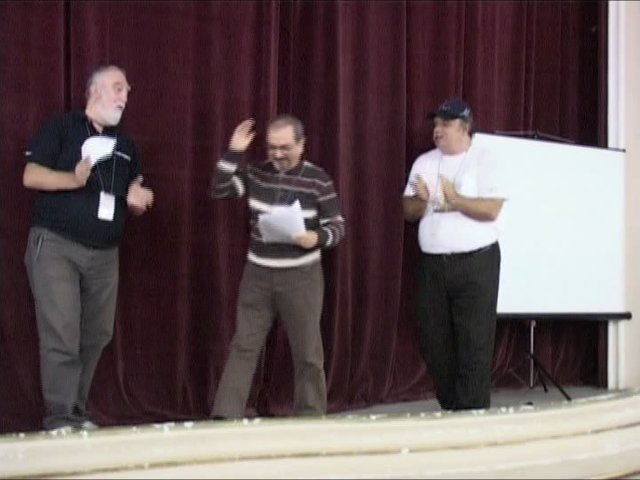
The next act was a world premiere.
On Meteor Music
[radioastronomy recordings by Jean-Louis Rault (France)],
which sounds as more than… super progressive music(!!!),
Andrei Dorian Gheorghe and Gelu Claudiu Radu performed a dance improvisation.
But first Andrei asked Jean-Louis:
“Do you trust us?”
“Yes!!!”
was Jean-Louis’ optimistic answer.
Video captures:
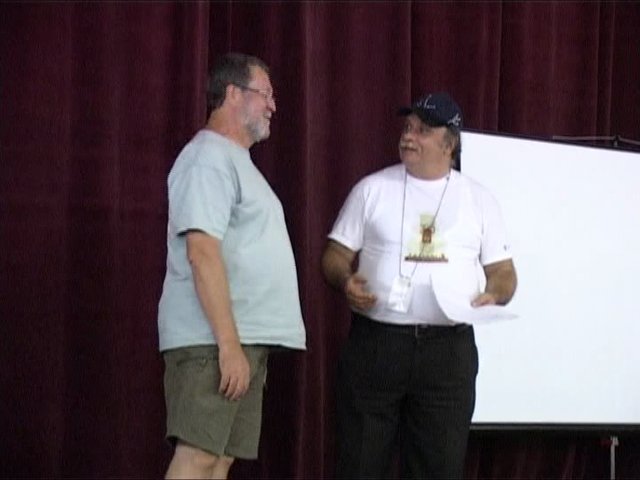
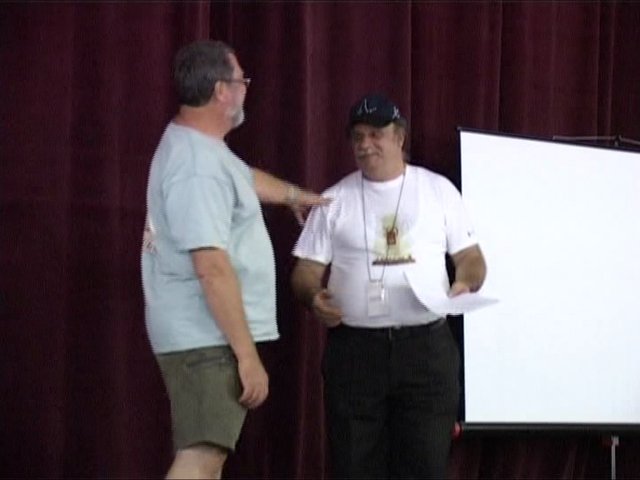
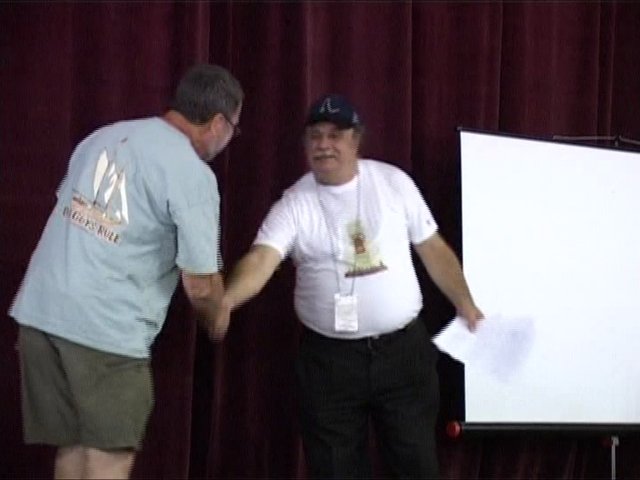
Then, Dance on Meteor Music!!!
Video captures:
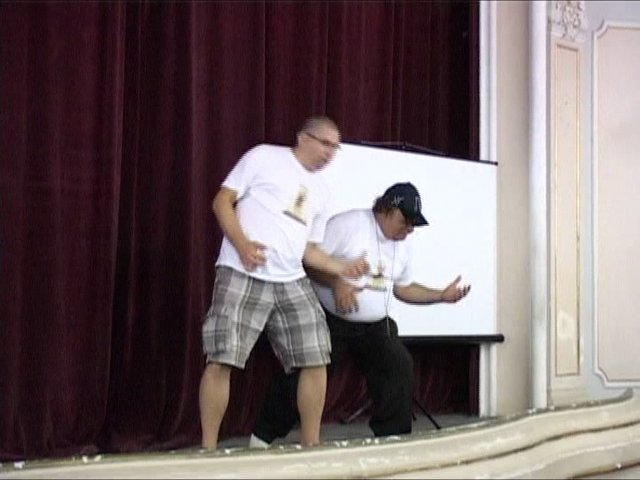
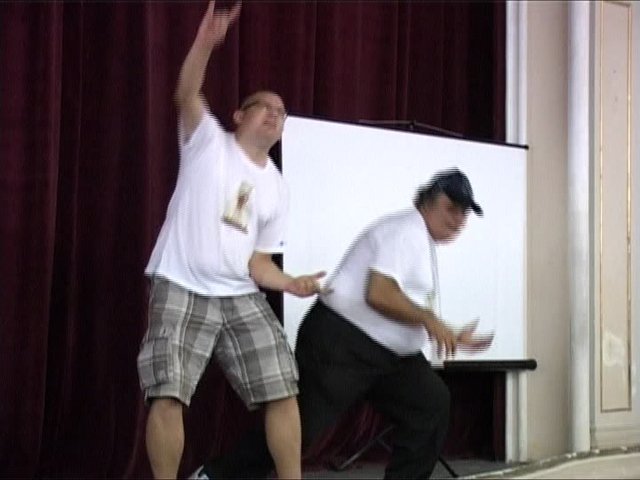
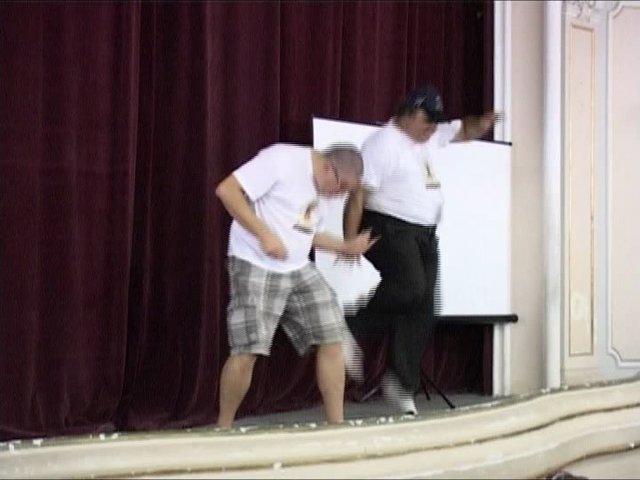
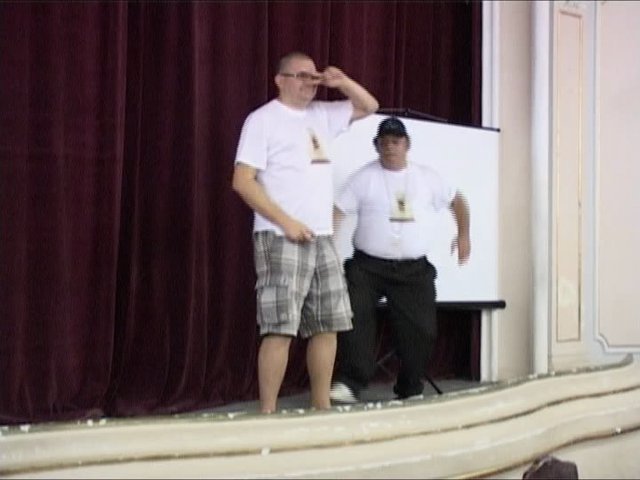
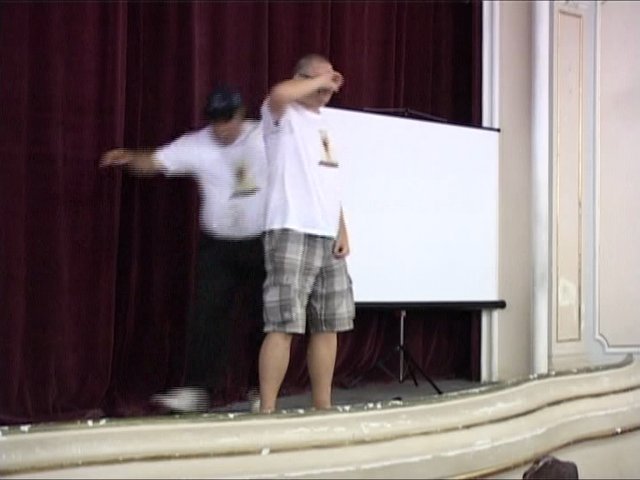
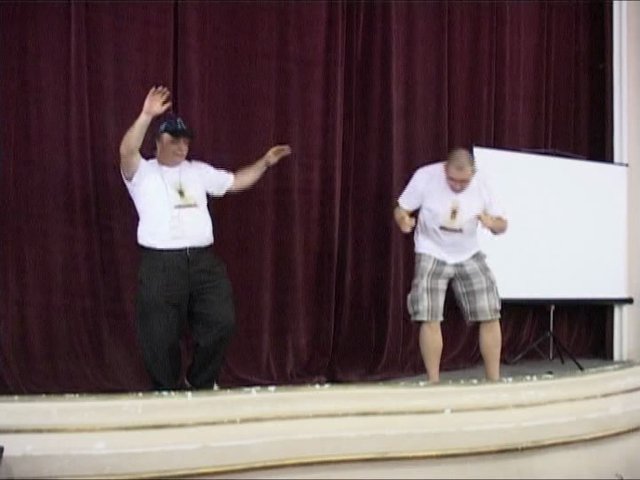
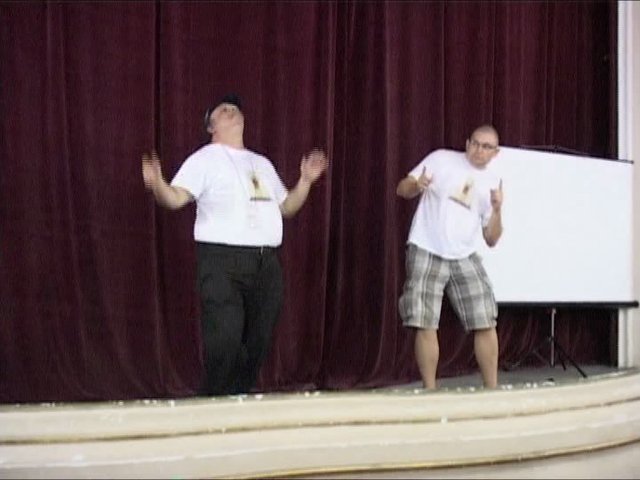
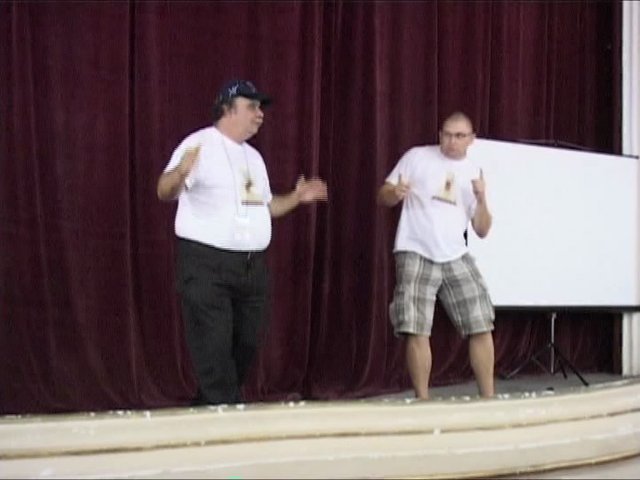
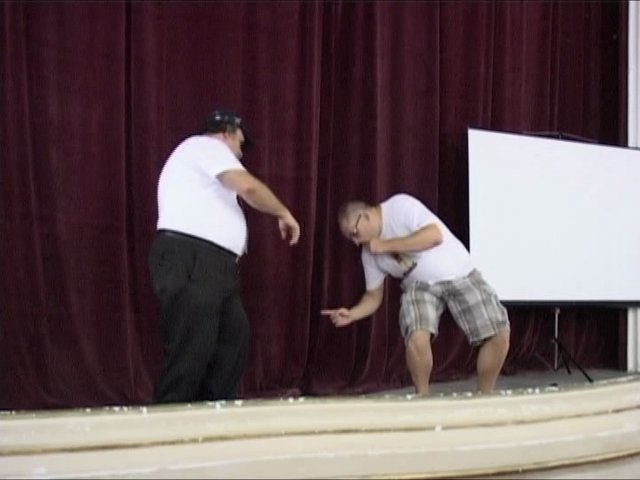
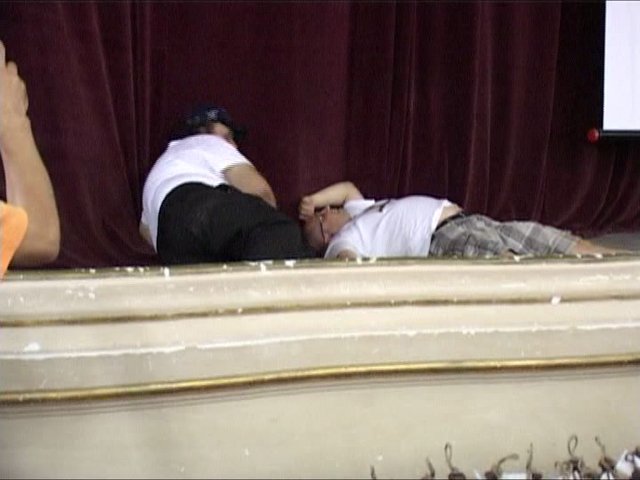
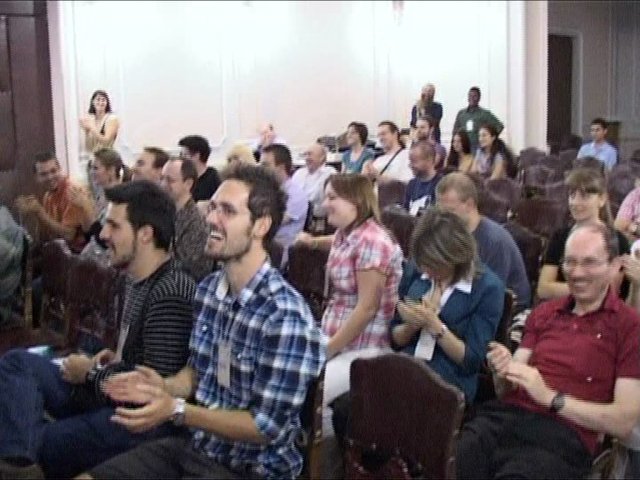
And photos by Bernd Brinkmann:
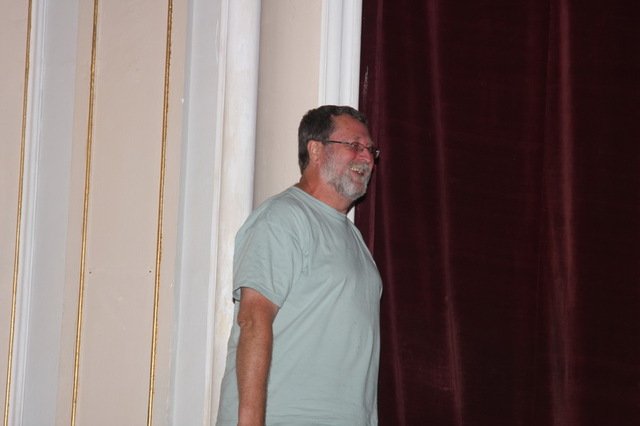
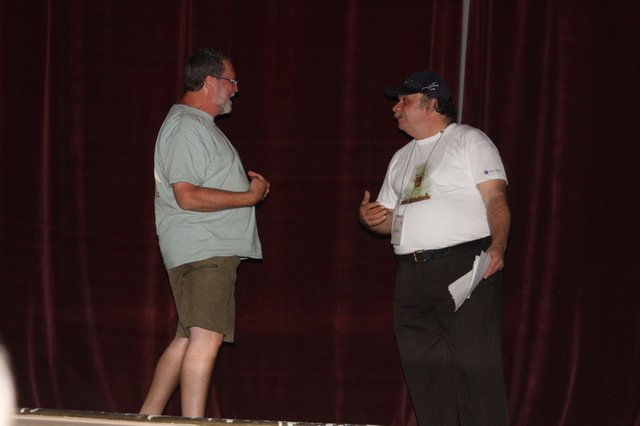
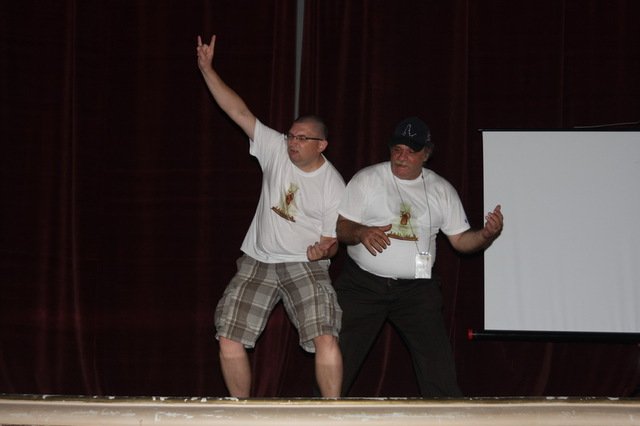
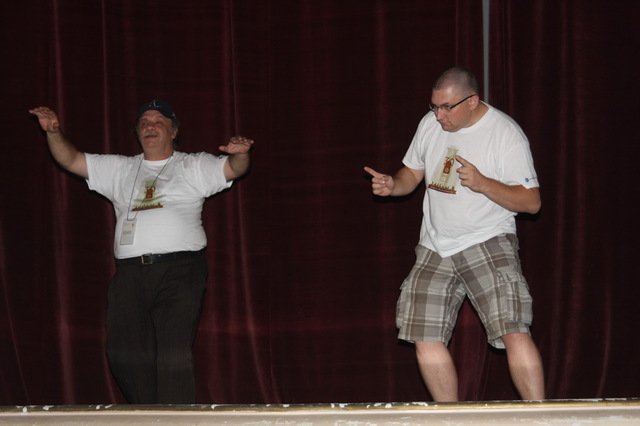
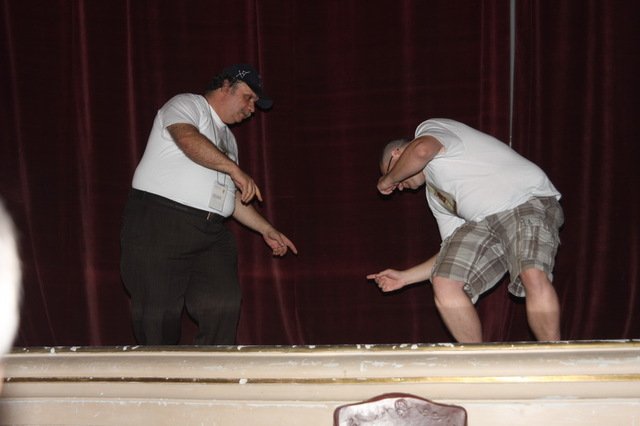
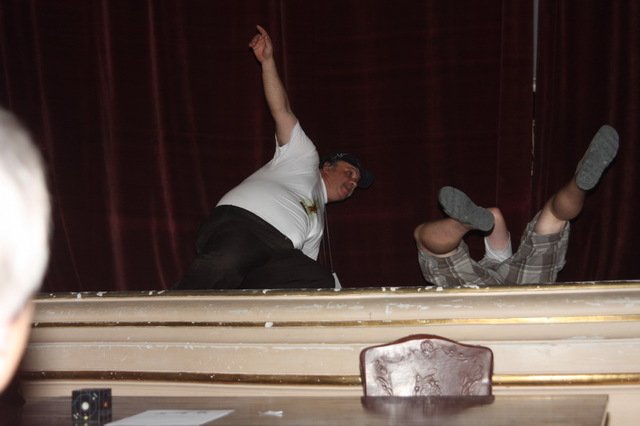
Two of the most expected acts were given by
two professional astronomers from the island of Ireland,
both working at the oldest Irish observatory.
Andrei Dorian Gheorghe made the following introduction for them:
“Miruna Popescu,
born in Romania,
with her home address in Republic of Ireland
and working at Armagh Observatory
in Northern Ireland…
UK,
and
the pride of Armagh Observatory and the International Meteor Organization,
David Asher!”
Video capture:
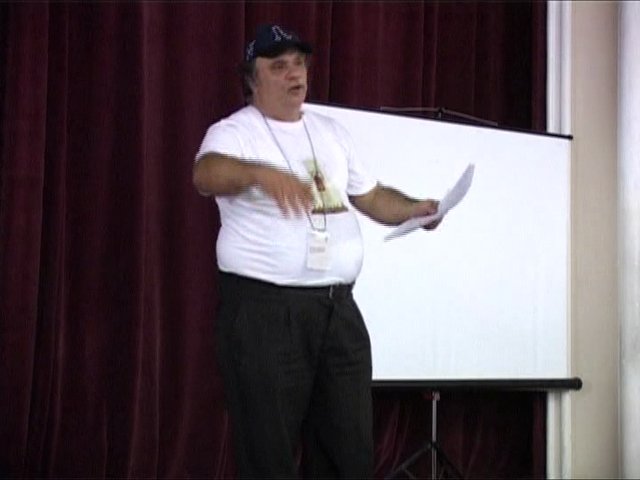
Miruna Popescu presented her creation, The Draconids, both
as an astro-art-poem and as a dramatic performance:
Video captures:
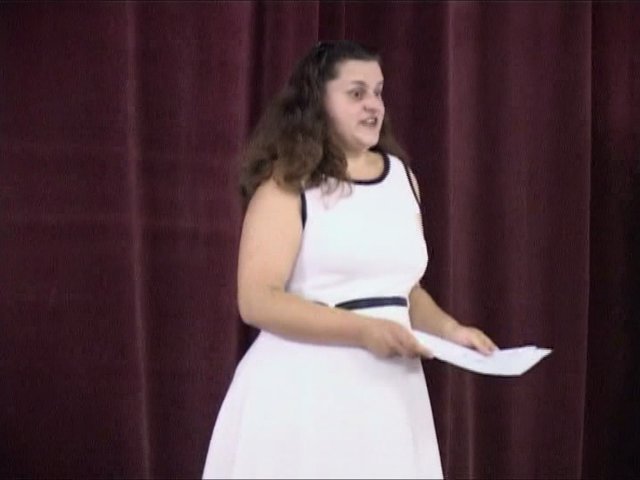
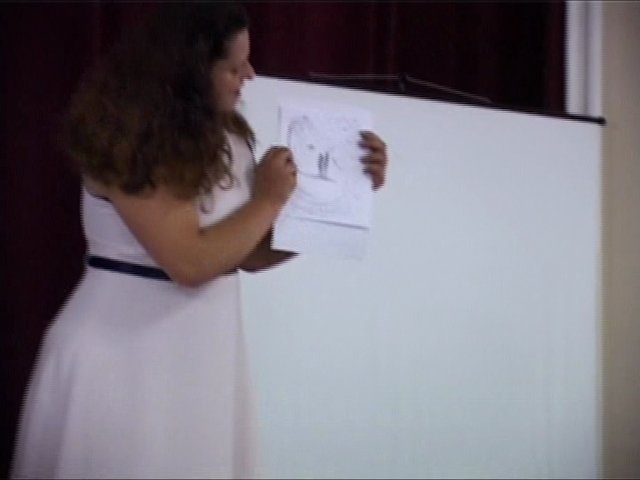
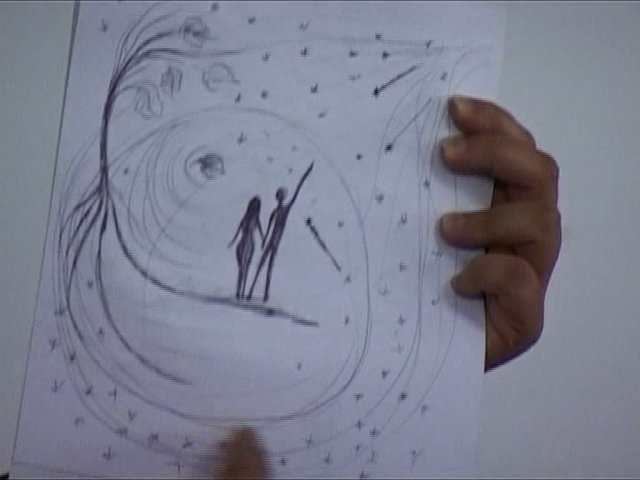
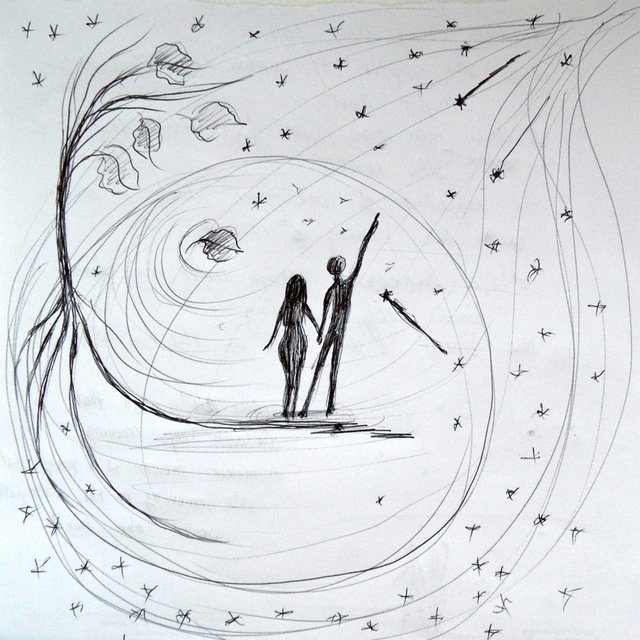
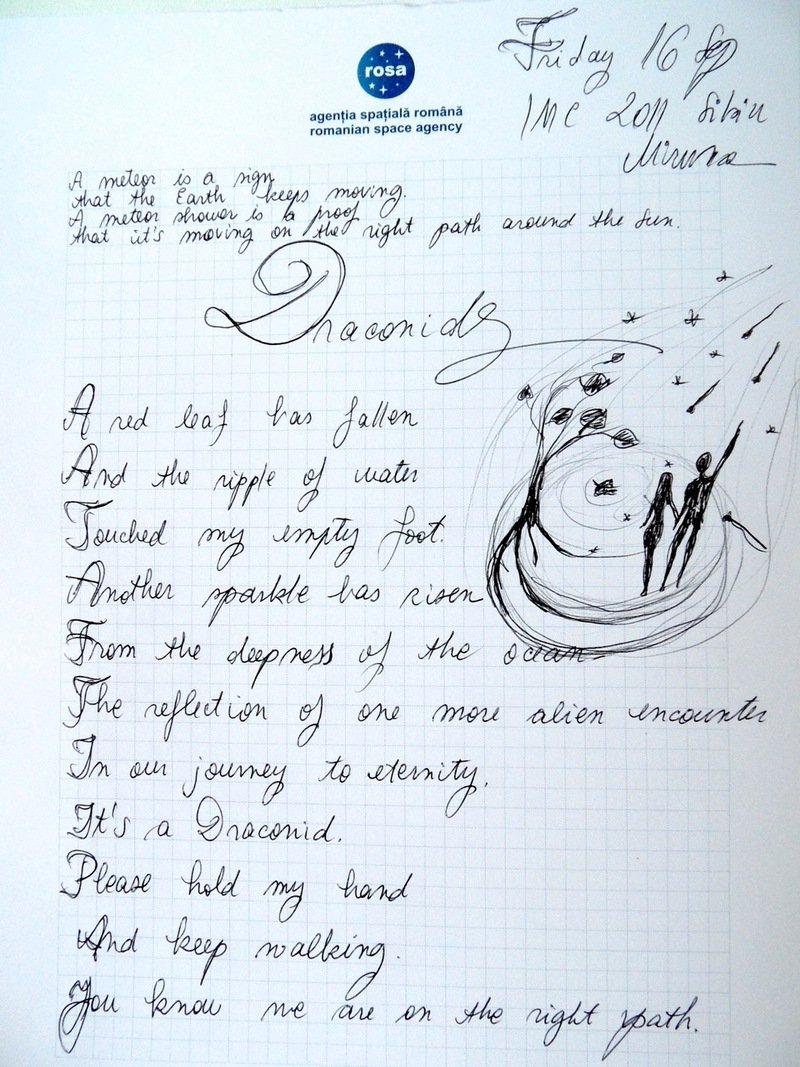
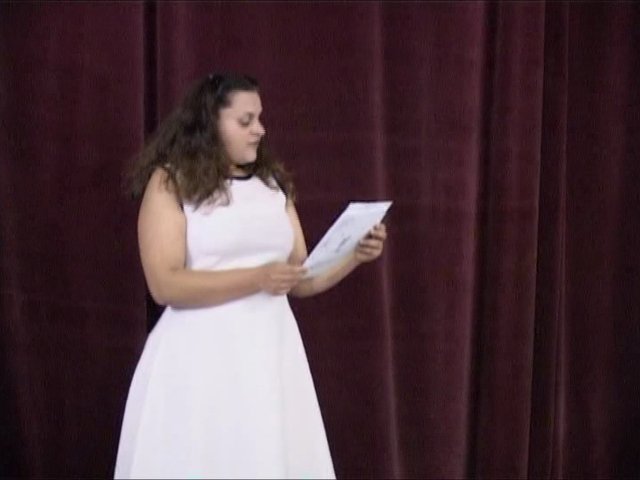
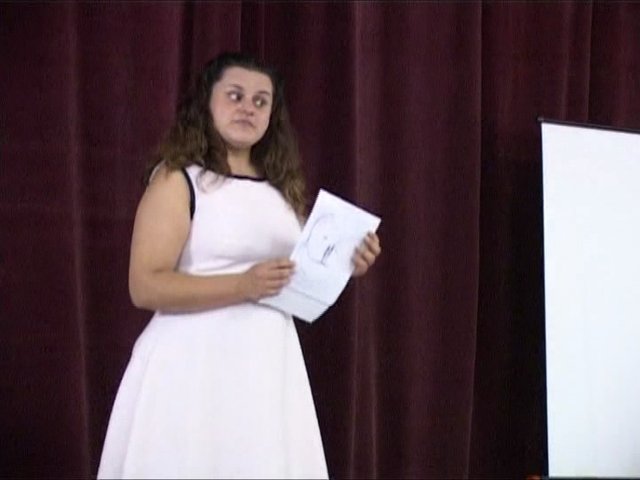
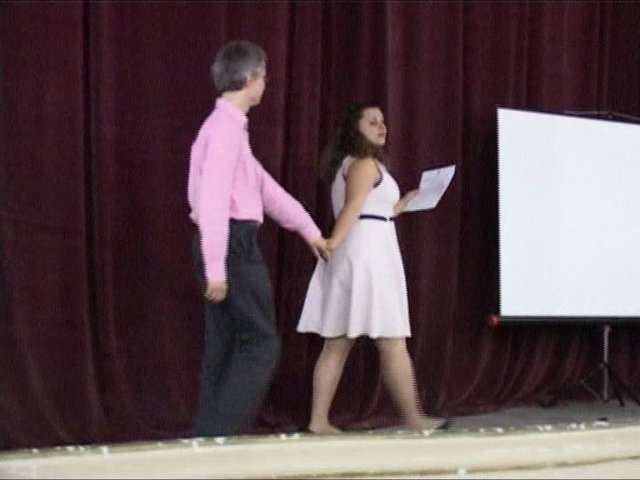
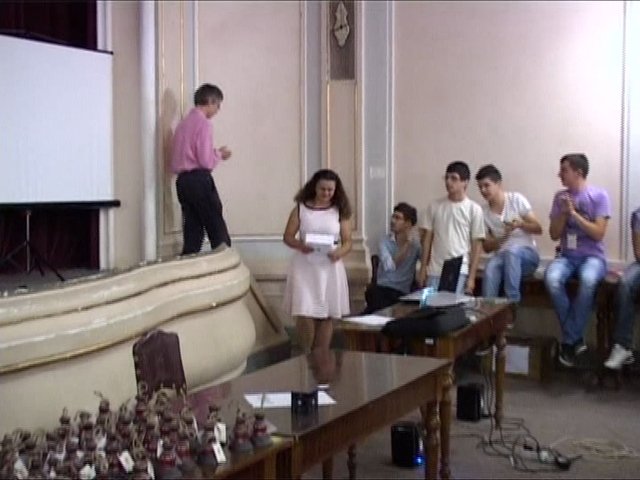
The famous scientist David Asher
gave an avant-garde presentation.
“I have happy memories from the previous Romanian IMC in 2000 at Pucioasa,
with the start of my career… my career of limerick writer, of course.” -
said him in the beginning.
He remembered how Andrei Dorian Gheorghe came to him and asked him
to write an astropoem, although Davis had never written a poem in his life.
So first he just smiled politely…
But now David, being in “the spiritual home of the Astropoetry Show” again,
thought of something special, even different:
“So especially for the “Romanian” IMC Astropoetry Show I want to give a lecture!”
It is to note that David had already prepared a sketch-projection for this “lecture”,
in which the first four pages were just:
“Page 1: Astropoetry
Page 2: Astropoetry.
Page 3: Astropoetry..
Page 4: Astropoetry… “
Then he gave a short “conventional lecture” about limericks,
for which, in the case of Sibiu, the end of this name read with an accent on “iu”
has more potential for rhymes.
And certainly, working at Armagh Observatory, he can use meteor reports
as technical inspiration for meteor limericks.
Video Captures:
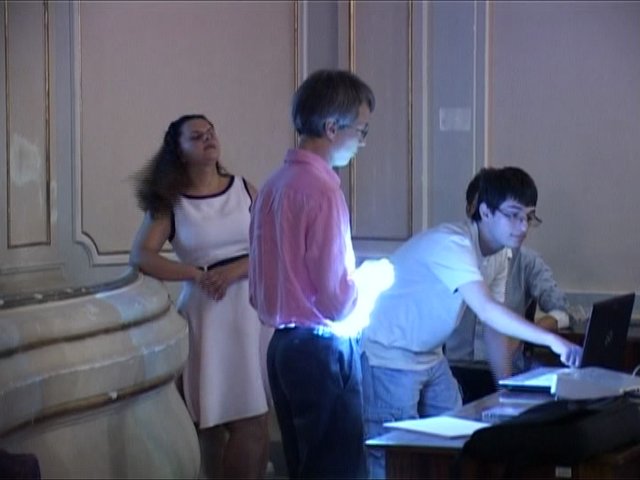
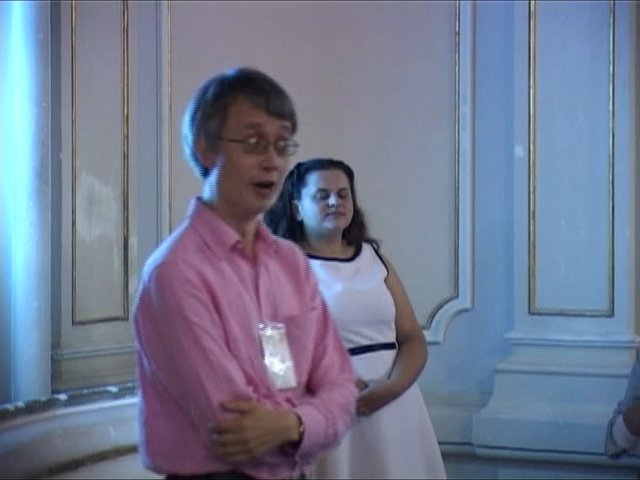
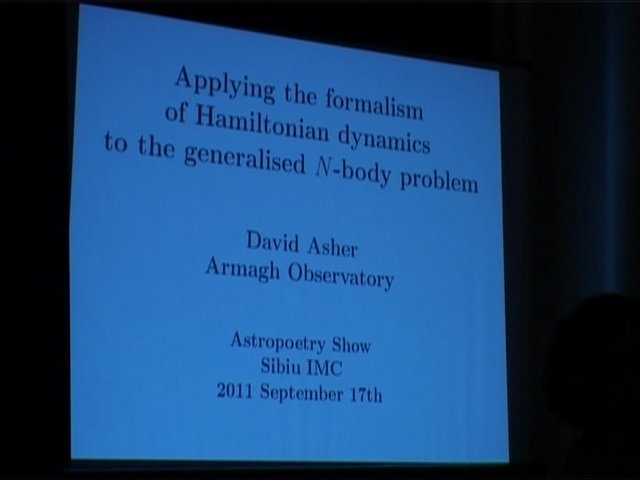
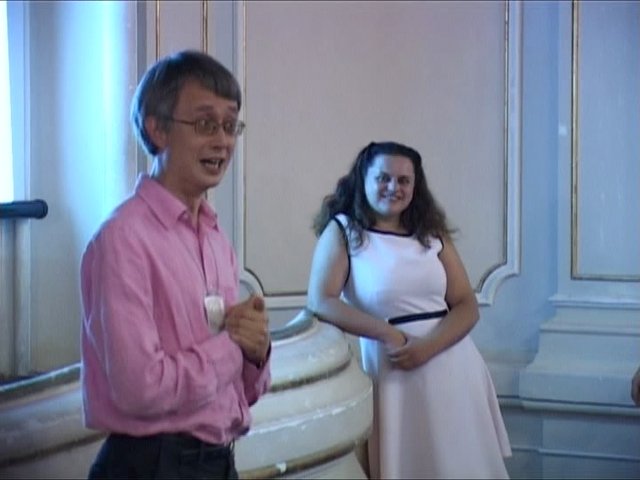
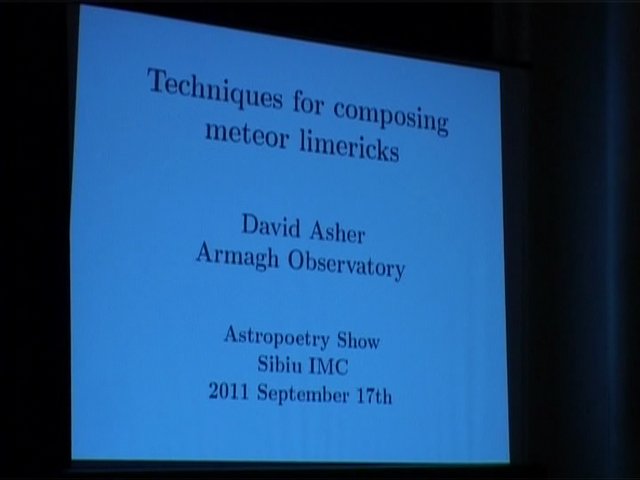
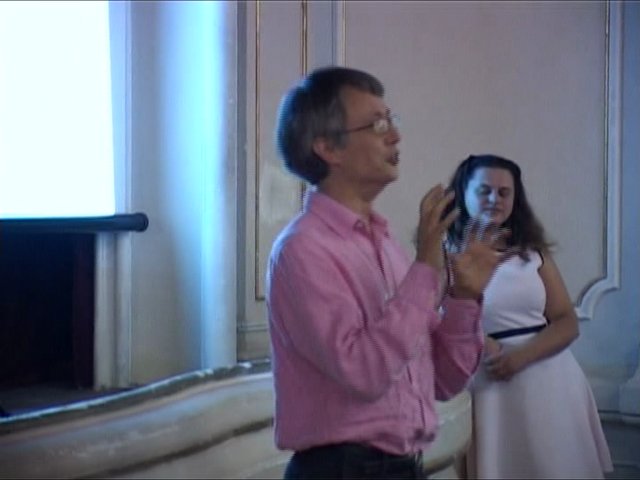
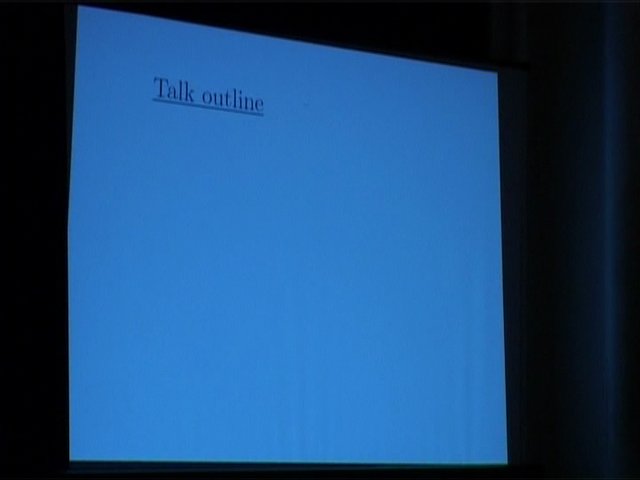
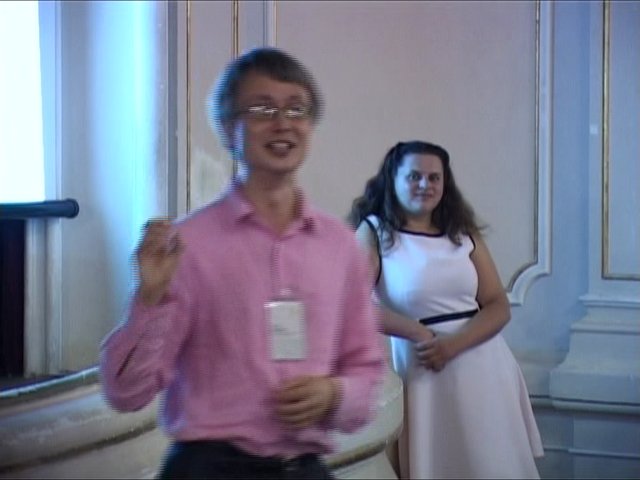
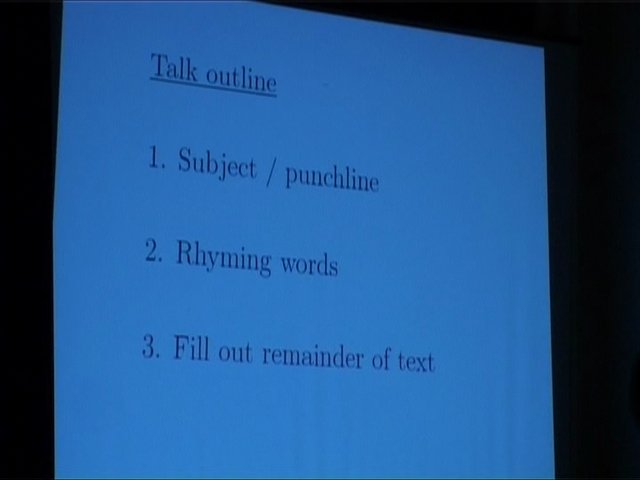
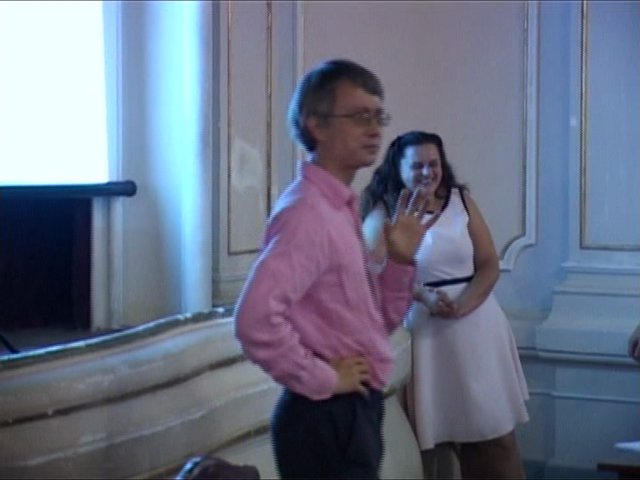
Obviously, David ended his “lecture” with a new limerick:
“The Astroshow held in Sibiu
Featured most of the friends that I knew
But the poems they were bringing,
Their jokes and their singing
Didn't finish till quarter past two.”
(David Asher)
Video captures:
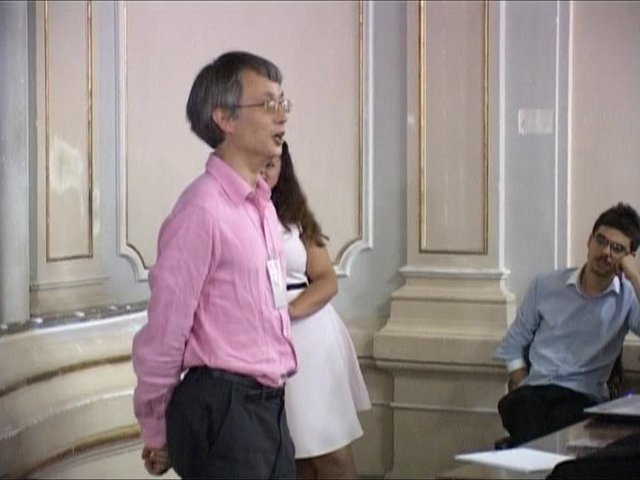
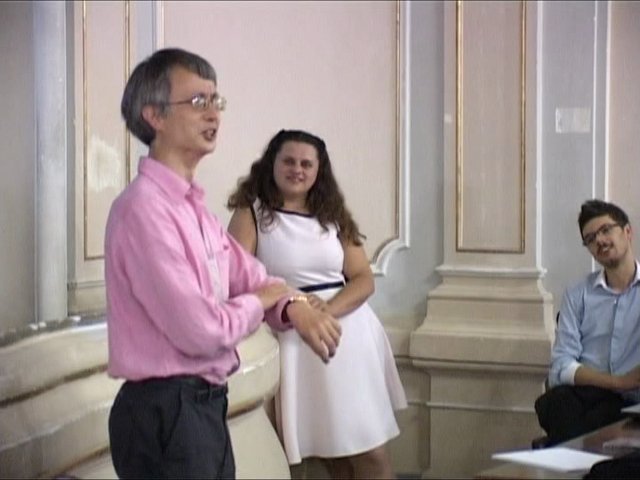
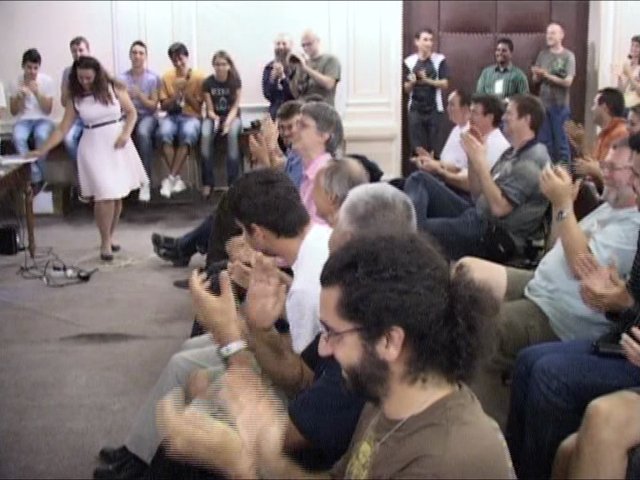
And photos (from the Irish acts) by Bernd Brinkmann (1-4, 6),
Francisco Ocana (5), Valentin Grigore (7):
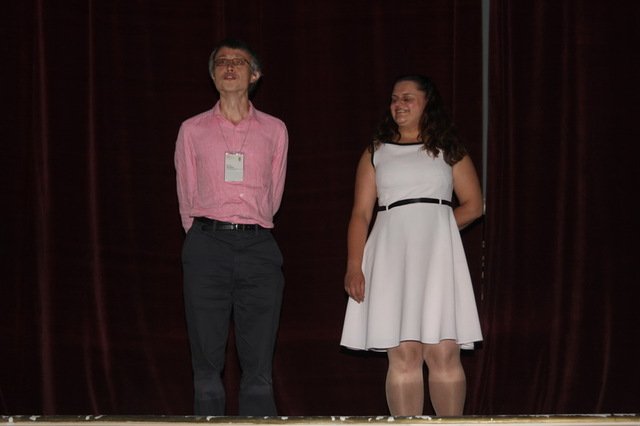
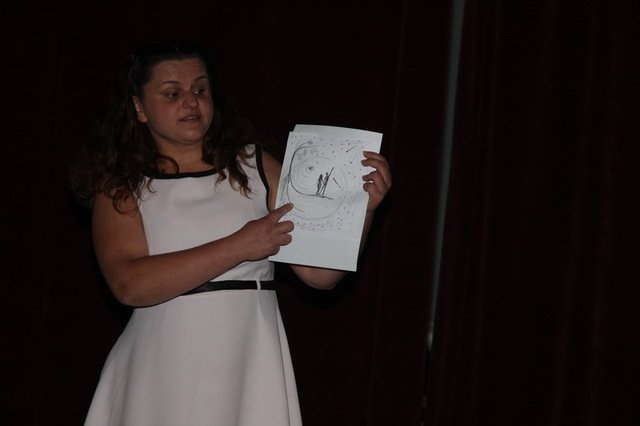
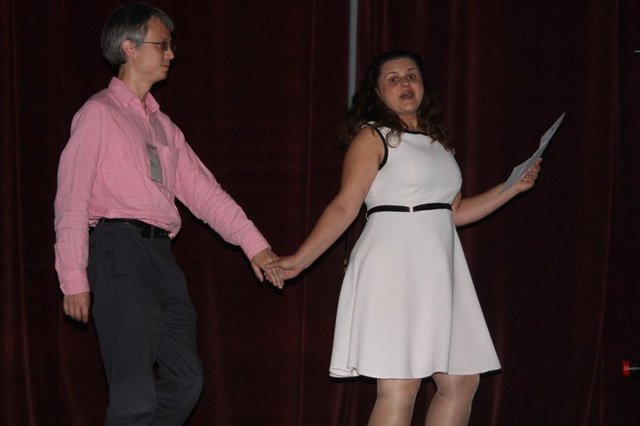
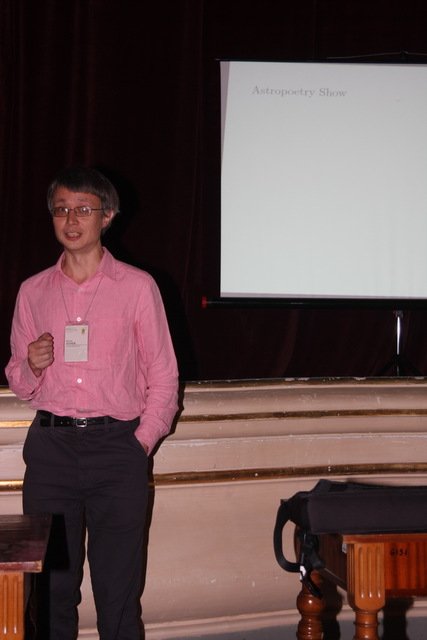
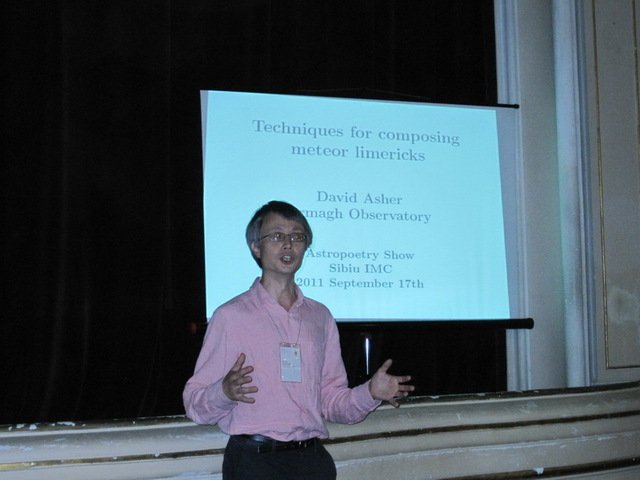
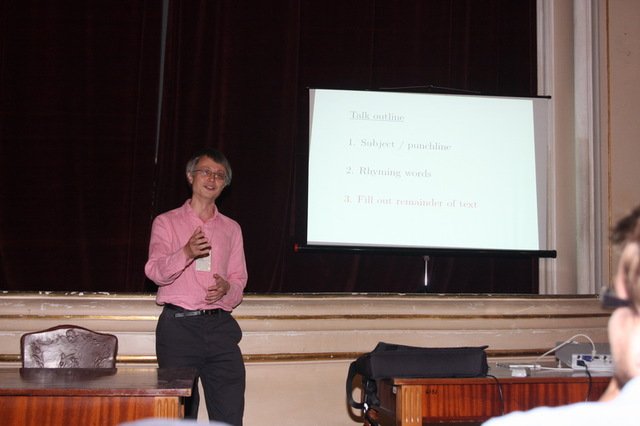
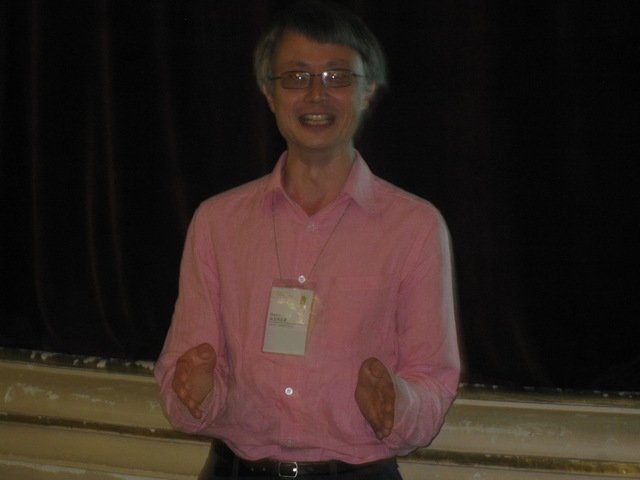
Another fine cultural moment followed:
Pavel Zigo (Slovakia) and Nagatoshi Nogami (on stage again)
sang in alternation, in Slovak and in Japanese,
a sensible Slovak song about friendship.
Video captures:
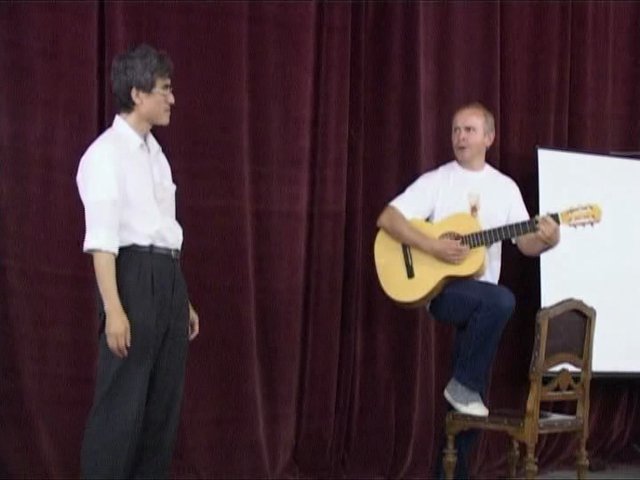
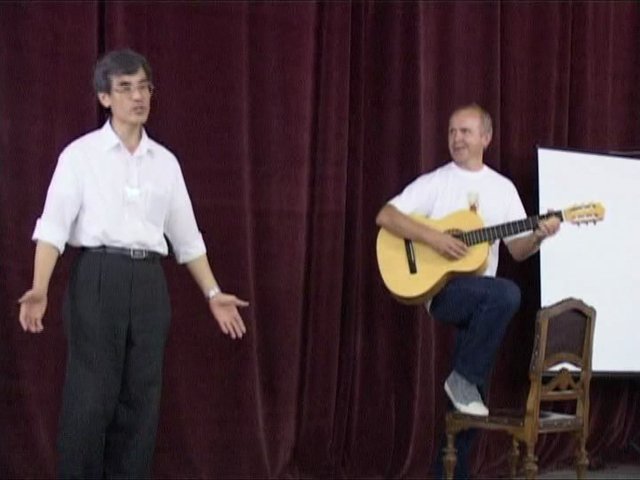
And photos by Casper ter Kule (1),
Bernd Brinkmann (2, 4), Valentin Grigore (3):
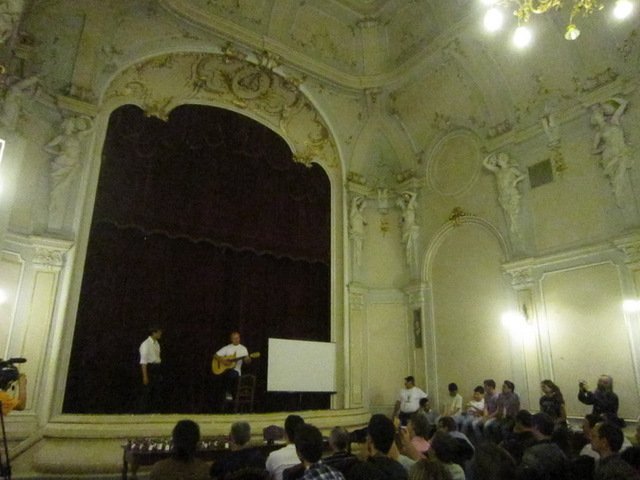
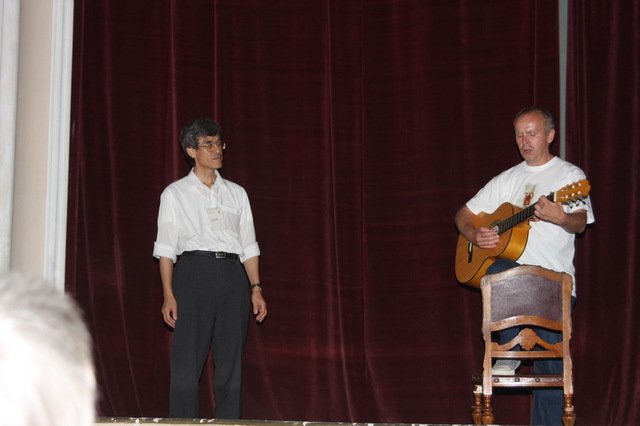
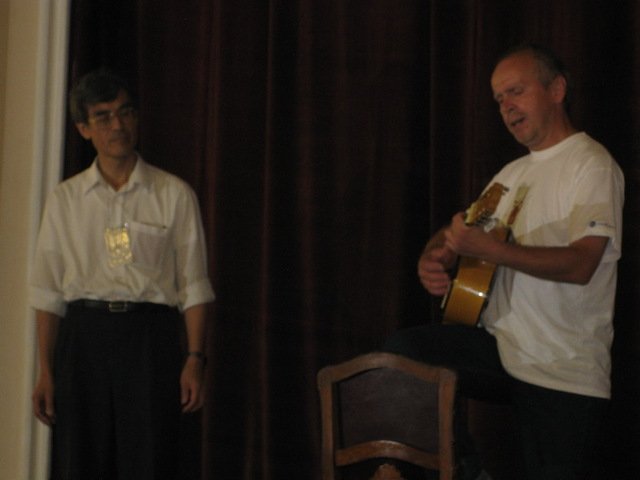
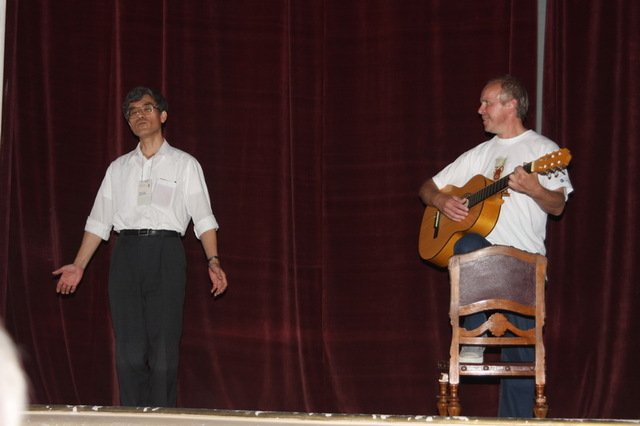
After them, an astropoetic sketch by Andrei Dorian Gheorghe,
in which the author was Common Meteor Observer,
Alexandru Sebastian Grigore and Cristian Daniel Grigore were Meteor Brothers,
and Przemyslaw Zoladek (Poland) was Drunken Meteor Observer.
“METEOR BROTHERS
Common Observer:
In history there were a lot of famous brothers:
Almann Brothers in rock music,
Kesler Sisters in entertainment,
Jackson Five in dance music,
Kennedy Brothers in politics.
But now we have to know…
METEOR BROTHERS!
Drunken Observer:
METEOR BROTHERS, BROTHERS, BROTHERS… .
Meteor Brother 1:
In fact, we shine stronger than the planet Venus.
Thus,
you have to revise your attitude
about us.
Meteor Brother 2:
Yes indeed, the canopy of heaven is too small for
our flames,
so please think about changing
our names.
Common Observer:
It’s true,
they shine stronger than the others
so we have to name them…
FIREBALL BROTHERS!
Drunken Observer:
FIREBALL BROTHERS, FIREBALL, FIREBALL!”
Video captures:
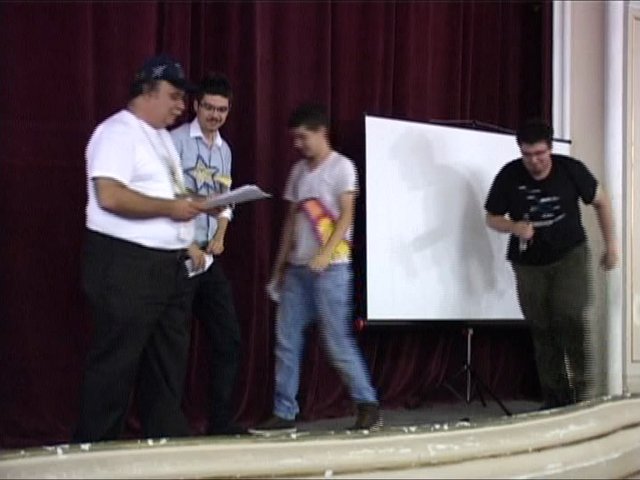
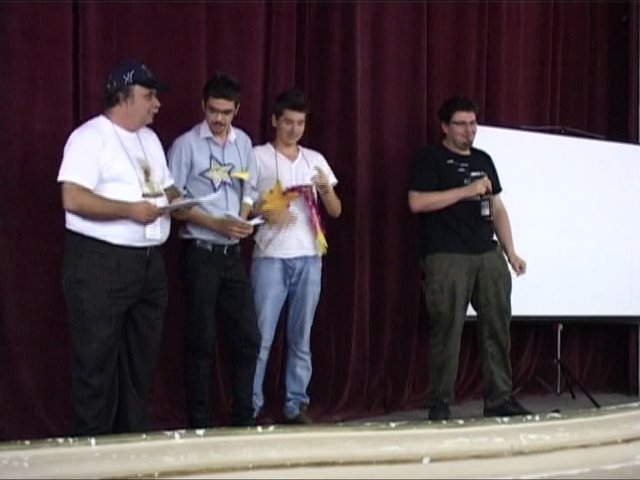
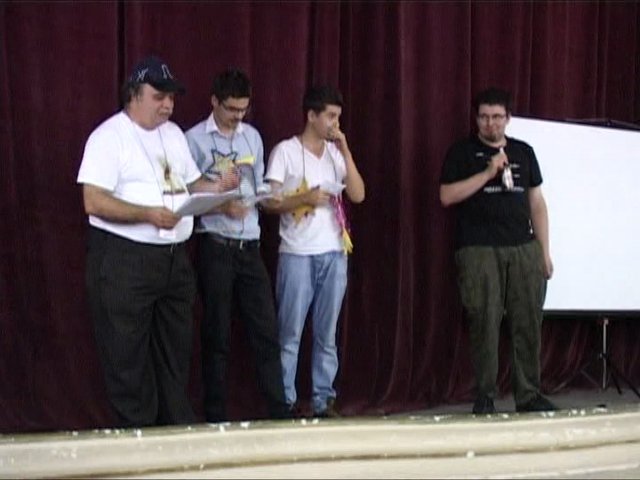
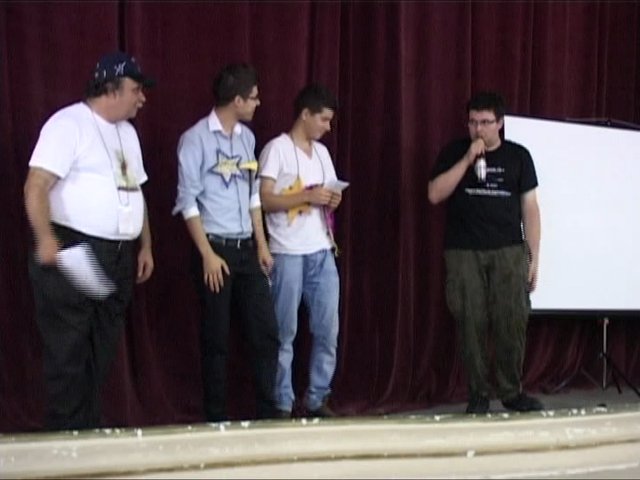
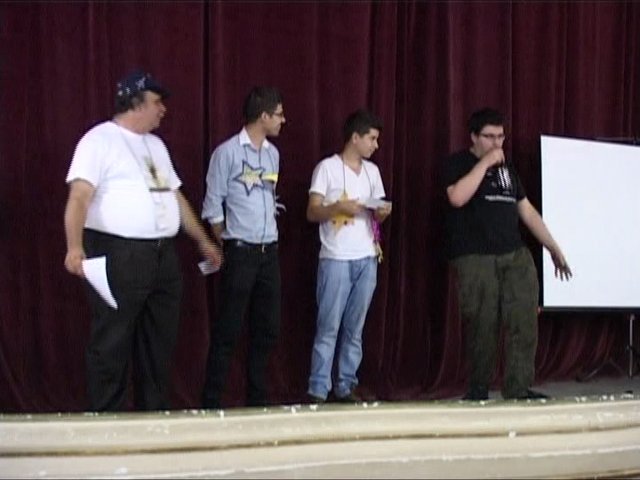
And photos by Bernd Brinkmann:
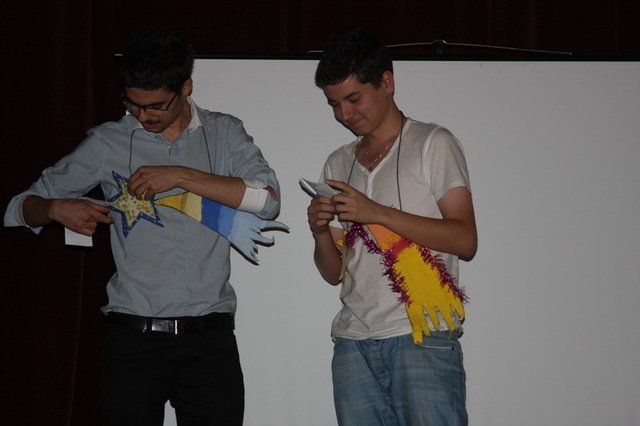
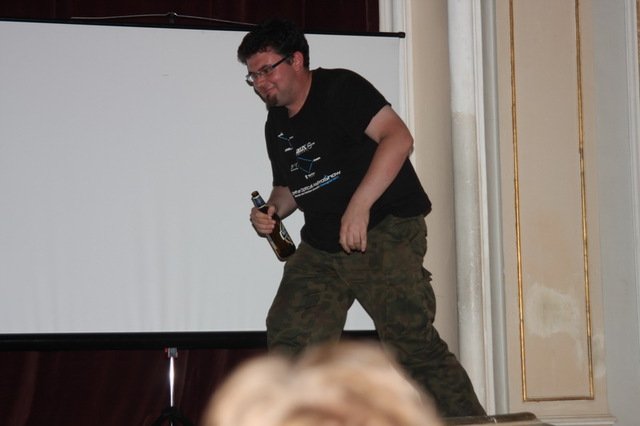
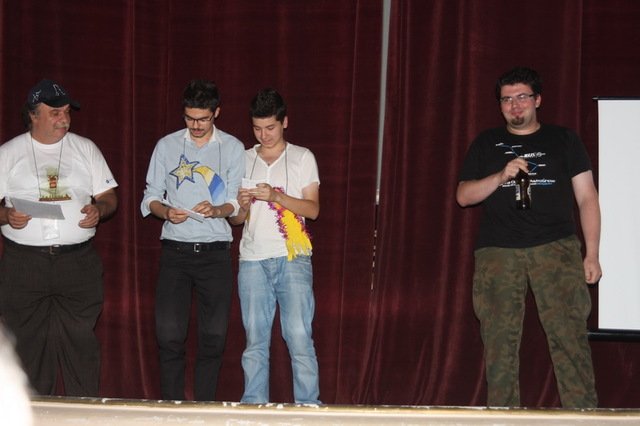
Andrei Dorian Gheorghe’s oldest fellow in creating
the Romanian astropoetry movement (since the 1980s,
which were difficult years of dictatorship in Romania),
Victor Chifelea,
presented an astropoem:
“METEORS’ MYTH
In scattered groups, sometimes solitary,
they scrutinize the sky eager for finding
a sense of their own existence.
From far away,
those bored ramblers seem to waste time,
moving with no purpose.
They are like bumble bees of the sky
involved in a majestic dance
with rules known only by themselves.
In time, the existential monotony
makes them dive from the above
becoming photonic lancers.
Fluttering the wax wings
Icarus observes the agony
of those wannabe stars of the moment
and, sensing the pain of the kamikaze flyers,
he leaves the fire and the light path
thinking that salvation must be somewhere else.”
(Victor Chifelea)
Video captures:
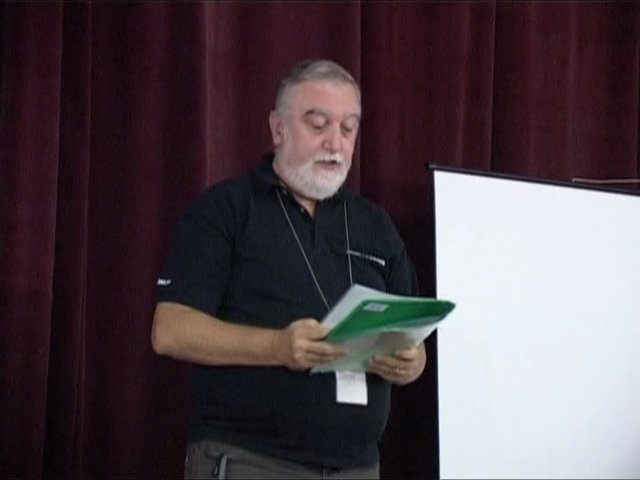
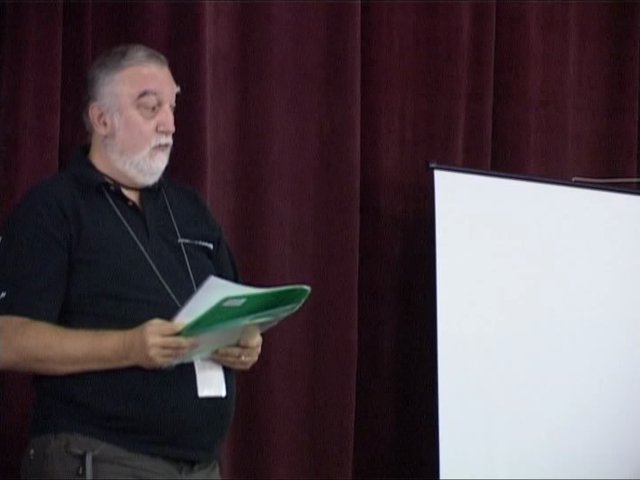
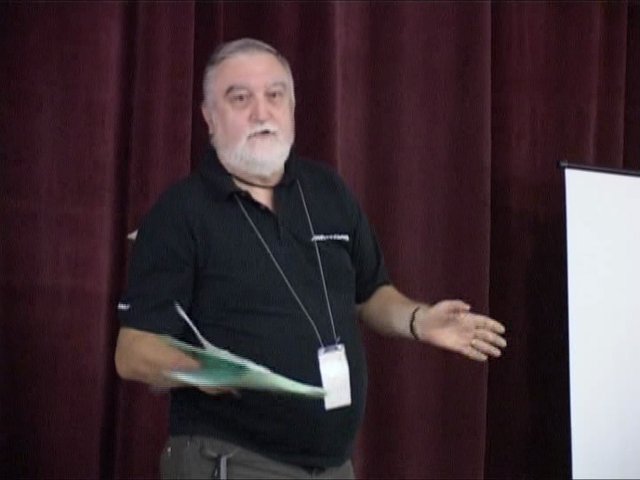
And photos by Valentin Grigore and Bernd Brinkmann:
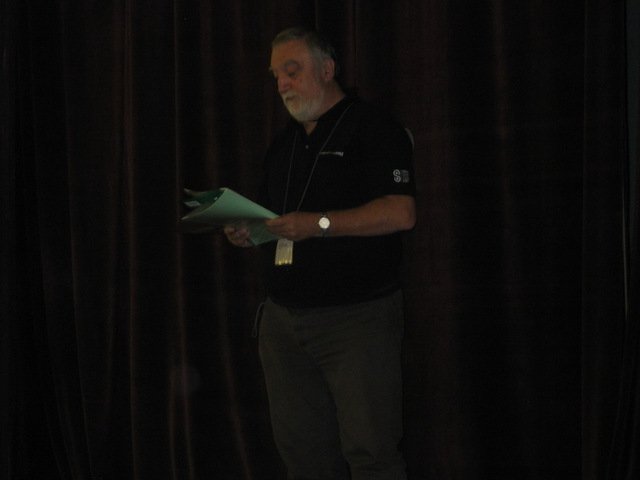
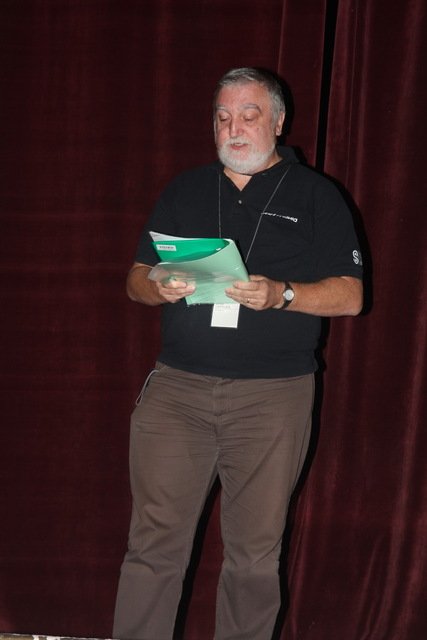
Then Andrei Dorian Gheorghe conceived another choreographic act
on another song by Laura Veirs, called Galaxies (also from Year of Meteors),
translated as for the bidimensional visual space
and independent from the real position of the deep sky objects,
in which he was a Joyous Meteor
and Nastassia Smeets (Belgium) was the Sunflower Galaxy,
Andra Maria Sora (Romania) was the Black Eye Galaxy
and Elise Ijland (Holland) was the Andromeda Galaxy.
Video captures:
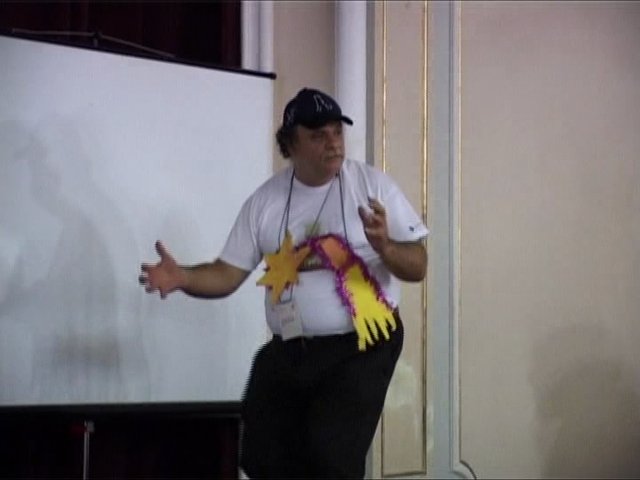
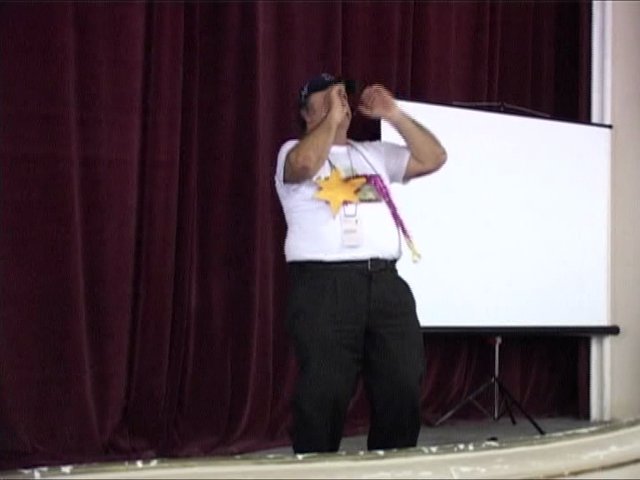
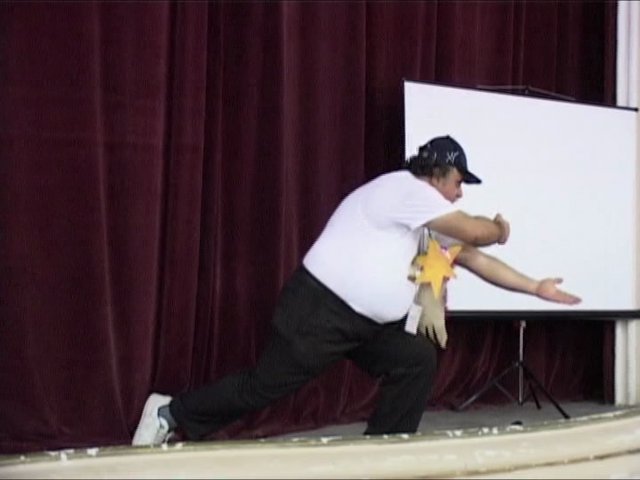
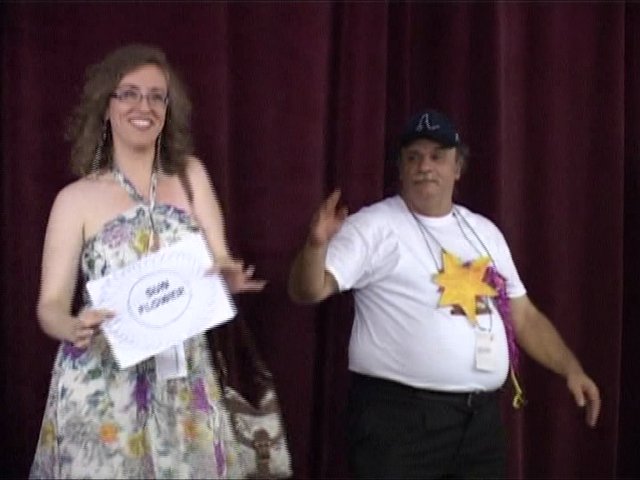
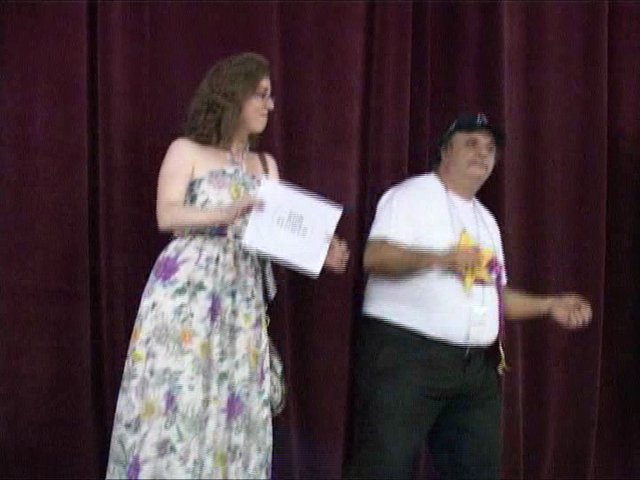
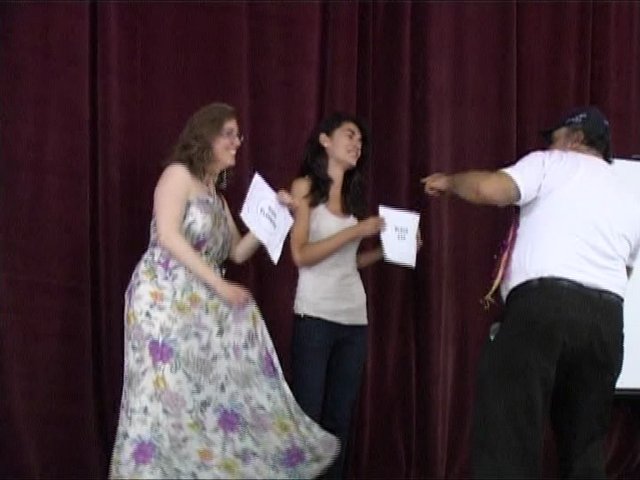
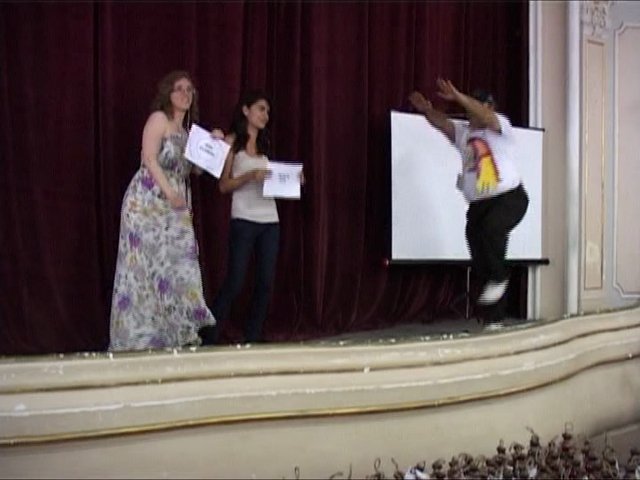
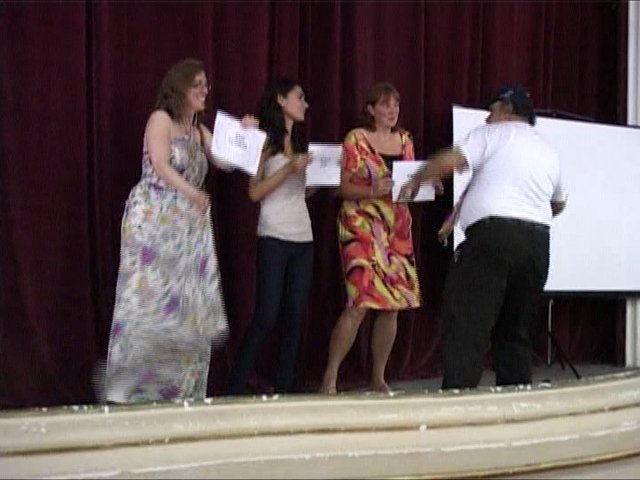
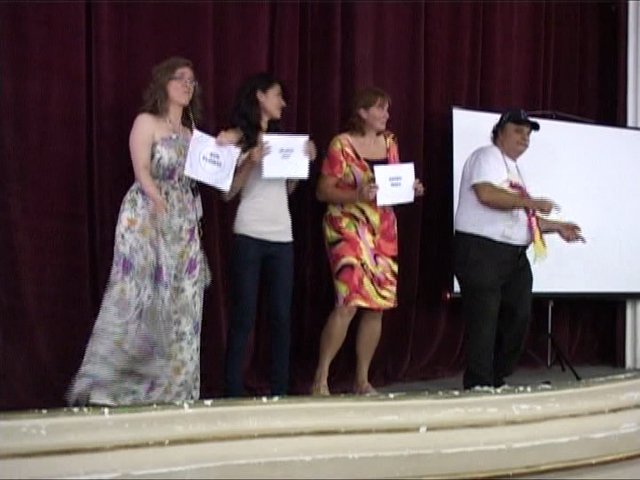
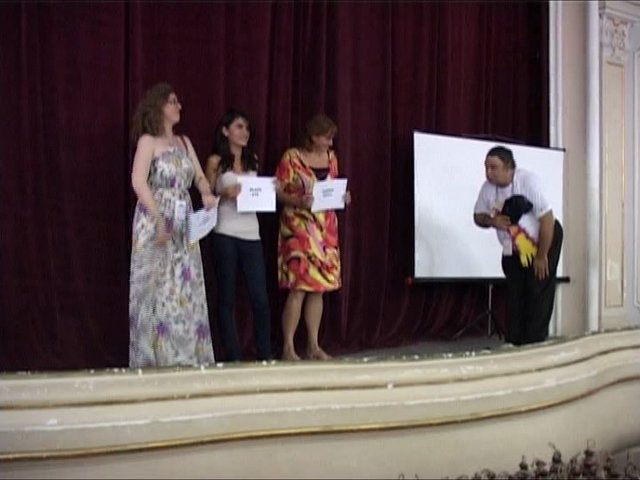
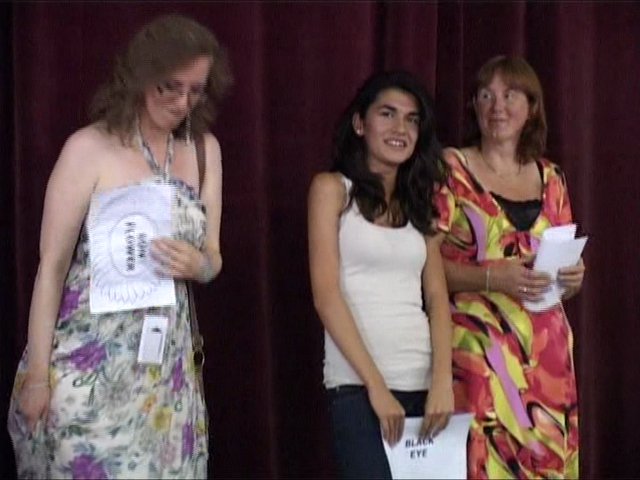
And photos by Bernd Brinkmann:
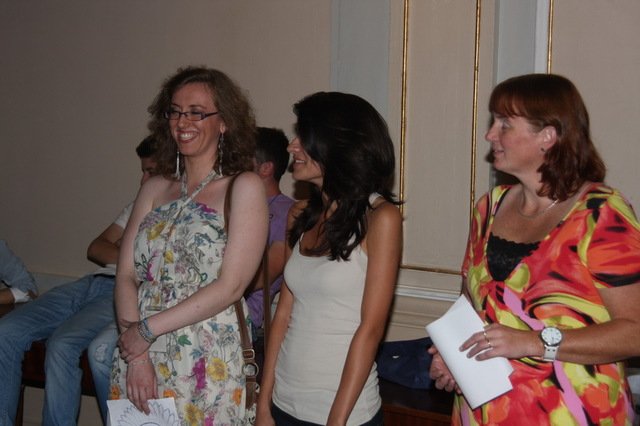
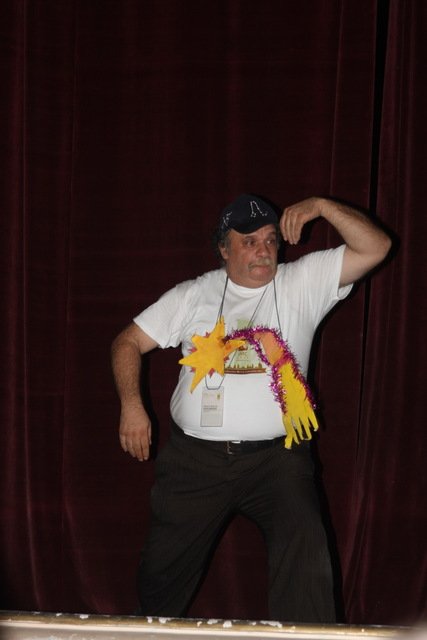
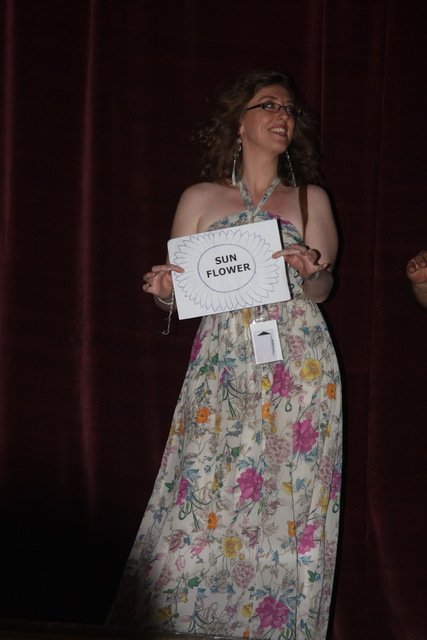
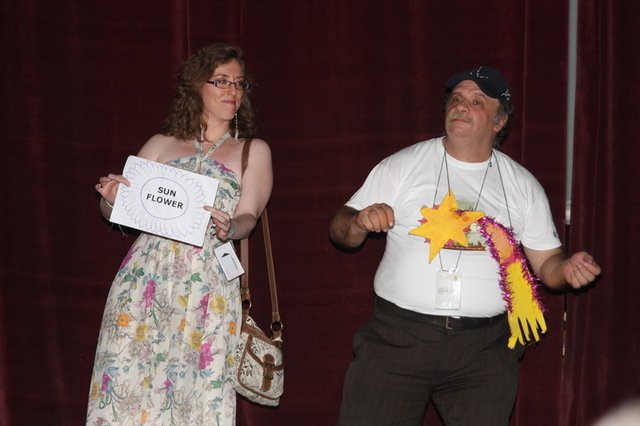
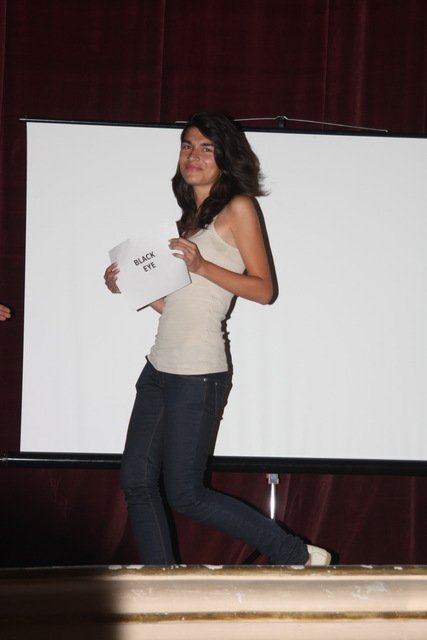
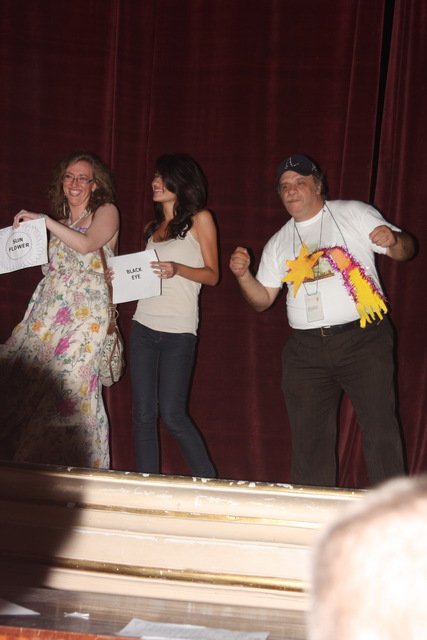
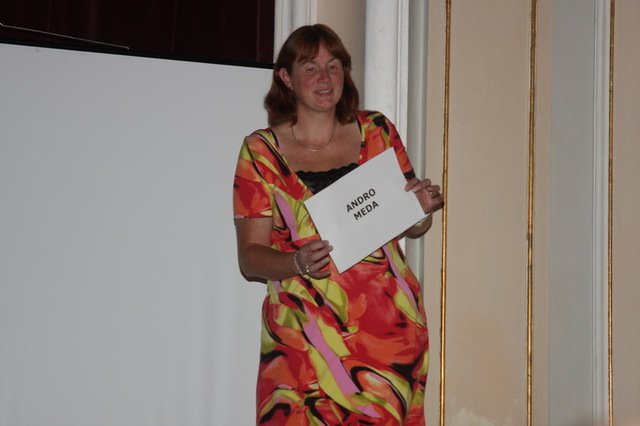
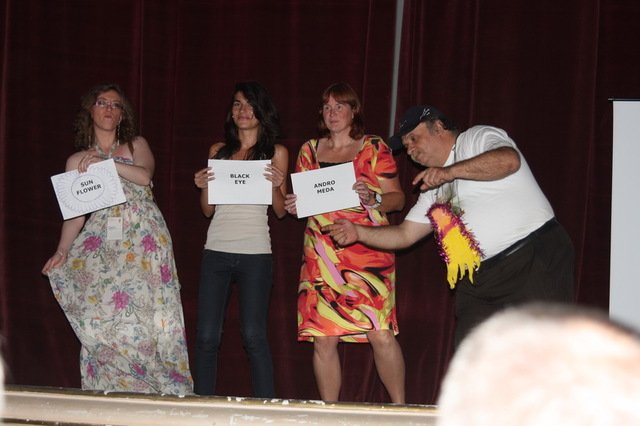
The first IMC participant from Republic of Moldova,
Maxim Matvei, read an astropoem:
“EVERY MOMENT IS A CHANCE
Some times we make it,
Some times we don't.
A night may be an accomplishment,
And the next one a missed opportunity.
The meteors are like stars on the sky,
The present is turned into past,
While the light is travelling through space.
A meteor - a piece of the beginning.
Where does it go?
When did it appear?
What's its faith?
Questions...
And every moment is a chance
to find out the answer.
Meteors, flying along with other meteors,
Are moving like actors,
We follow their speed, their path
Through gathering of all the sights on earth.”
(Maxim Matvei)
Video capture:
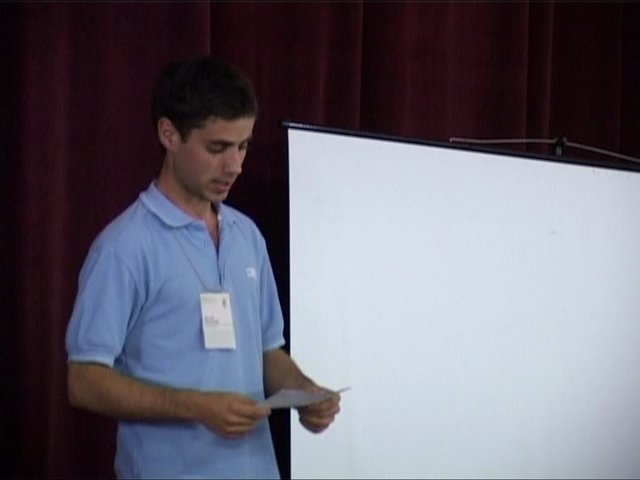
And a photo by Bernd Brinkmann:
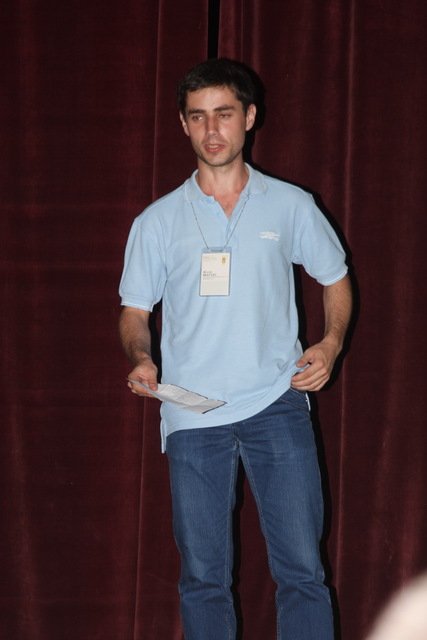
One of the best Romanian astrophotographers,
Radu Gherase, also read an astropoem:
“THE METEOR
A heavenly arrow of light
Cuts like a knife through the darkness of space,
Surprises the sky watcher's sight
And sparks the hope and a smile on his face.”
(Radu Gherase)
Video capture:
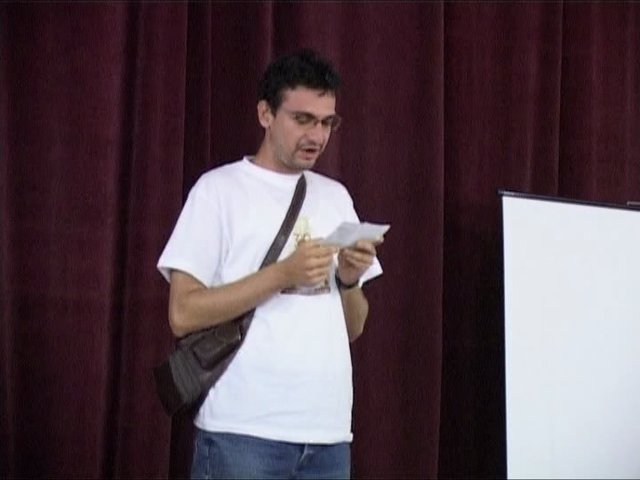
And a photo by Bernd Brinkmann:
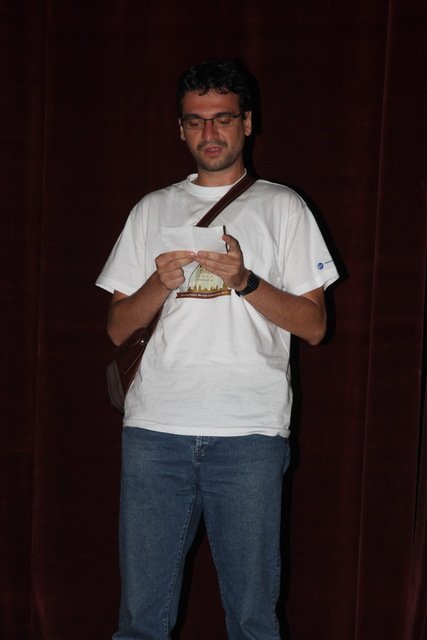
Born in Venezuela and established in Spain,
Antonio Martinez Picar gave and impressive recital of percussion
entitled Meteoritic Rain on the Moon 3.
Video capture:
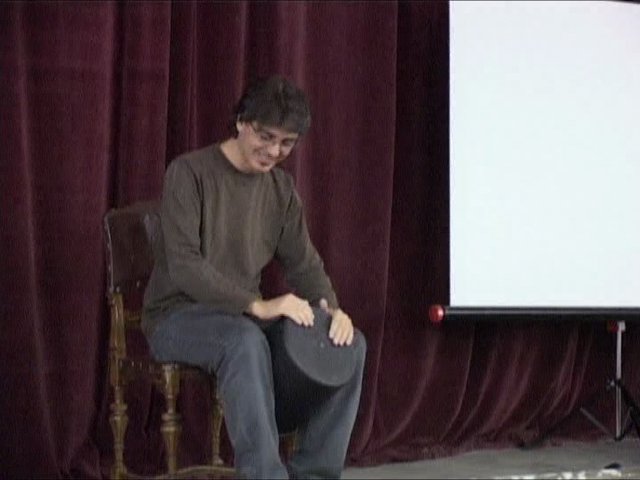
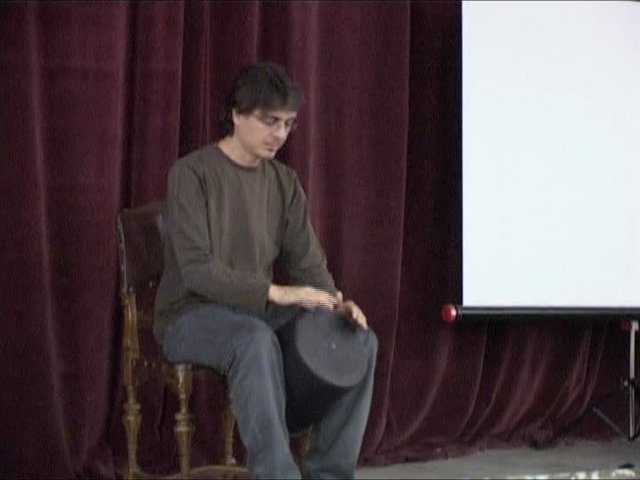
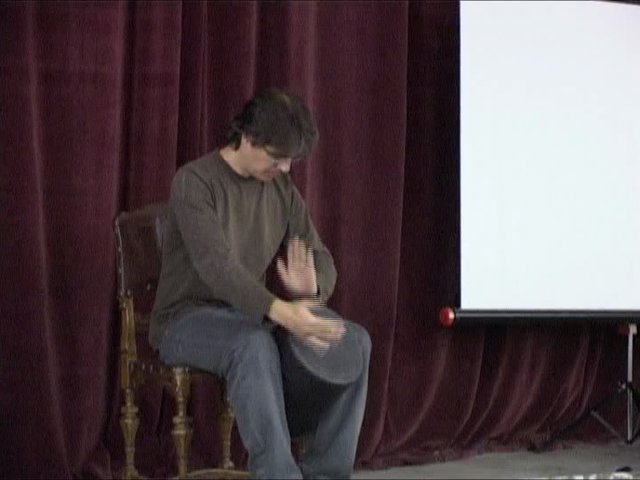
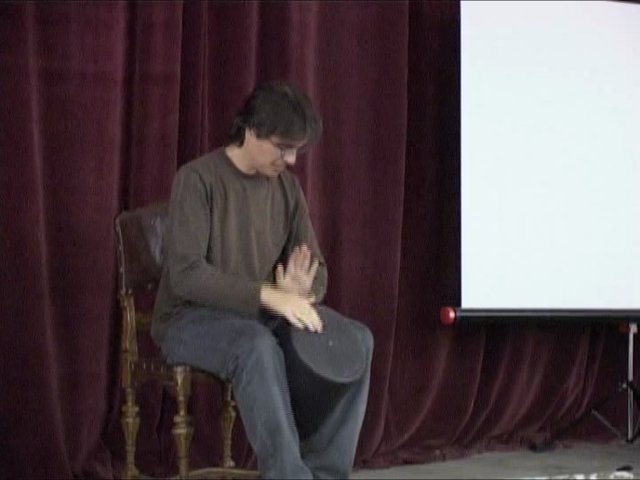
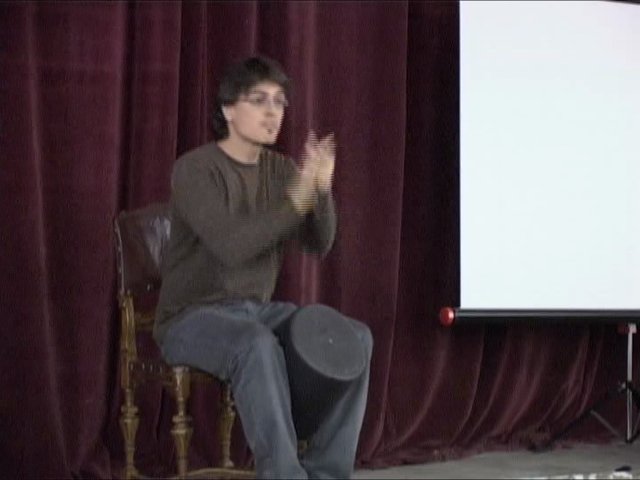
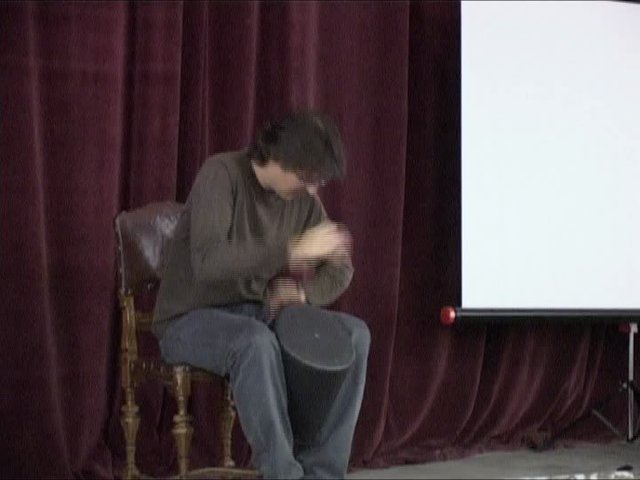
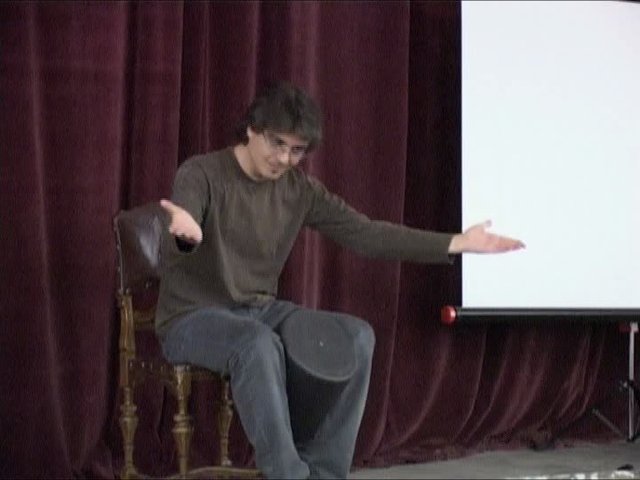
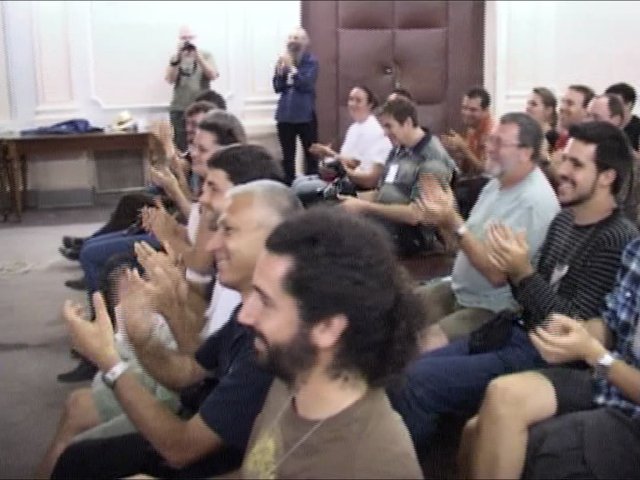
And photos by Bernd Brinkmann (1, 2, 4, 5) and Valentin Grigore (3):
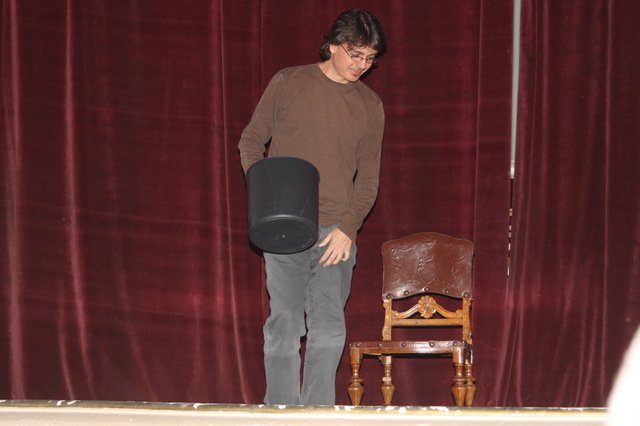
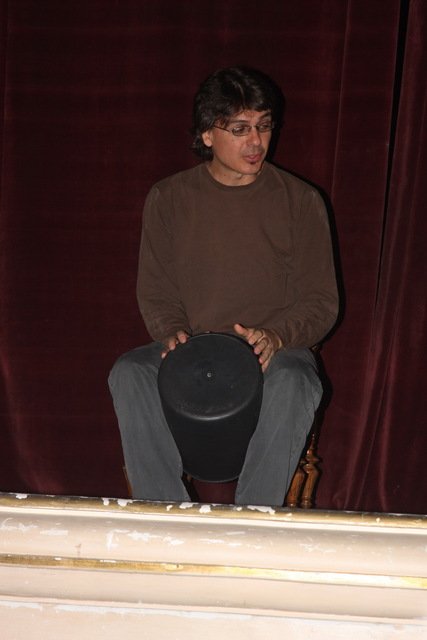
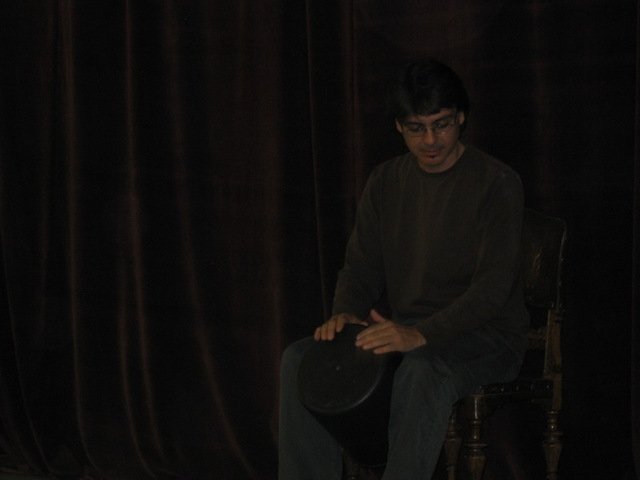
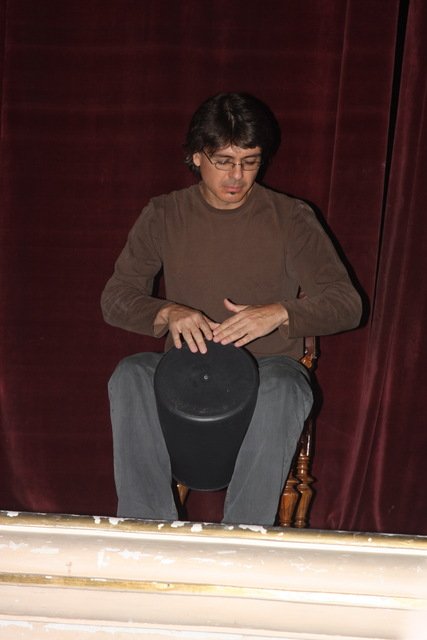
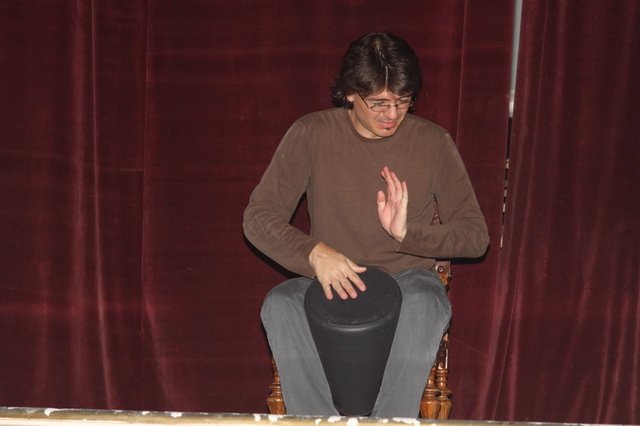
An expert in asteroids and also a man whose name was given
by the International Astronomical Union to an asteroid,
Mirel Birlan (born in Romania and established in France) from Paris Observatory
gave a poetic speech.
“It’s for the first time that I attended the IMC
and I’m proud that science is not only “serious”
or… let’s say “no funny science.”
David Asher showed us a brilliant talk about how we can do science by astropoetry,
and Andrei Dorian Gheorghe is a very, very good director…
because the Astropoetry Show is brilliant!!!!
But I don’t know why asteroids are on the scene.
They are not as brilliant as the meteors.
My hero, the asteroid, is boring.
He is alone and has an inclined orbit…
he does not run!
My asteroid is alone.
I have a big family!”
Video captures:
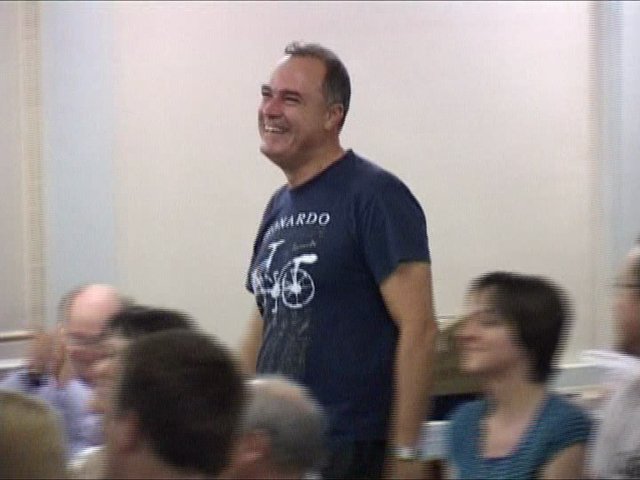
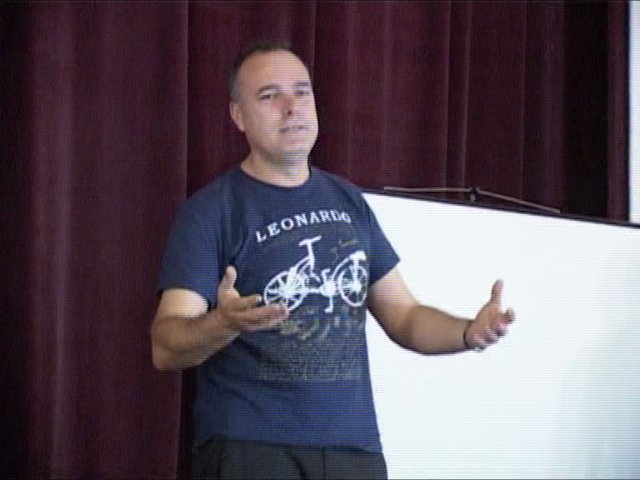
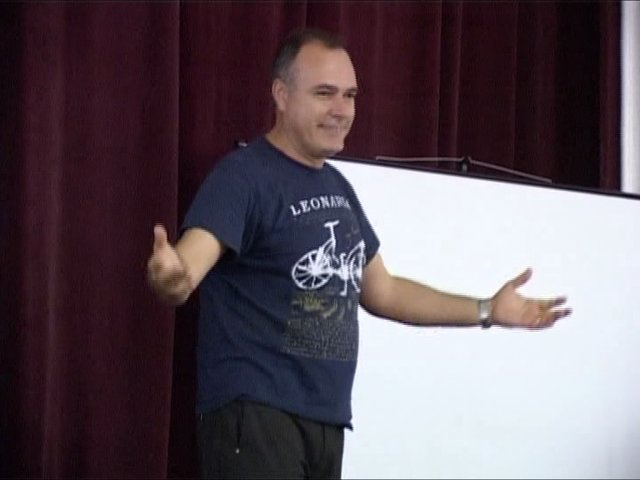
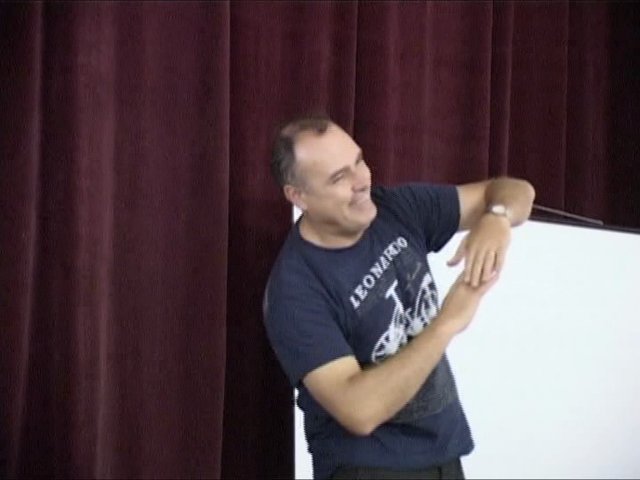
And photos by Valentin Grigore and Bernd Brinkmann:
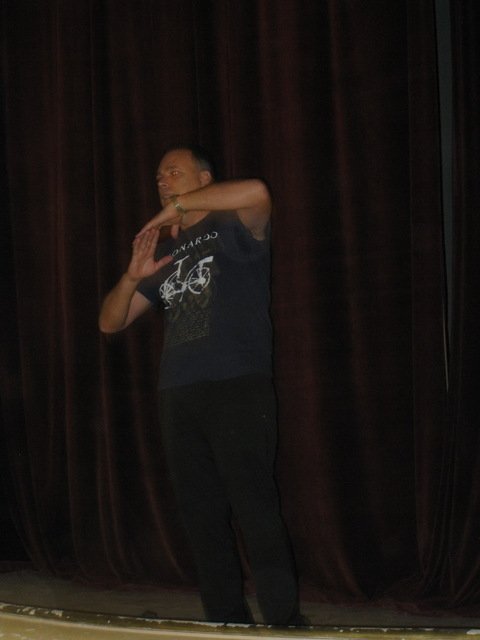
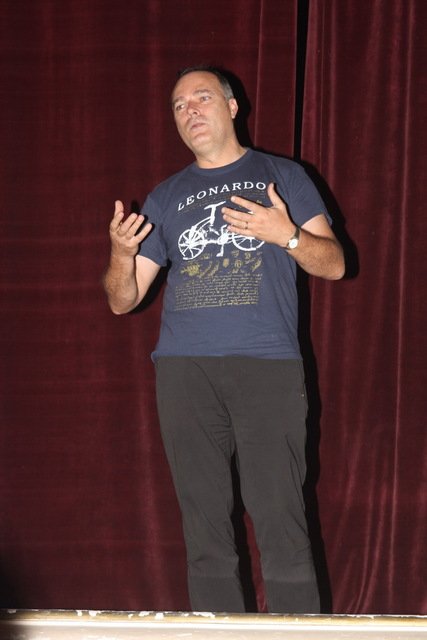
Another man whose name was given by the International Astronomical Union
to an asteroid, Marc Gyssens (Belgium), author of IMO Constitution,
former editor of the Journal of the International Meteor Organization (WGN)
and head of Urania Public Observatory in Antwerp,
gave a generous speech about multiculturalism at the IMC.
“You can keep my speech for publication in the Proceedings of the IMC.”
began Marc with a joke.
Then he said that we are in a place with a rich cultural history, Sibiu,
which also has a German name, Hermannstadt.
It was not for the first time.
Two years ago, at the IMC in Croatia,
the city of Porec also had an Italian name, Parenzo.
And last year, the place of the IMC in Northern Ireland, Armagh,
is an English pronunciation of an older local name.
“Actually, this is very common
because we live in a world divided into little squares,
where people move and mix all the time.” continued Marc.
He gave samples from the IMC participants:
a Venezuelan man who lived in Spain, Slovenia, Turkey, Ukraine
and now he lives in Spain again,
a German man who lives in the Netherlands,
a Belgian man who lives in Northern Ireland,
an Italian man who lives in Romania,
a Romanian man who lives in France…
“We actually are a big international community and this is so nicely reflected here,
at the International Meteor Conferences, where,
in spite of different nationalities and different languages,
we can still meet, we can share what we have in common,
in a common language - we all speak some English:
a lot of English, a little bit of English, medium English…
it doesn’t matter, I remember that 20 years ago
some people could hardly say any word in English
and now they fluently speak English…
it’s very spectacular,
even the French people speak English!!!”
said Marc,
provoking shrieks with laughter and enthusiastic applauses.
“So we all communicate with each other in one global big world
in a positive sense
and that is what the IMC
and also the IMO is all about.”
concluded Marc Gyssens.
Video captures:
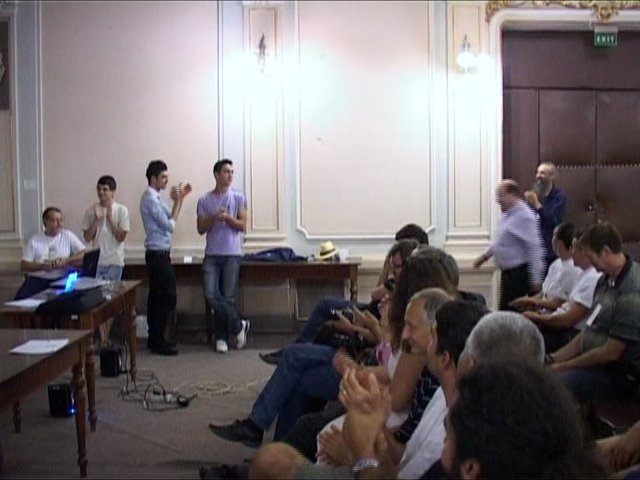
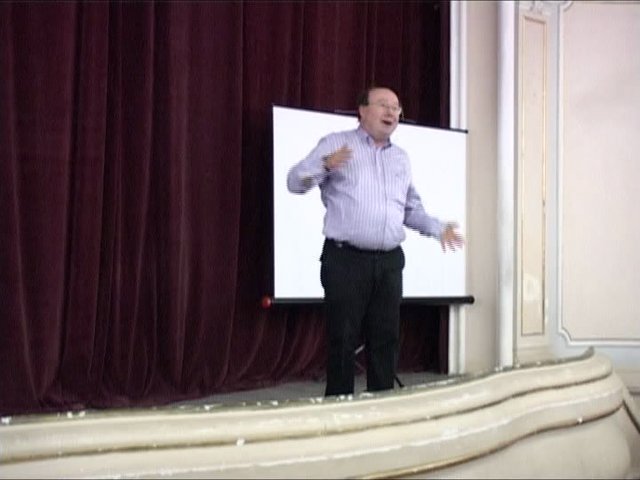
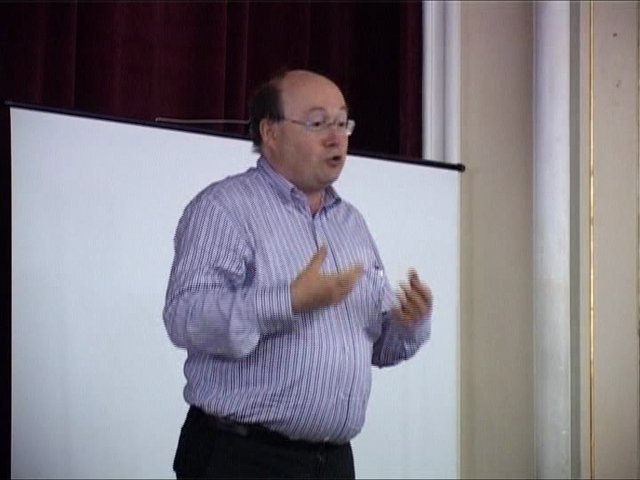
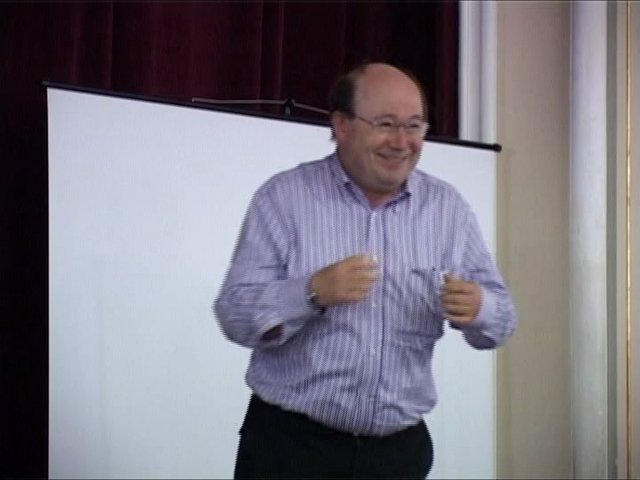
And photos by Valentin Grigore and Bernd Brinkmann:
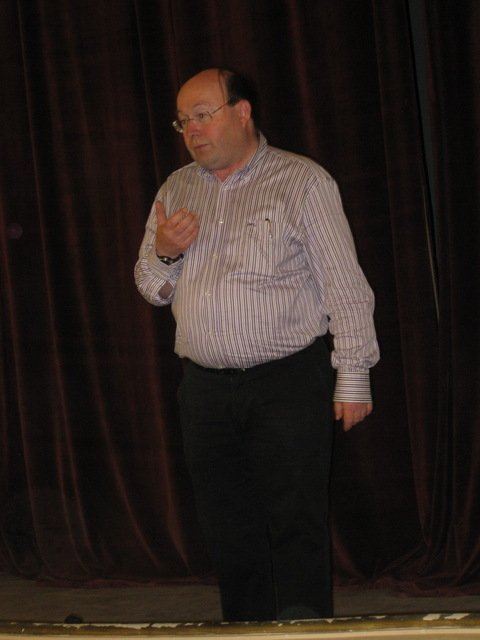
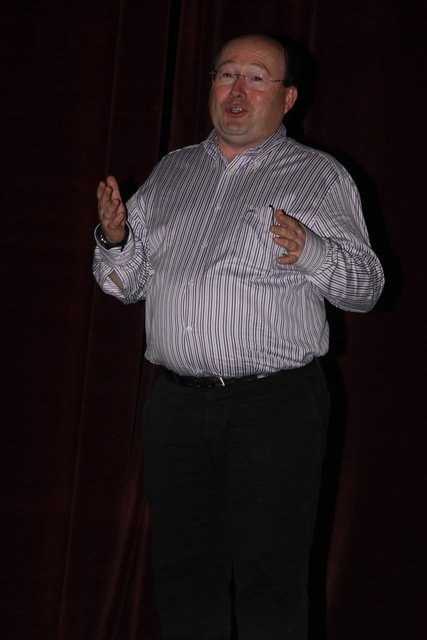
The next act was an expression of love for the great heroes of meteor astronomy
who also became great heroes of the Astropoetry Show,
David Asher and Jeremie Vaubaillon.
Andrei read his stanza:
“David and Jeremie,
A lot of high astronomy,
A little bit of poetry
And… a fine chance for humanity.”
Video capture:
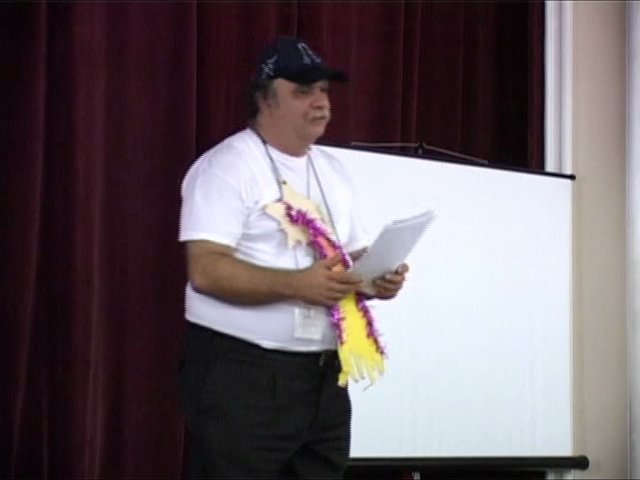
Then he called Victor Chifelea to announce a sketch entitled
“David Asher, Jeremie Vaubaillon and the Draconid Meteor Shower 2011”
and composed by Gelu Claudiu Radu, Victor Chifelea and Andrei Dorian Gheorghe.
Victor came in a hurry:
“The announcement says:
David Asher and Jeremie Vaubaillon are invited on stage.”
Video captures:
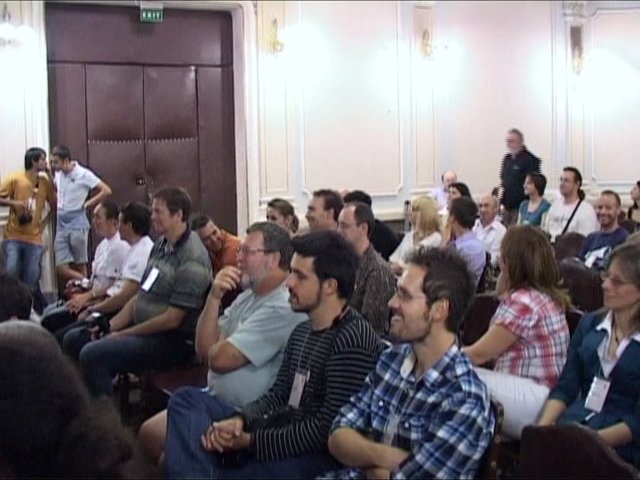
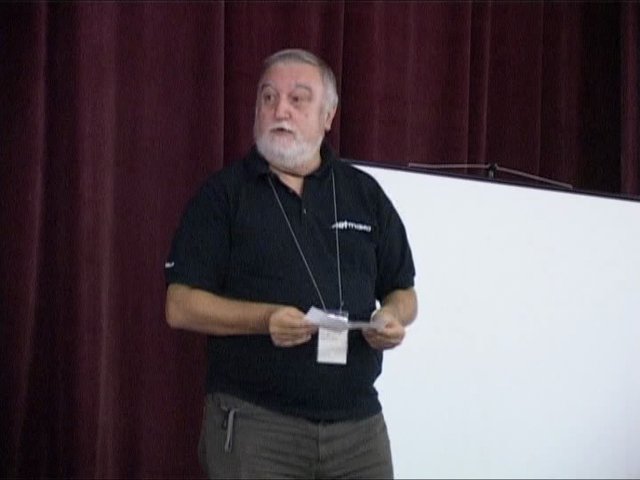
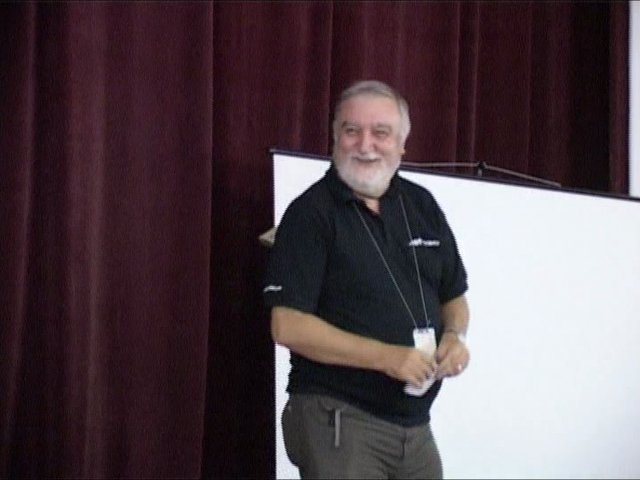
Obviously, the two scientists tried to come on stage, but
Gelu Claudiu Radu stopped Jeremie, saying in French:
“Je suis Jeremie Vaubaillon.
Asseyez vous, s’il vous plait.”
and Andrei Dorian Gheorghe stopped David Asher, saying:
“I am David Asher.
Sit down, please.”
Video capture:
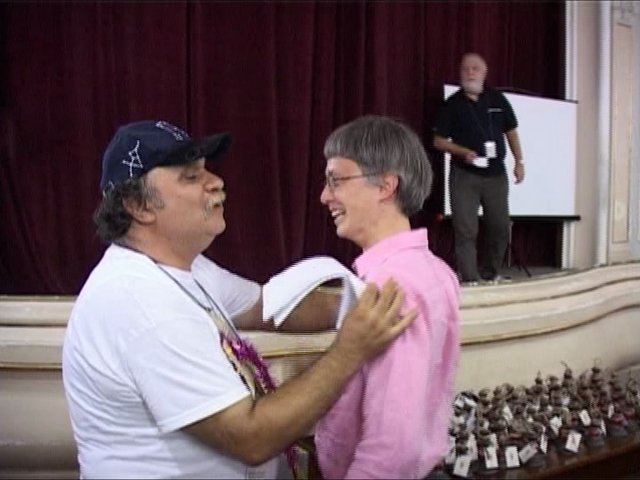
On stage, new “David” (Andrei) and new “Jeremie” (Gelu) began a dialogue:
“David” (on the left):
Hi Jeremy.
Let’s play a game called
Great Encounter in the Sky!
“Jeremie” (interested, on the right):
Oui, oui, c’est tres jolie.
“David”:
I’ll be a Draconid fireball
and you’ll be the airplane of the European Draconid expedition.
“Jeremie” (enthusiastic):
Oui, oui, c’est tres jolie!
(After a few moments of preparation)
“David”:
Are you ready, Jeremy?
“Jeremie”:
Oui, oui…
And from the audience, even Jeremie Vaubaillon continued:
…c’est tres jolie!
Of course, the fireball “David” and the airplane “Jeremie”
passed running one besides the other
(the difference in height was too great)
and finally they said together:
The encounter was not possible!
Video captures:
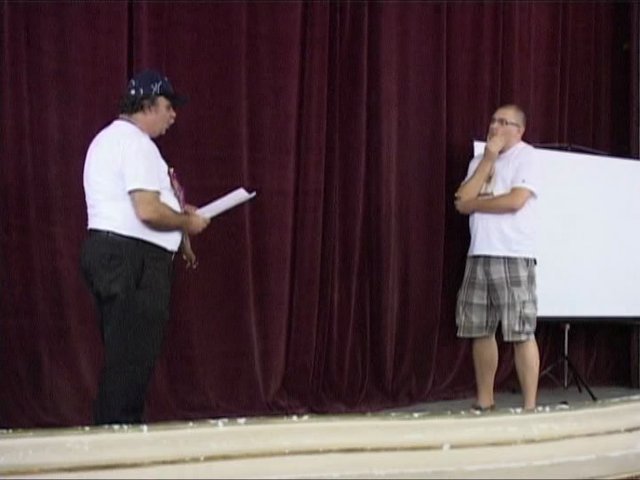
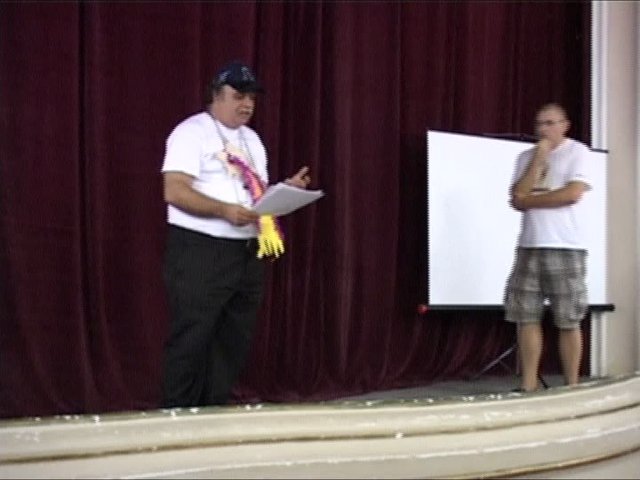
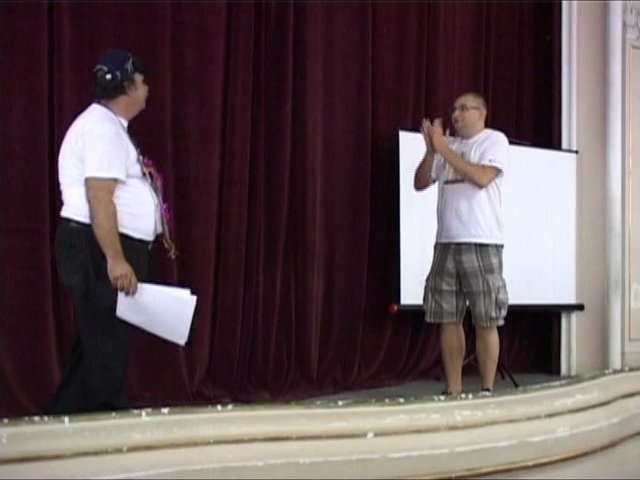
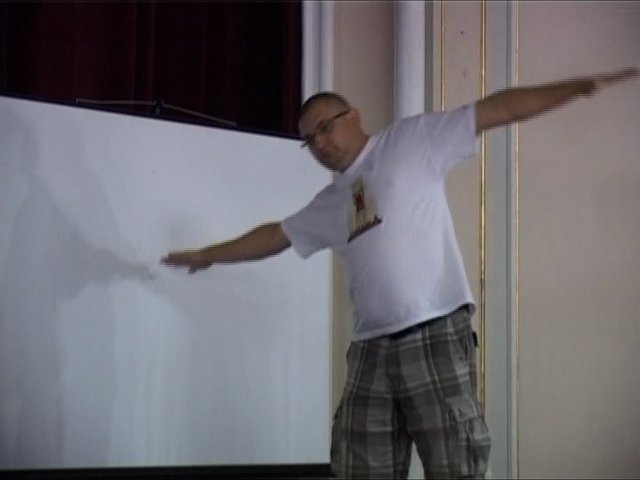
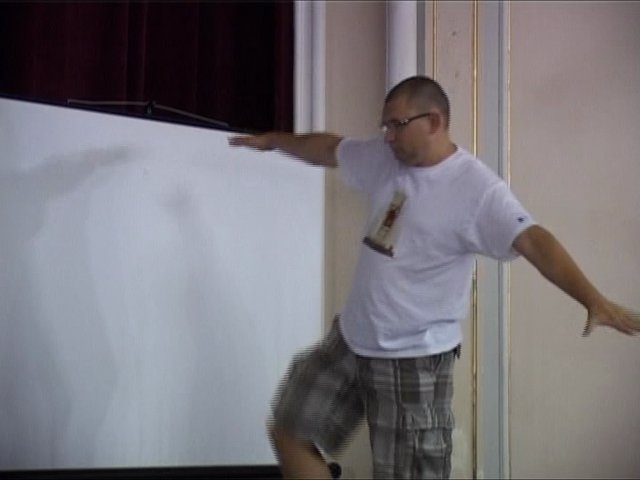
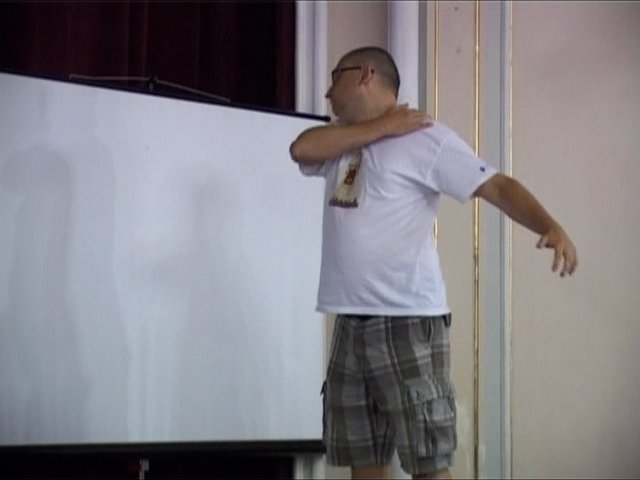
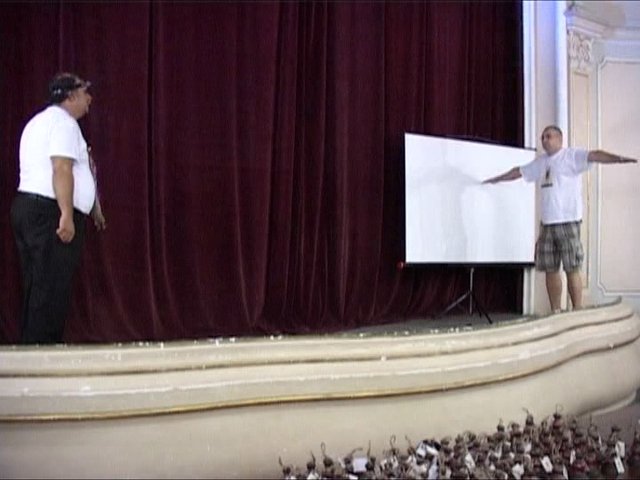
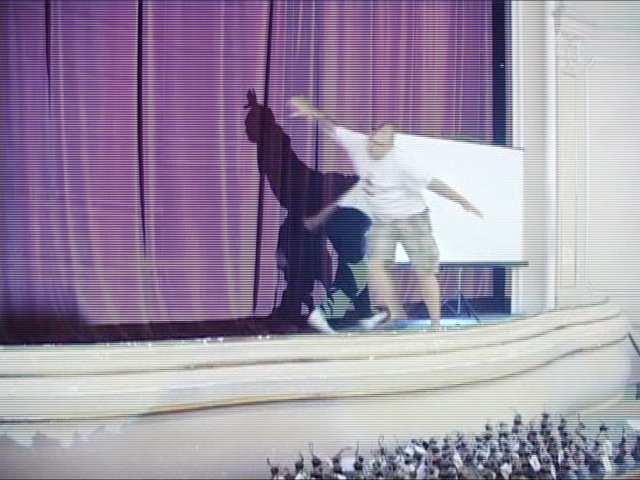
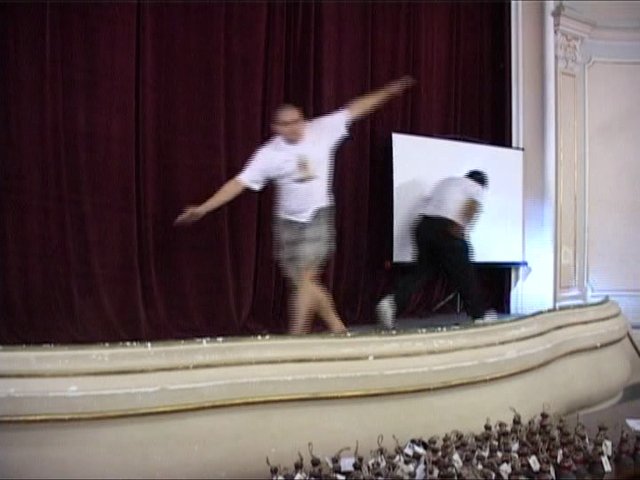
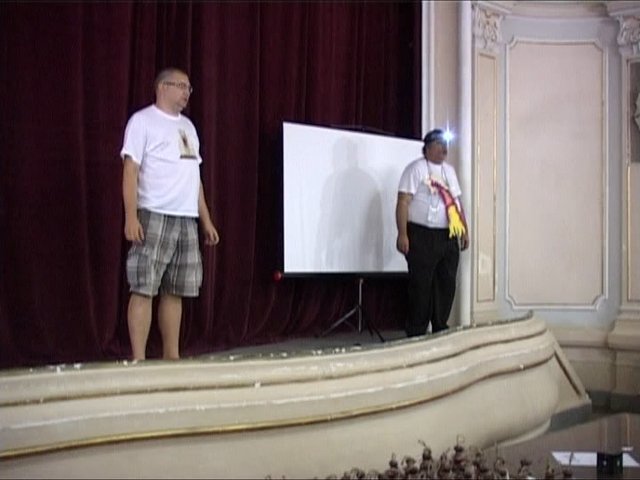
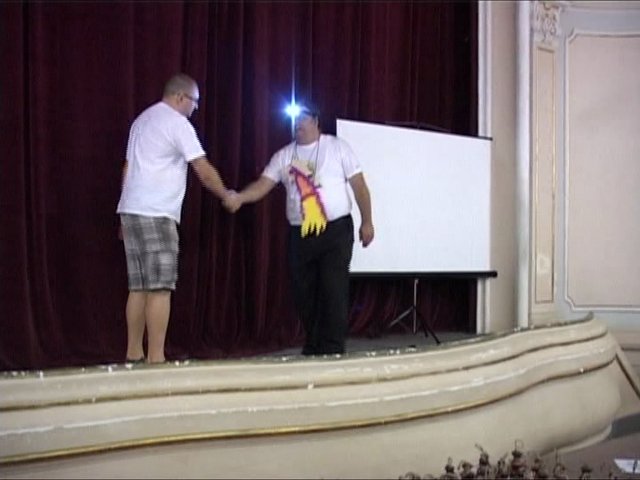
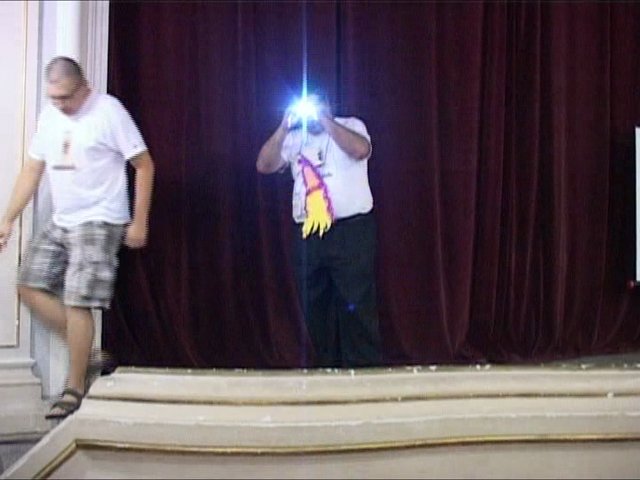
And photos by Bernd Brinkmann:
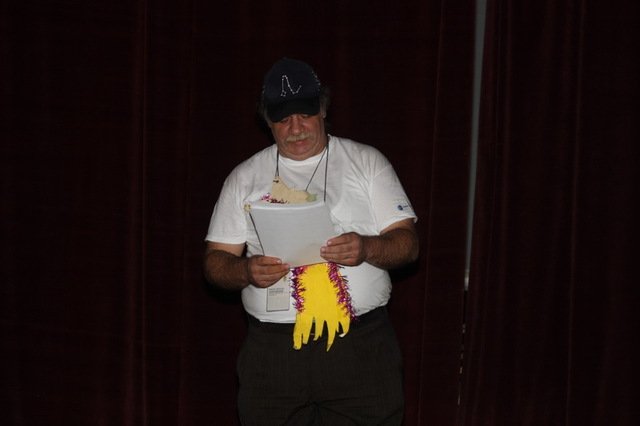
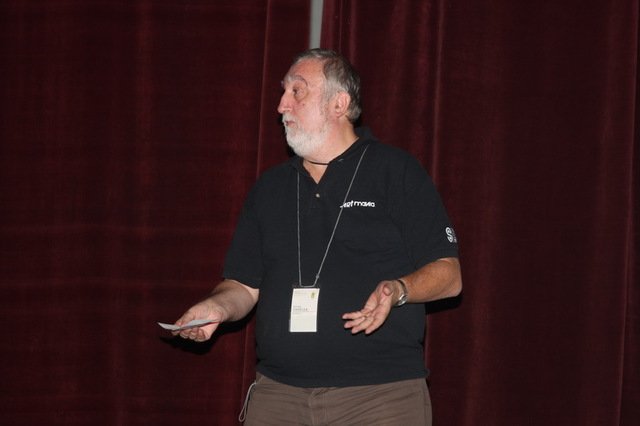
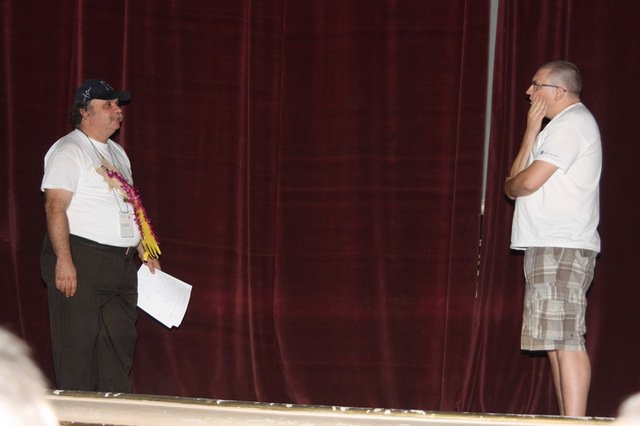
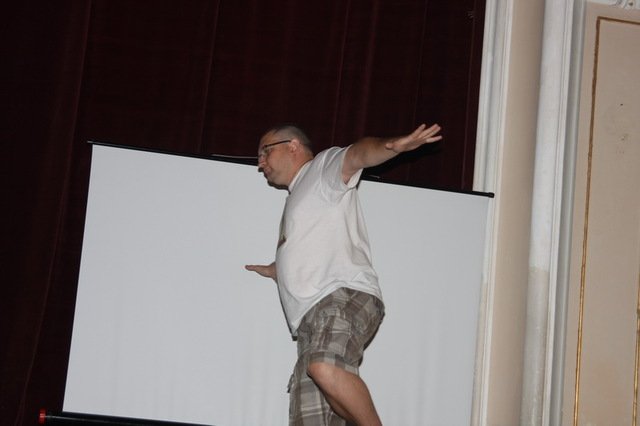
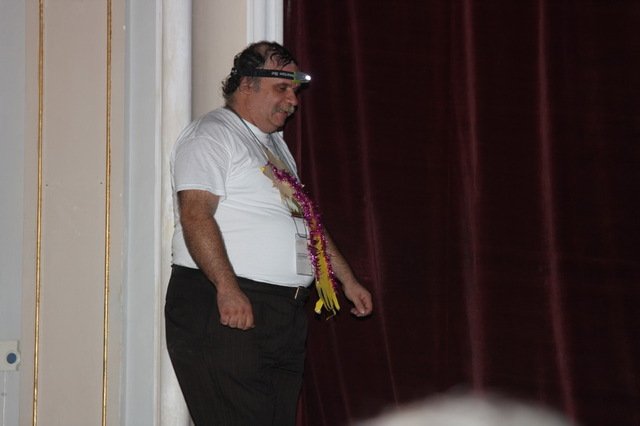
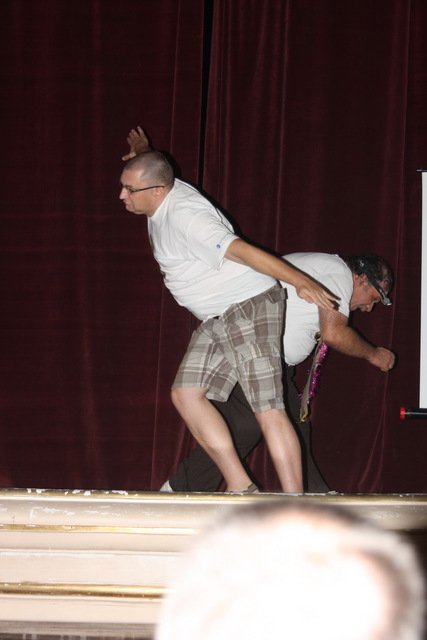
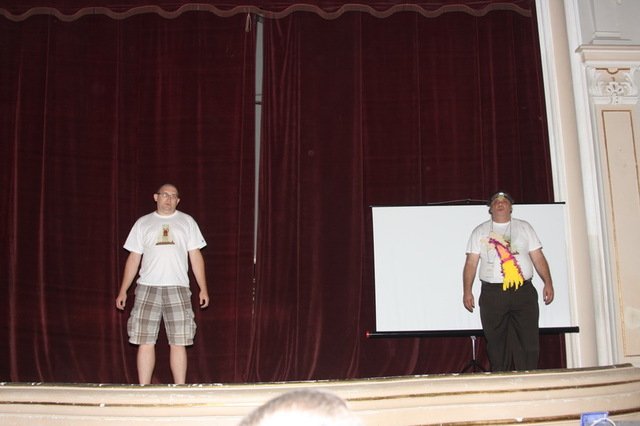
Then Andrei invited (in Russian) Ivan Bryukhanov (Belarus)
to play from his space electronic music:
“Adin melodia, desyat minut.”
“Two pieces, each one of five minutes.”
replied Ivan.
But this mini-recital began with a dialogue of “mews”
between Ivan’s computer and Sylvain Bouley,
which terribly amused the audience.
Video captures:
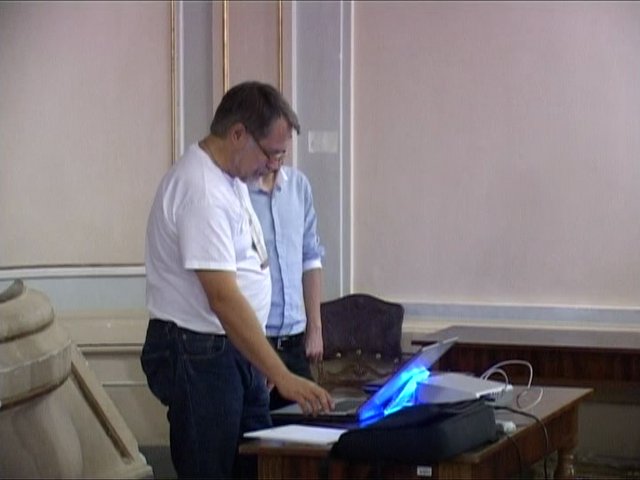
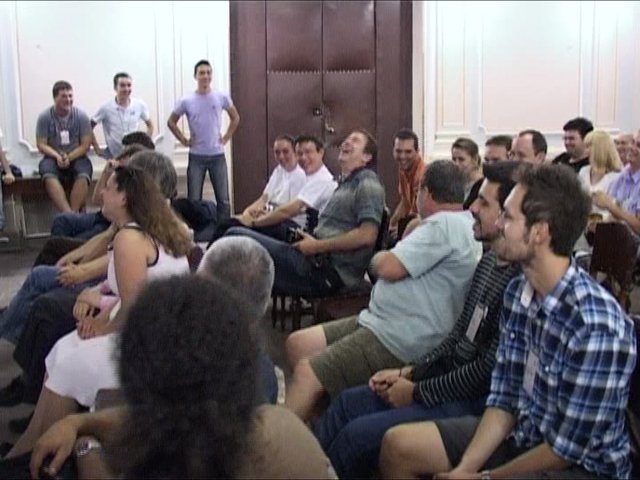
After that Ivan gave his real musical mini-recital,
and finally a few Romanian young volunteers from the IMC organizing team
(Alexandru Tudor, Andrei Balan, Razvan Ciubotaru, Mihai Stoica, Alexandru Spoiala)
began spontaneously to dance in the rearmost of the hall,
so Andrei called them on stage for a very lively end of the act.
Video captures:
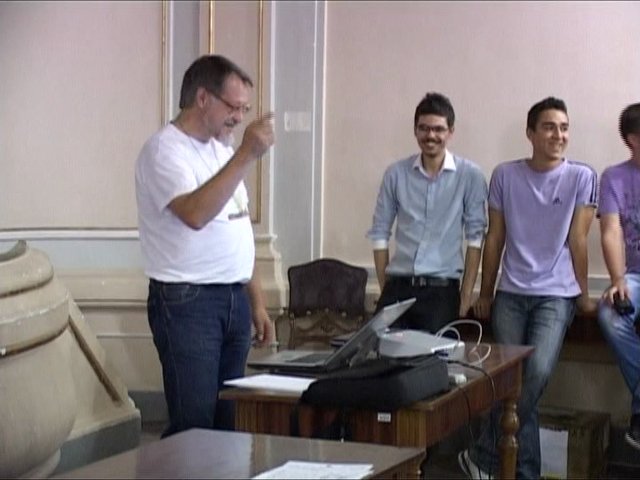
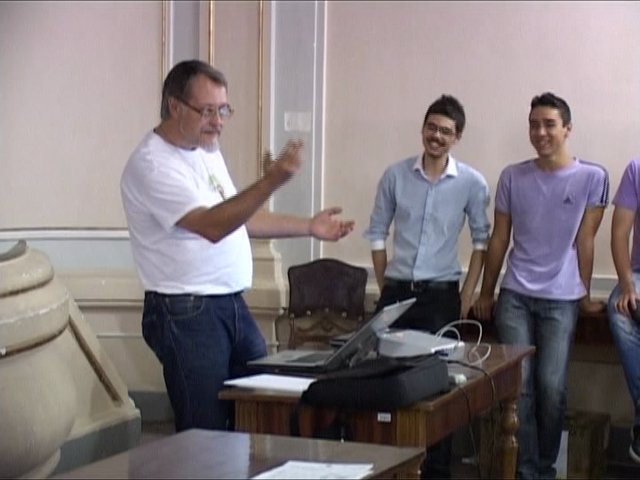
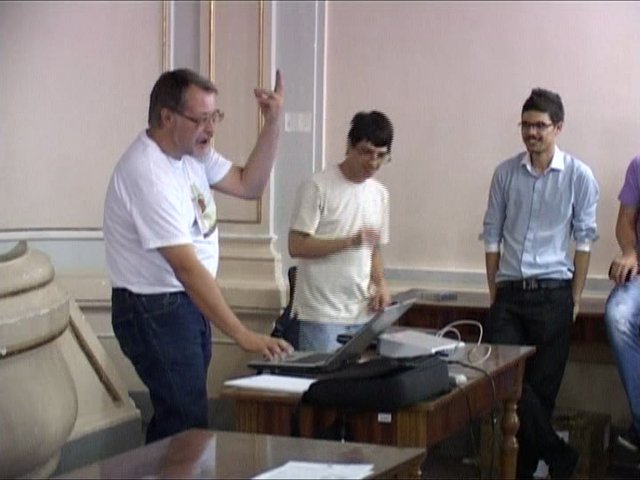
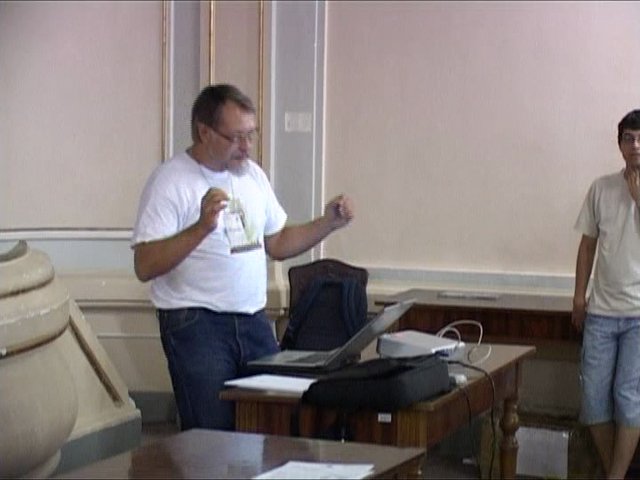
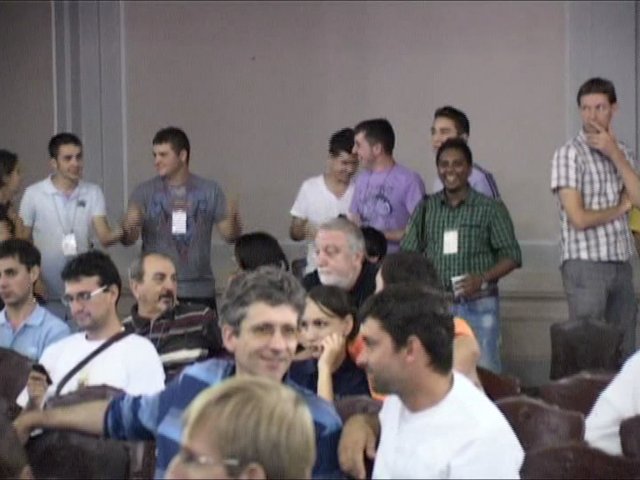
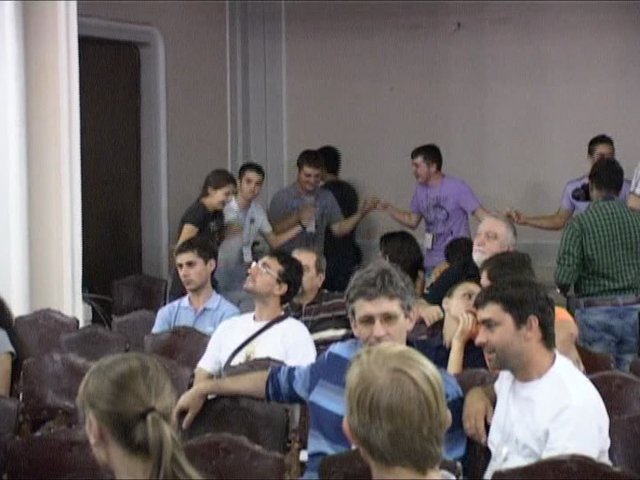
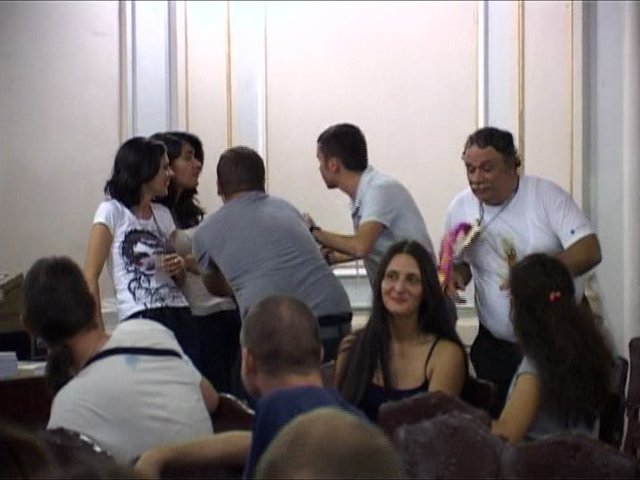
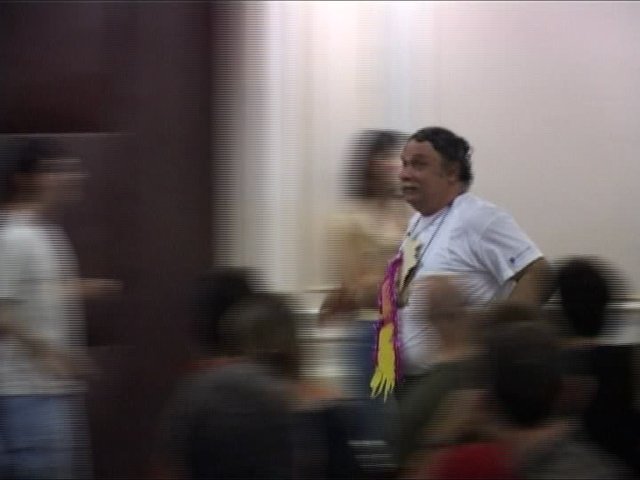
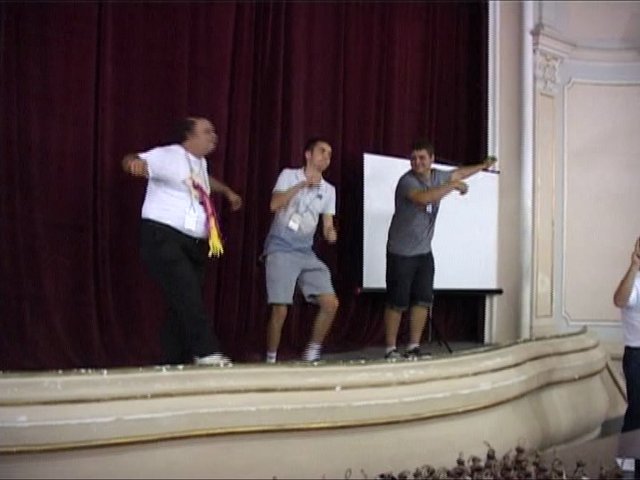
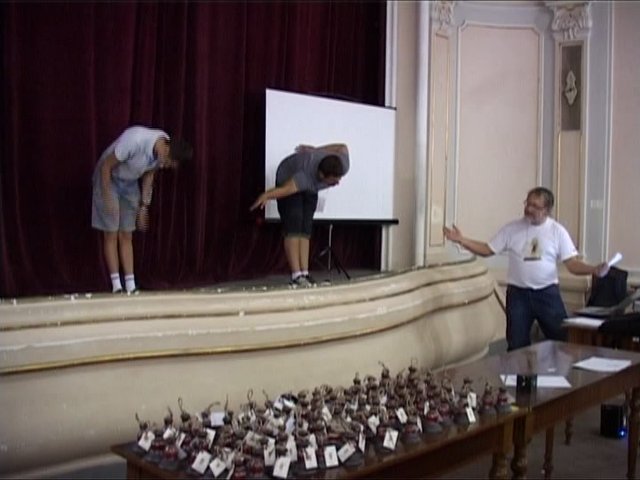
And photos by Bernd Brinkmann (1, 2) and Andrei Matache (3, 4):
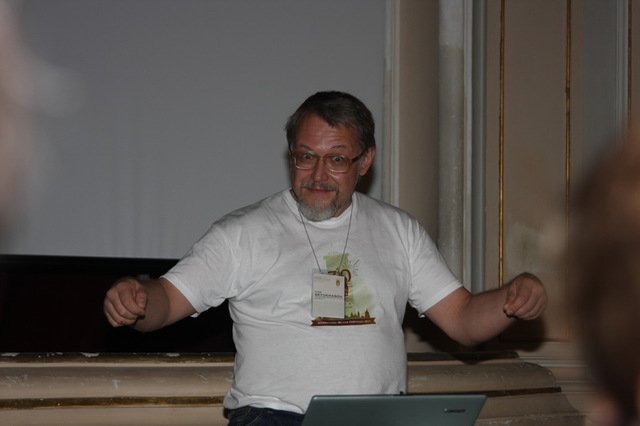
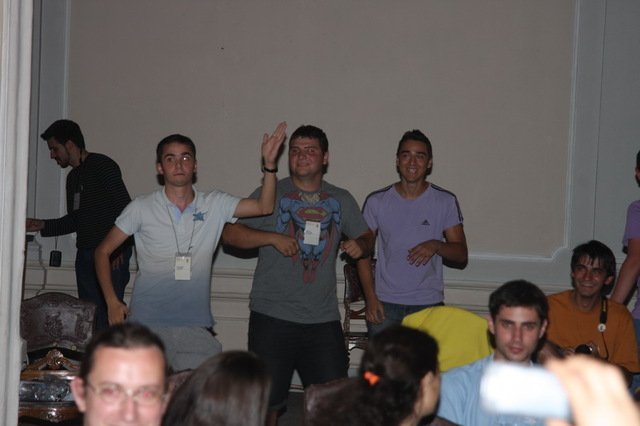
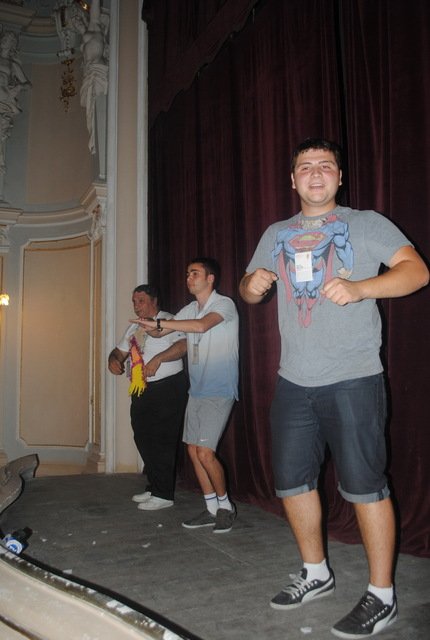
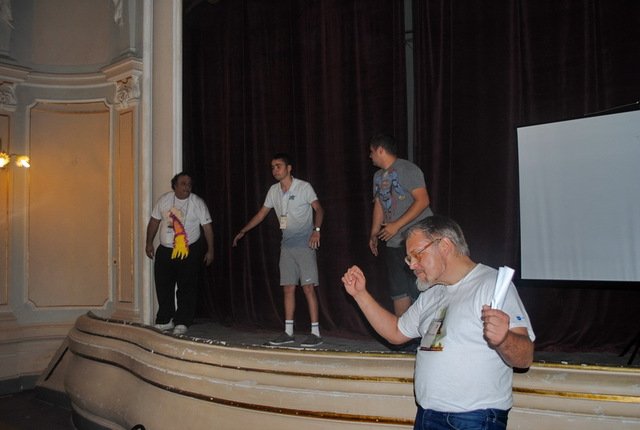
Then, a delicate act.
Accompanied by Dan Mitrut’s guitar,
Andrei said:
“This is an act dedicated to the memory of my parents,
Steliana and Costica Gheorghe,
who were my main supporters in making the first twelve Astropoetry Shows.
Without them, it is very, very hard.”
And he read the astropoem:
“TO MOTHER STELIANA AND FATHER COSTICA
When I want to see my parents
I don’t need to look for them
among the Quadrantids, Perseids and Geminids
in the north,
or among the Piscis Austrinids, Phoenicids and Puppid-Velids
in the south,
or among the Sporadic fireballs.
It is enough for me to watch the sky
and sometimes their luminous faces appear.
Hi mother Steliana,
I say.
Hi son.
How are you?
I’d like to say
well thank you, mother,
but…
Hi father Costica,
I say.
Hi son.
All the bodies in the sky ask me
why you are so angry.
I don’t know if I’m angry, father,
I’m rather confused because
life on Earth is too strange for me
and I’m sad because you, dear parents, remain stars
and I cannot touch you!
…
So,
my friends,
why do I need to keep alive their memory?
Please listen to a collage from my parents’ words
and you will understand.
Father Costica:
“The sky is sublime
because it inspires life.”
Mother Steliana:
“Watch the sky
and do good deeds on Earth.””
(Andrei Dorian Gheorghe)
Video capture:
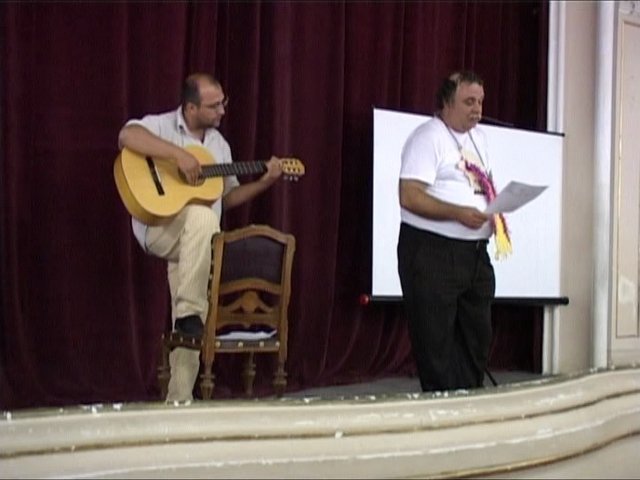
And photos by Valentin Grigore and Bernd Brinkmann:
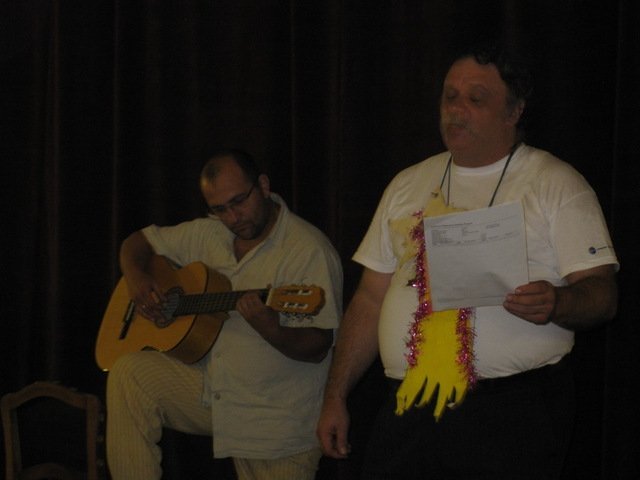
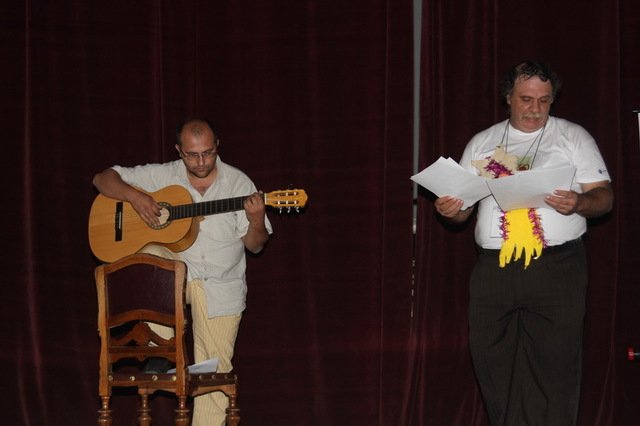
Andrei continued by reading a few lyrics from
Dan Mitrut’s Ballad of the Aperiodical Comet:
“Heart of stone
Please revive again
Give me back the light which I’ve lost
My magic and the longing for earth…
Because immortality…
Is not for us!”
And Dan Mitrut sang his Ballad of the Aperiodical Comet.
Video captures:
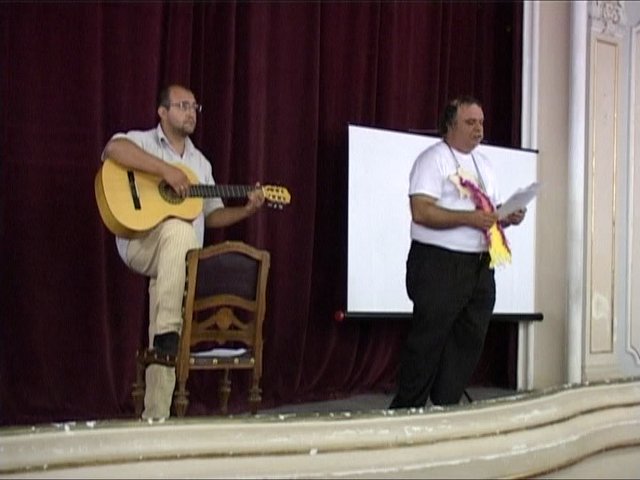
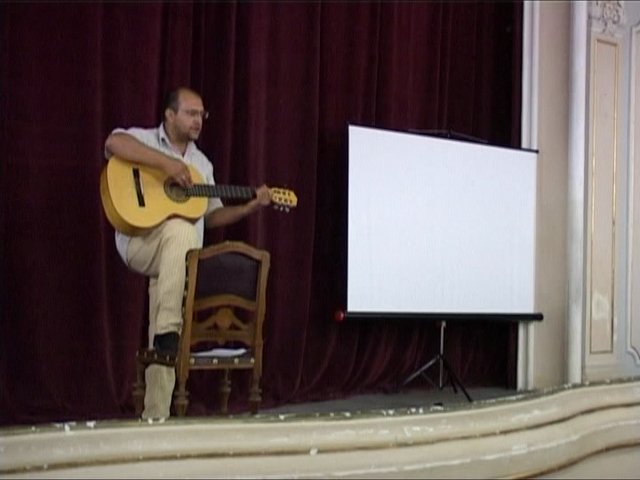
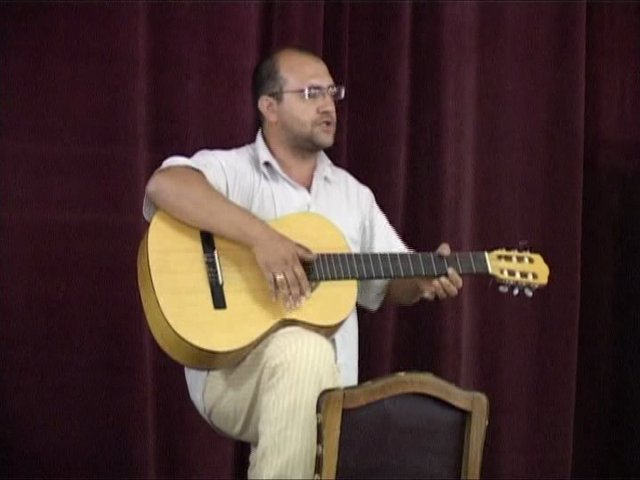
And a photo by Bernd Brinkmann:
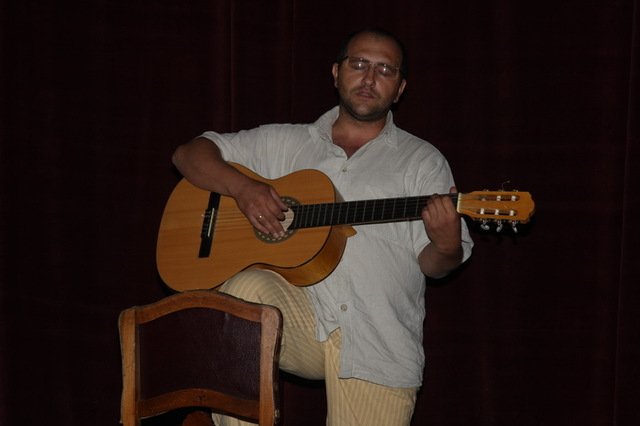
And a special video capture with three Romanian astropoets
from the three Romanian major historical provinces:
Dan Mitrut from Moldavia,
Gelu Claudiu Radu from Transylvania
and Andre Dorian Gheorghe from Wallachia,
just like the three shepherds from the Romanian national myth-ballad ‘Miorita”:
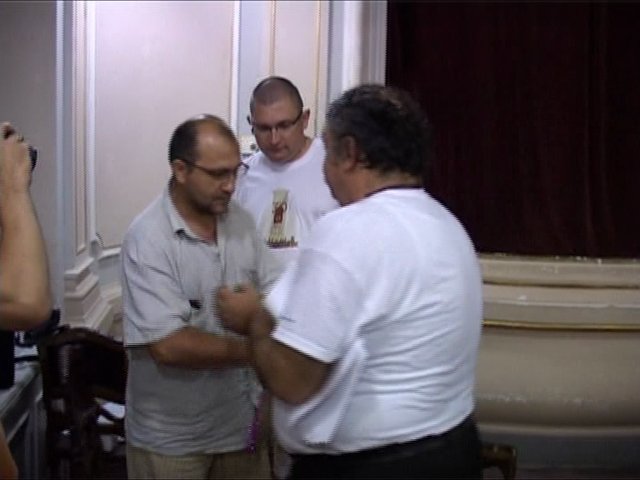
Then Andrei Dorian Gheorghe said:
“Every IMC has an organizer.
Who is the organizer of this IMC?
The organizer of this IMC is…
Valentin Grigore!
He and his team have a surprise for you!!!”
Video captures:
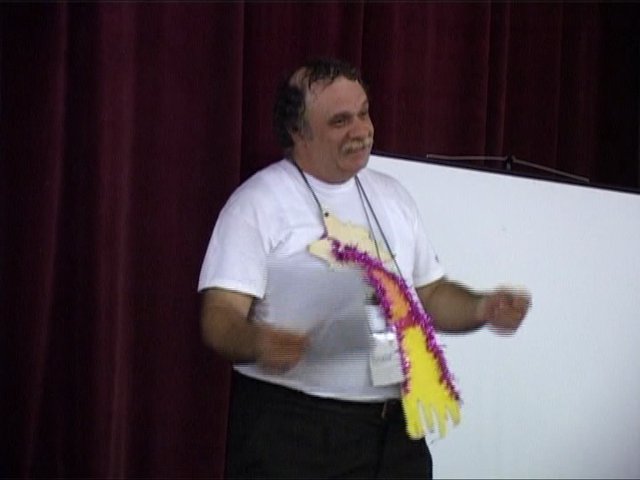
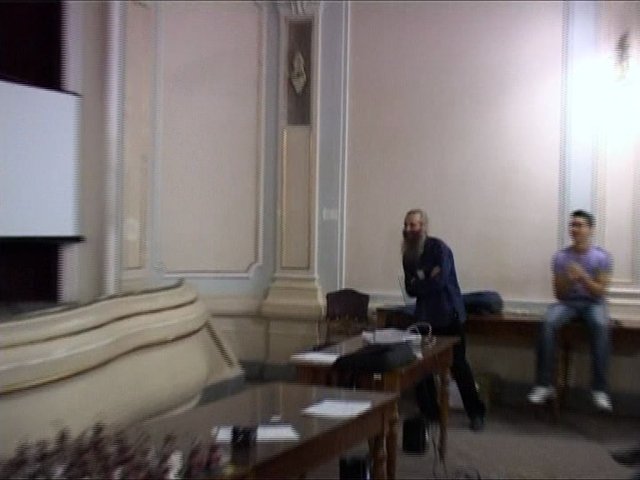
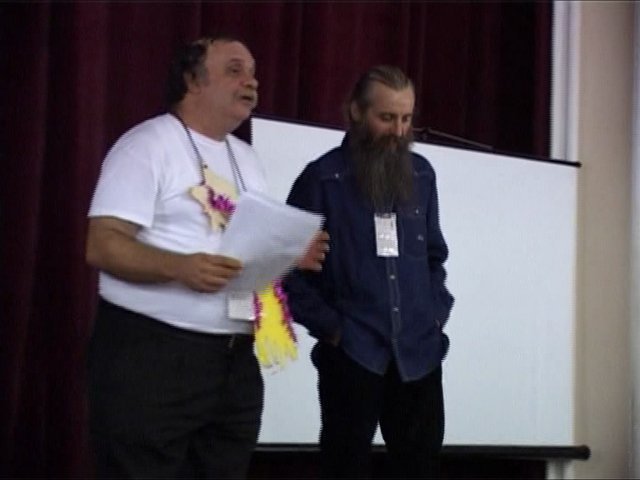
Valentin Grigore dramatically recited a prose-poem,
while the volunteers of his organizing team
gave small bells to the IMC participants.
“THE SMALL BELL AND THE METEOR OBSERVER
If you know or not,
the small bell is an astronomical object.
Maybe you imagine
that not all the people in the world watch the sky.
Why?
I ask you to imagine that all the people in the world
watch the sky and observe meteors.
We can change the world,
but maybe for this
people need something special.
People are the same,
but many of them do not see the moment.
A second is enough to change a life.
And this is very important,
to know our moment,
to know the second which can change our life.
And meteors can change lives.
To ask what happens if an asteroid hits the Earth
is not realistic.
It is realistic to watch the sky,
because the sky is always present above us,
even when it is covered by clouds.
But for many people
the sky does not exist.
The image of the sky is the same,
but the image of the sky reflected inside us
makes the difference.
We are meteor observers
and some of us are meteor scientists,
who need meteor observations.
So I think it’s the moment to wake up.”
Then Valentin Grigore took a small bell and, agitating it,
he ended by shouting:
“Wake up to observe meteors!
We need more meteor observations
because the meteors are above us!”
Video captures:
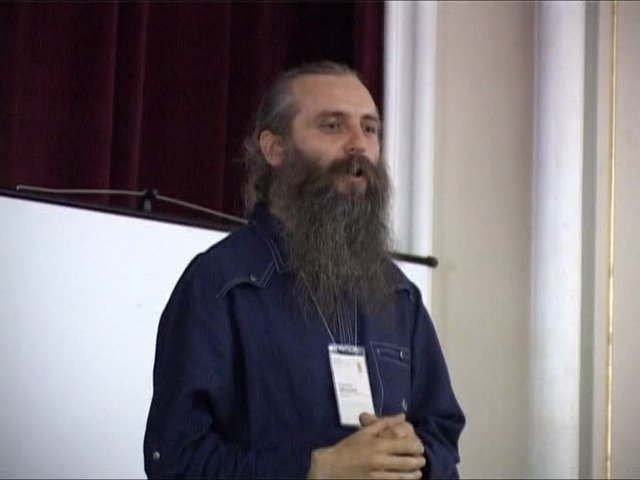
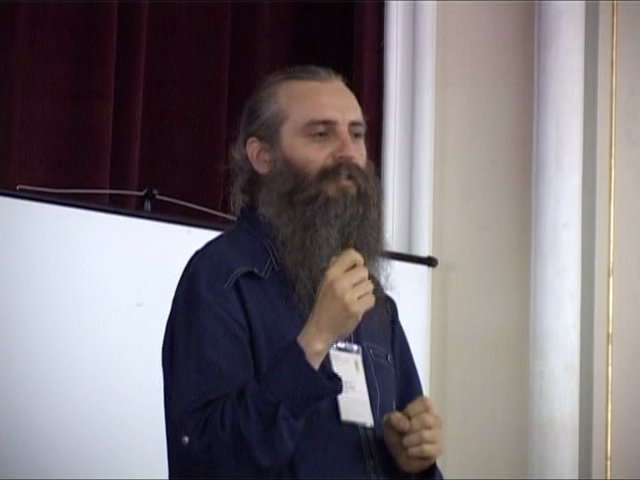
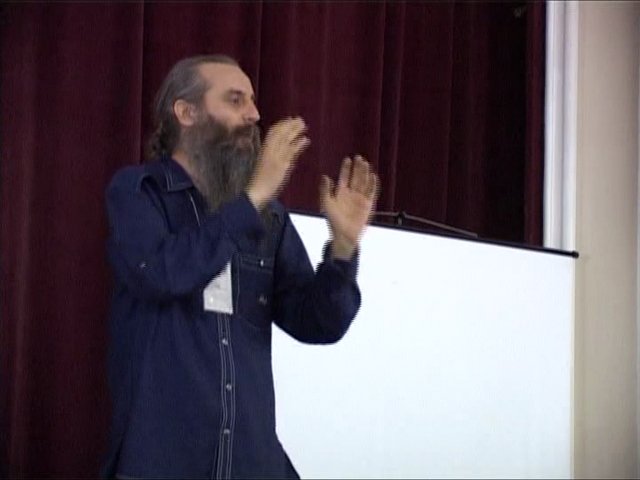
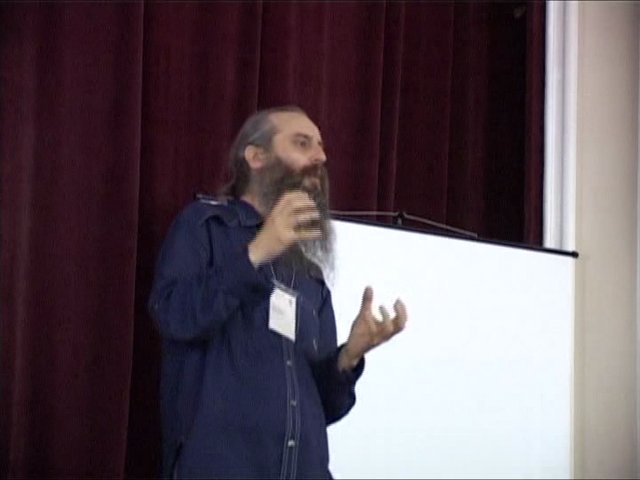
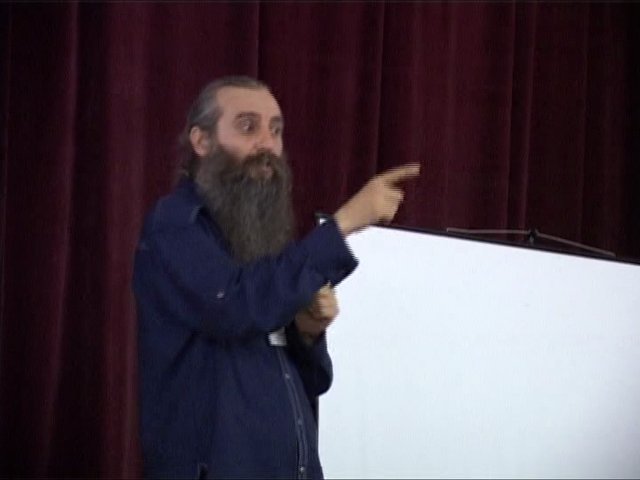
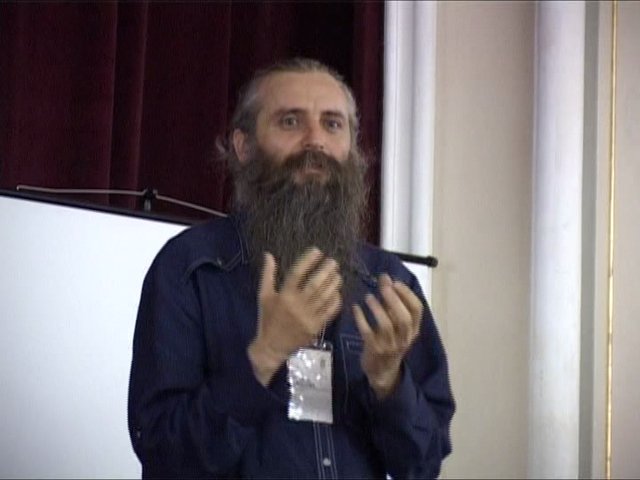
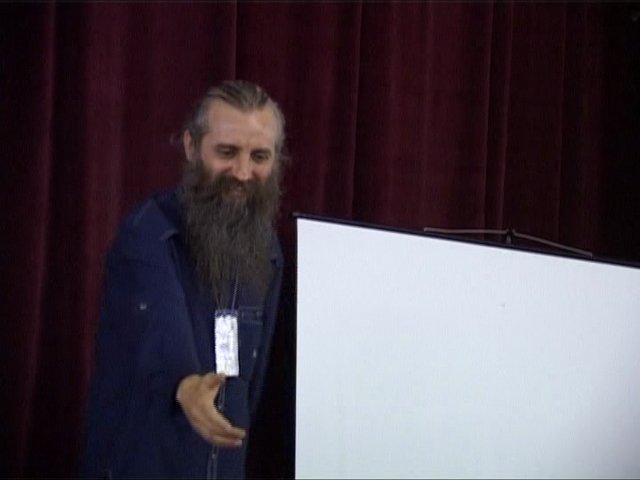
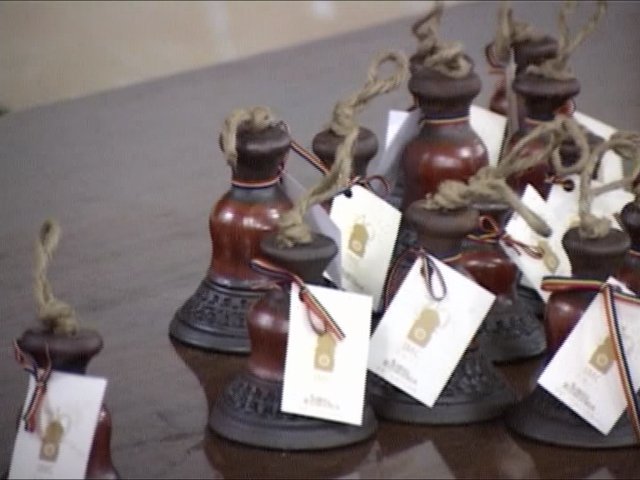
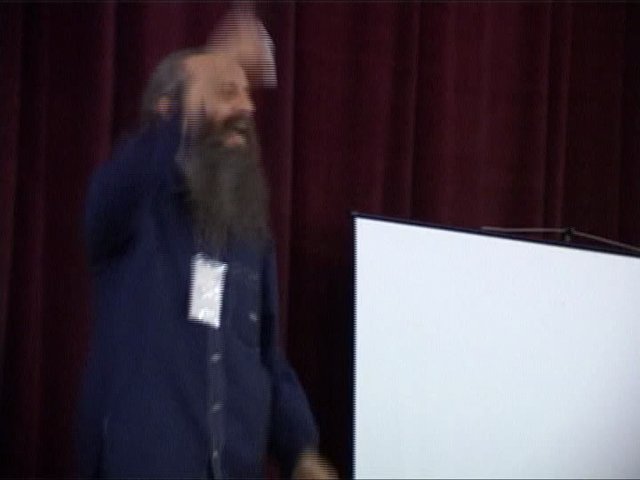
The noisy end of the act,
with the entire audience using the small bells,
was quite refreshing!
Video captures:
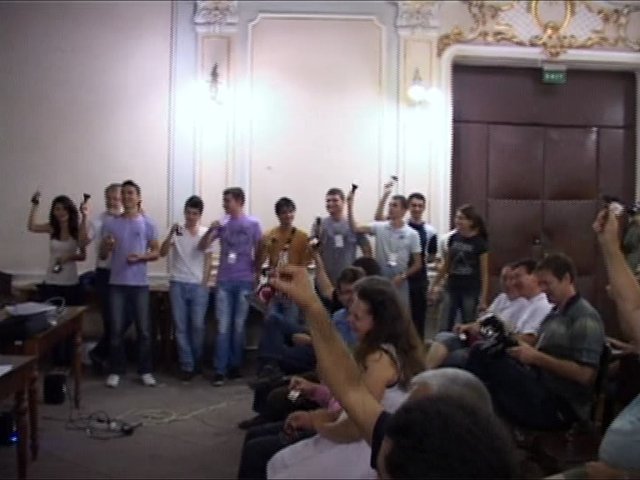
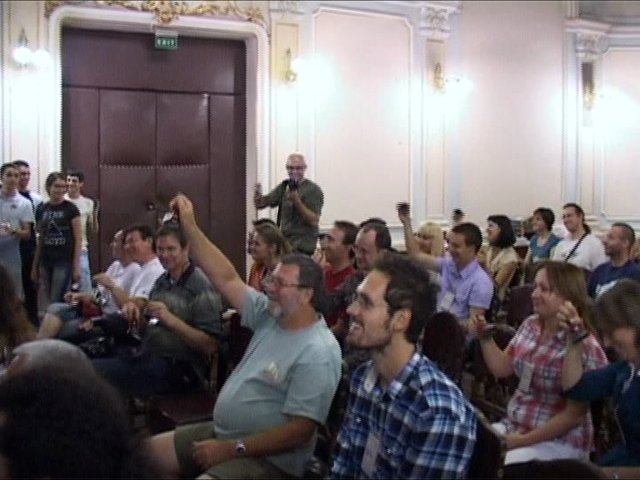
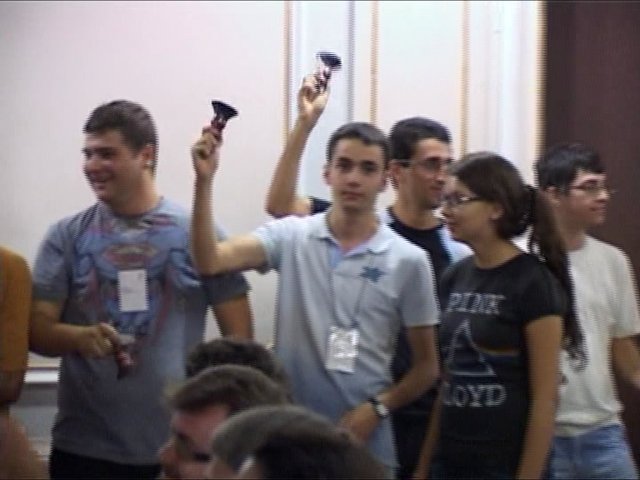
And photos from Valentin Grigore’s act
by Bernd Brinkmann (1-4) and Casper ter Kuile (5):
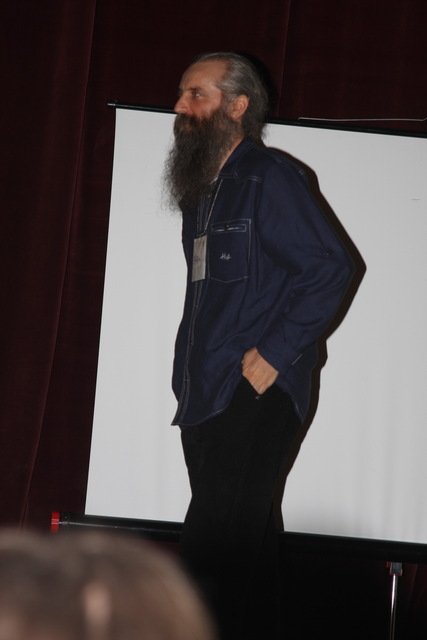
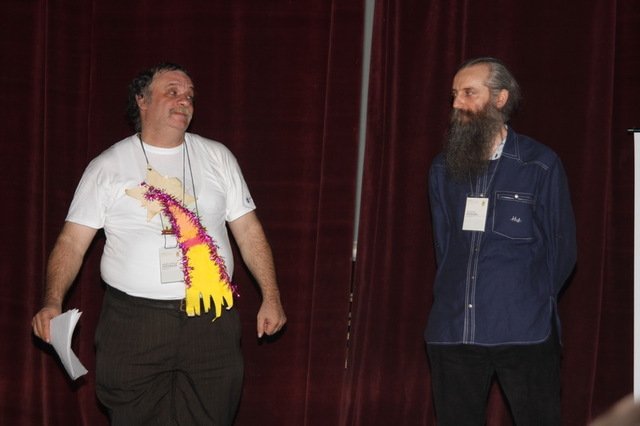
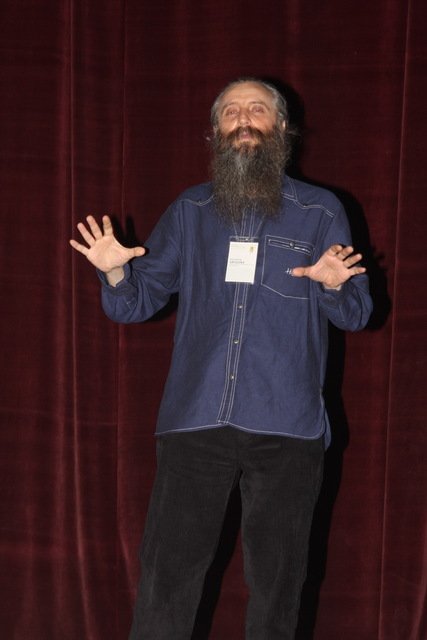
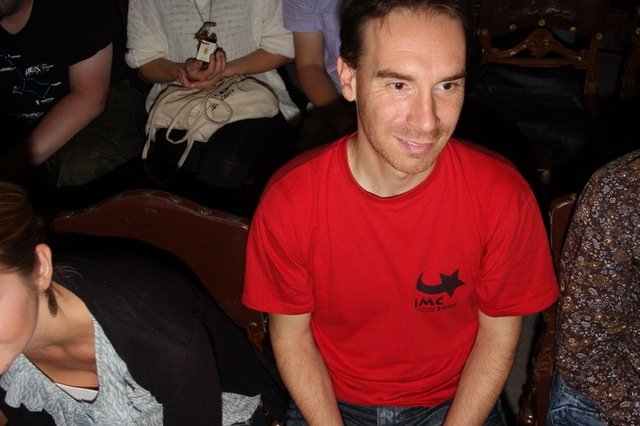
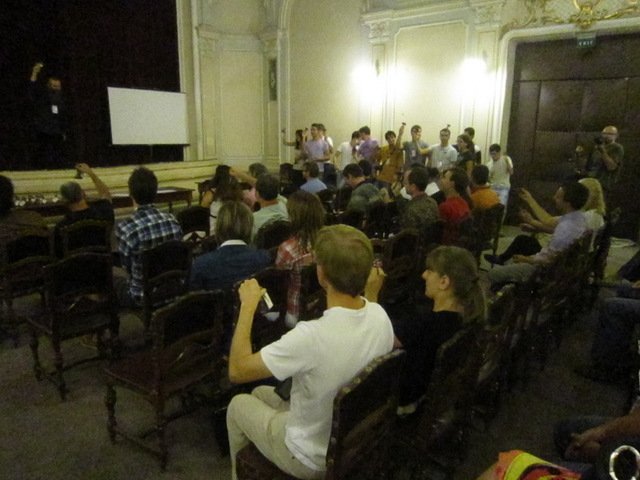
The last act was begun by Andrei Dorian Gheorghe and Gelu Claudiu Radu.
Andrei (musically improvising like a tenor):
Lots of meteoroids are rambling in the sky.
What a good feeling for them to fly!
Some of them enter the atmosphere
And become meteors.
At those doors,
We are watching them in the mesosphere.
Gelu (preoccupied):
Why do they take this decision?
We have to find their reason.
Video captures:
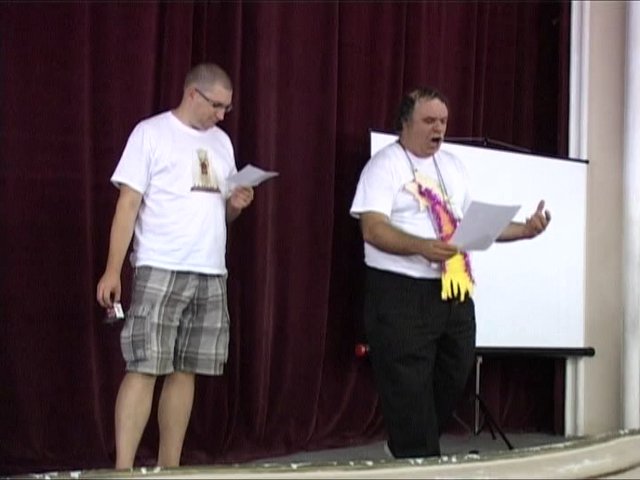
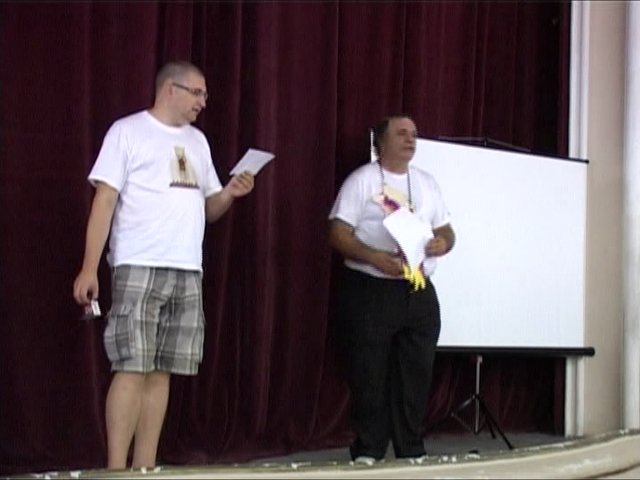
Then Andrei asked a few fireballs from important meteor showers:
“What would you like to see on Earth?”
One after the other,
Quadrantid Detlef Koschny (Germany/Holland),
Lyrid Cis Verbeeck (Belgium),
Alpha Capricornid Arnold Tukkers (Holland),
Perseid Jos Nijland (Holland),
Draconid Sylvain Bouley (France),
Orionid Grigoris Maravelias (Greece),
Leonid Thilina Heenatigala (Sri Lanka)
and Geminid Casper ter Kuile (Holland)
came on stage to respond to this question,
and it was funny that the spectators used for applauses
not only their hands,
but also the small bells received during the previous act.
Three of the fireballs gave profoundly humanist answers.
Thus,
Leonid Thilina wanted to see
a better world.
Photo by Bernd Brinkmann:
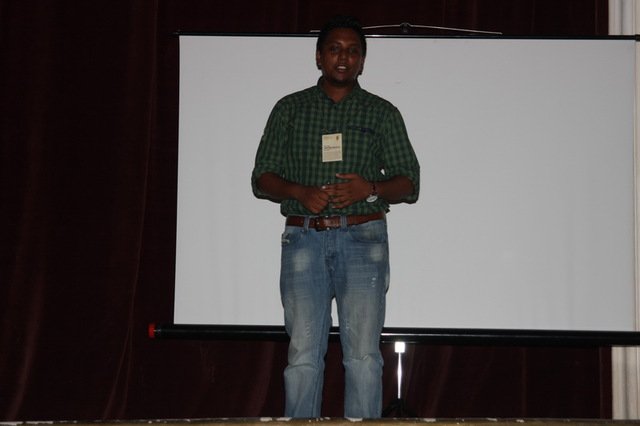
Geminid Casper also wanted to see
an ideal world,
“with happy children.”
Photo by Bernd Brinkmann:
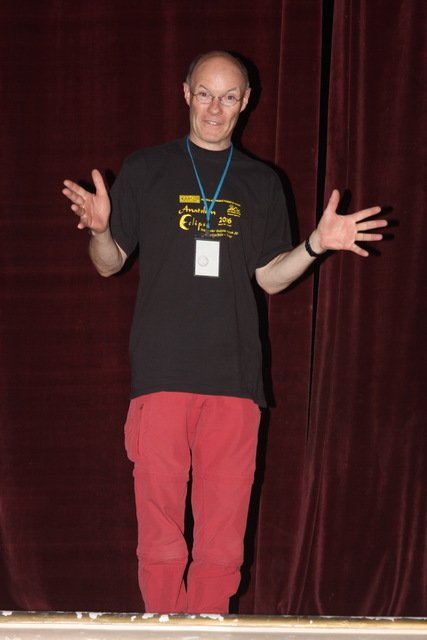
Alpha Capricornid Arnold wanted to help
children from the Fukushima zone,
hardly tried by a terrible earthquake followed by a nuclear accident in 2011.
For this, he appeared with a box for donations
and called on scene the two Japanese representatives.
Obviously, more IMC participants
contributed to that box…
Photo by Bernd Brinkmann:
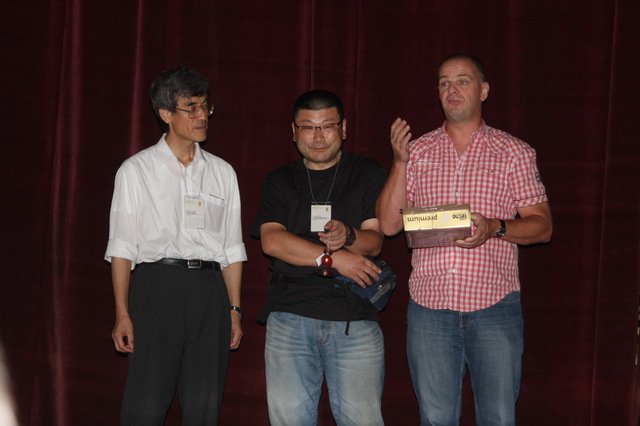
Quadrantid Detlef gave a humorous answer:
“Me… Quadrantid…
there is something I would like to see.
Would you like to know what I would like to see?
I can’t tell you!
It’s… my wife,
she would kill me.
I want to see the Draconids,
but I have to be inside for dinner
at eight o’clock!”
Photo by Bernd Brinkmann:
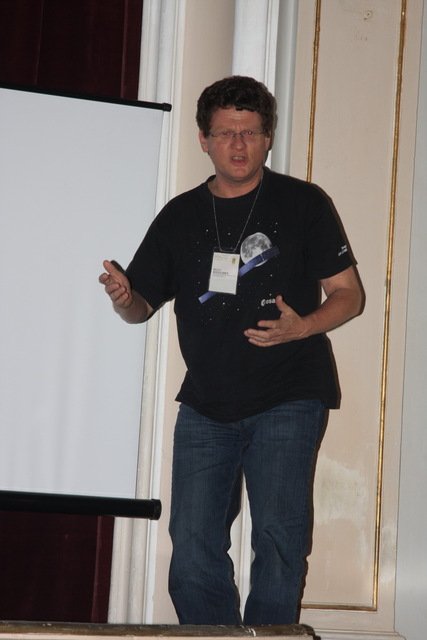
Lyrid Cis gave a tourist answer:
“I want to see many things.
For instance,
next year I want to see La Palma and Japan!”
Photo by Bernd Brinkmann:
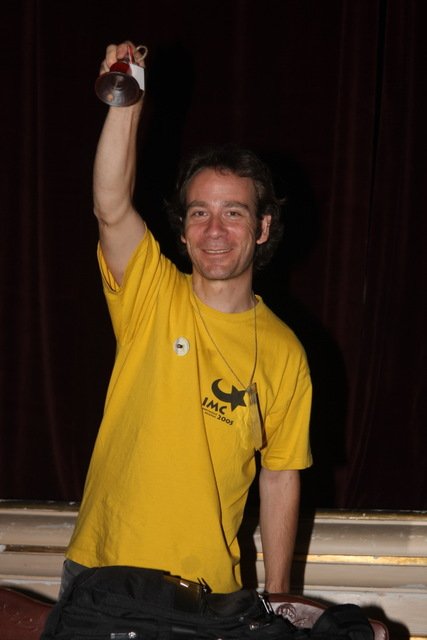
Perseid Jos gave a poetic answer:
“I would like to see parents
who are teaching their children
of the dark sky with all the constellations.
Then they would suddenly see me,
so they can make a wish.
And then hopefully the wish
will come true…”
Photo by Bernd Brinkmann:
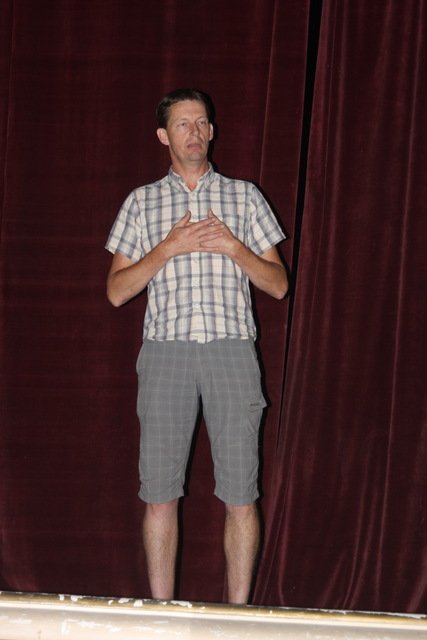
Draconid Sylvain gave a musical answer
on the tune of a classical area,
impressing through his superb tenor voice:
“Oh my dear Draconids
Let’s go to this Party
Try to be shiny
And a bit funny
I will enter so rapidly
And meet the plane of Jeremy
Big Bang it will be
In the sky of Helsinki
Come on my Draconids
Just enjoy the Party
In the sky you will see
A big orgy.”
Photo by Bernd Brinkmann:
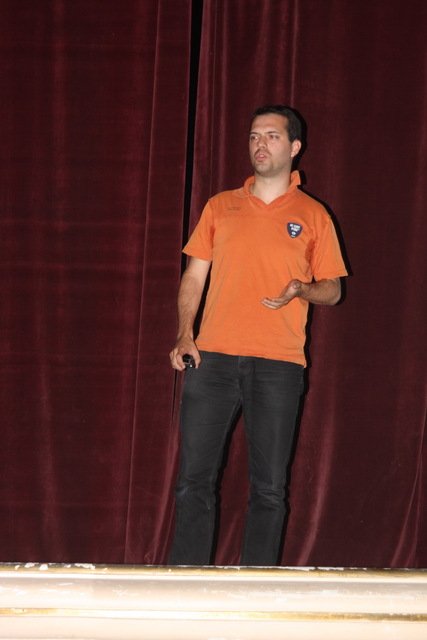
Orionid Grigoris gave an acrobatic answer.
First he asked Andrei, showing to the IMC participants:
“Do you know all these guys???
They seem very interesting people.
Should I enter and meet them?”
Photo by Bernd Brinkmann:
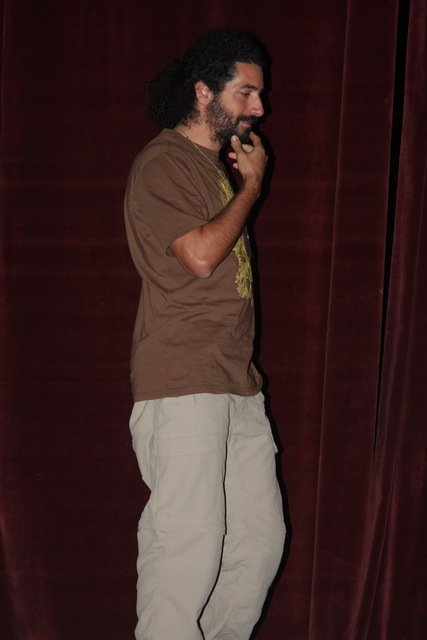
And, without waiting for a reply,
he continued:
" Yes? Thanks..."
And he riskily and spectacularly
jumped over the stage,
just like a real fireball.
Photo by Valentin Grigore:
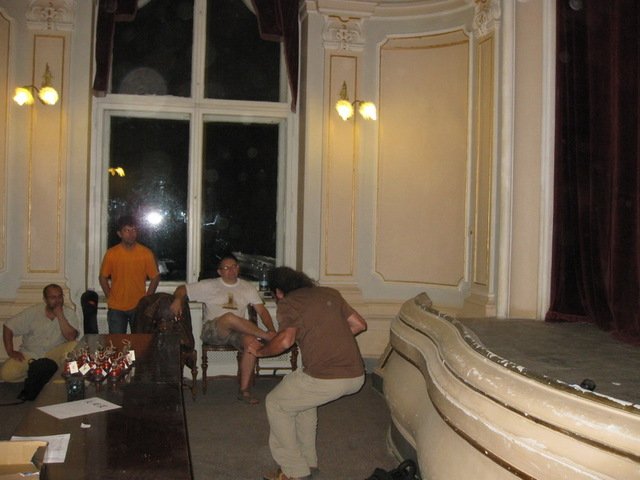
Finally, after this special exercise of spirituality,
Andrei and Gelu said:
“Together in the beginning of the first IMC Astropoetry Show
at Petnica (Iugoslavia) in 1997,
together in the end of the last IMC Astropoetry Show
at Sibiu (Romania) in 2011,
Andrei Dorian Gheorghe and Gelu Claudiu Radu say:
Thank You!”
Video capture:
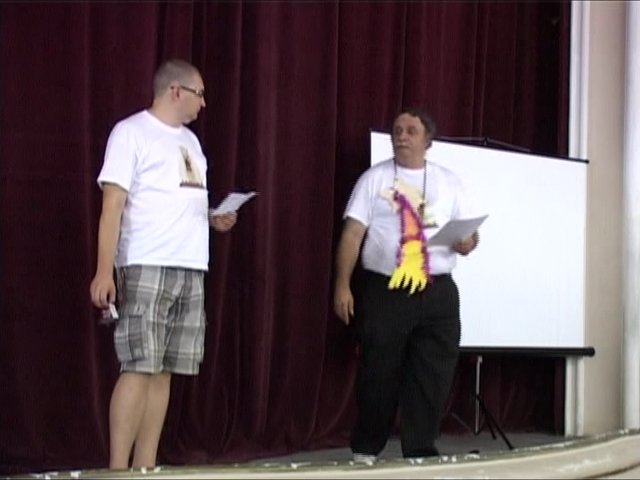
Then Andrei watched a clock and said for himself:
“2 hours and 22 minutes, a new world record of duration
for an International Astropoetry Show.
But I did not follow this record
because it would be absurd to schedule the duration of a spectacle
that depends on the conference participants’ enthusiasm.
Anyway, with or without this record,
for me it was the Astropoetry Show of adieu at the IMC
(everything must have an end, isn’t it?),
a unique kind of spectacle that, between 1997 and 2011,
opened superior dimensions of friendship
at this annual meeting of meteor lovers
and amazed many other sky lovers from all over the world.
However,
never say never
having astro-fever!”
Friendship Without Borders under the flag of the IMC 2011:
Thilina Heenatigala (Astronomers Without Borders Project Coordinator)
and Andrei Dorian Gheorghe:
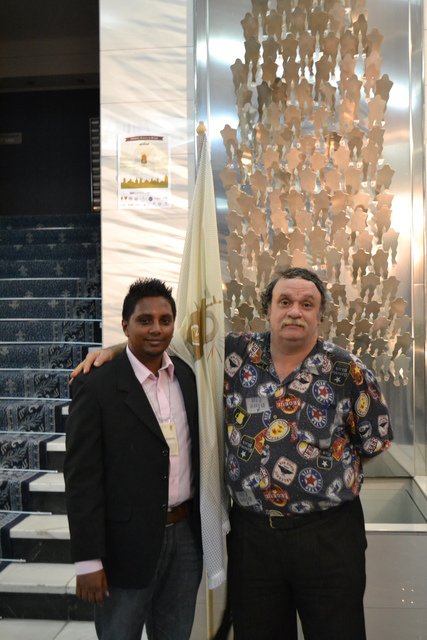
*
Many thanks to all those who contributed
to the 15 Astropoetry Shows at the International Meteor Conference,
making from them
an exceptional school of astroculture and astrocreativity
that helped very much the IMC to become
“a kind of Astro-Utopia”.
Special thanks
to the over 50 volunteers for the astropoetry live spectacle
and the over 120 contributors to the astrohumanist posters,
which together represented
the longest, the largest and the most beautiful ever Astropoetry Show,
held in the Romanian city (and also an European Cultural Capital) of Sibiu
in September 2011.
And I dedicate my work for this 15th Astropoetry Show
to the memory of my parents,
Costica Gheorghe (1927-2007)
and Steliana Gheorghe (1934-2009);
without their efforts and sacrifices,
the Astropoetry Shows at the International Meteor Conference
would not have existed,
and I am proud that I directed the most brilliant of them
right in my parents’ country,
Romania.
-Andrei Dorian Gheorghe-
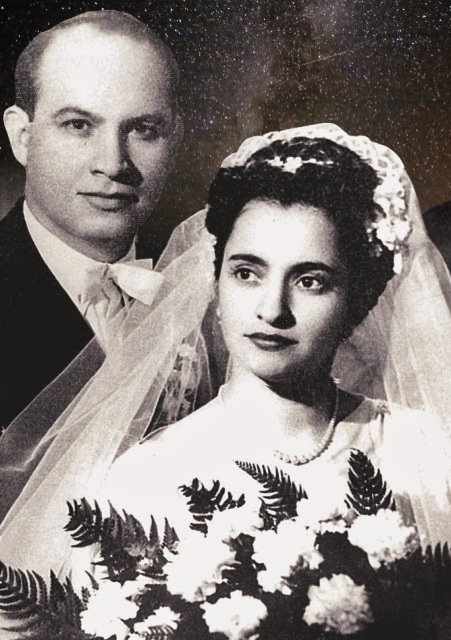
PS:
Did anybody ask the
evening stars, morning stars, tailed stars,
falling stars and all other stars
if they like to be seen only through the eyes
of “serious” astronomy?
HOME